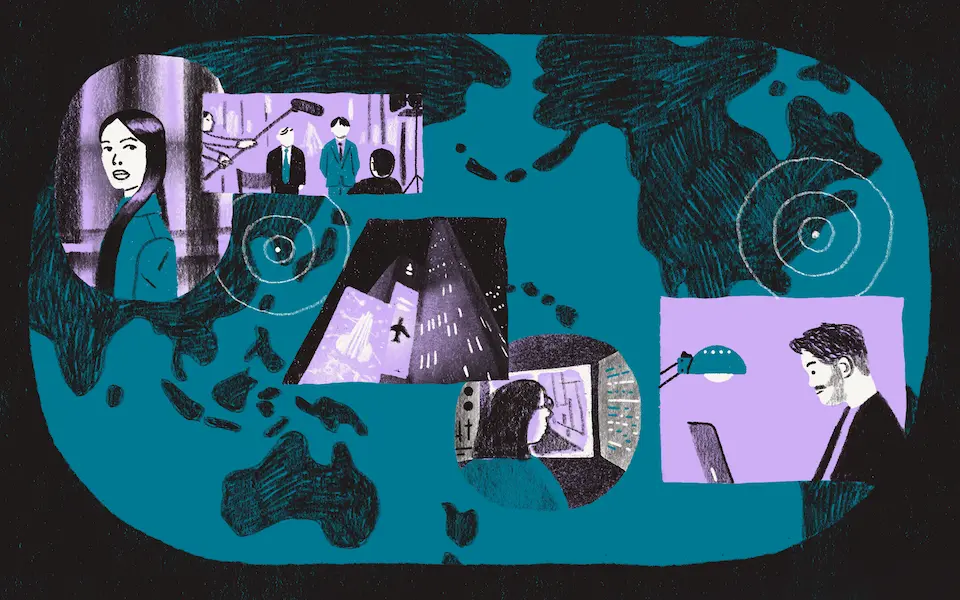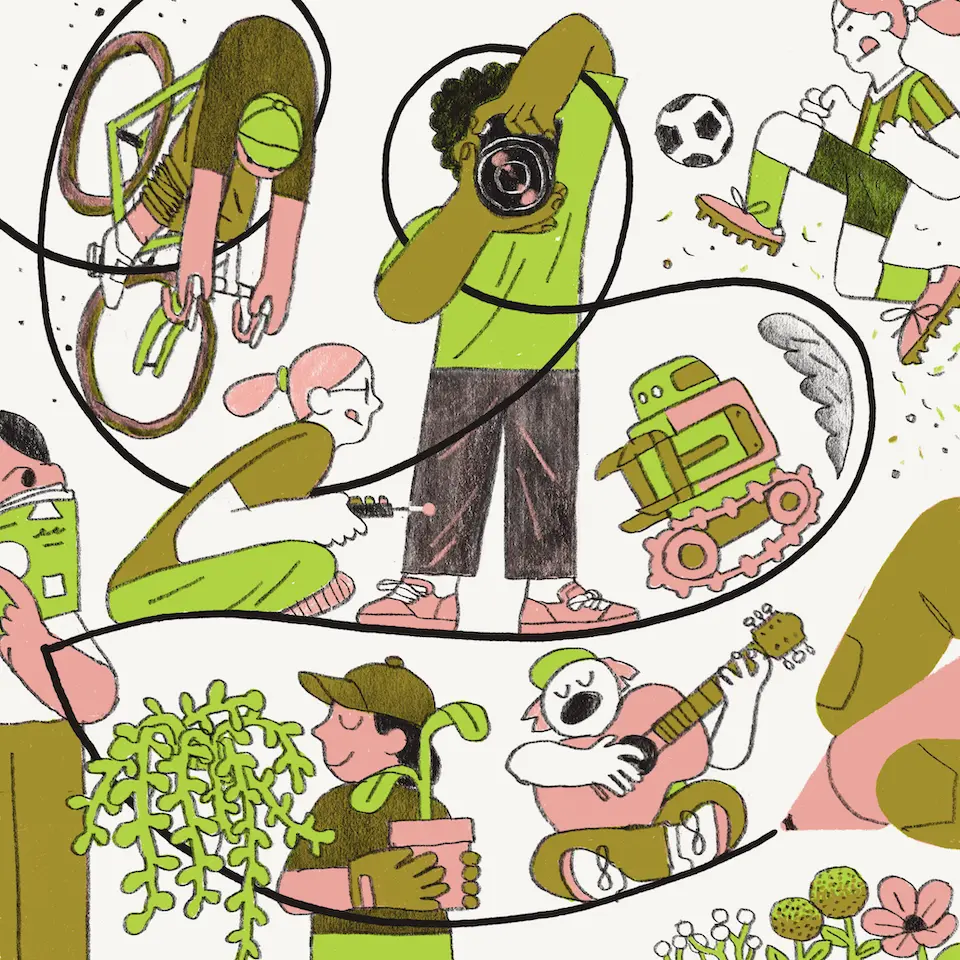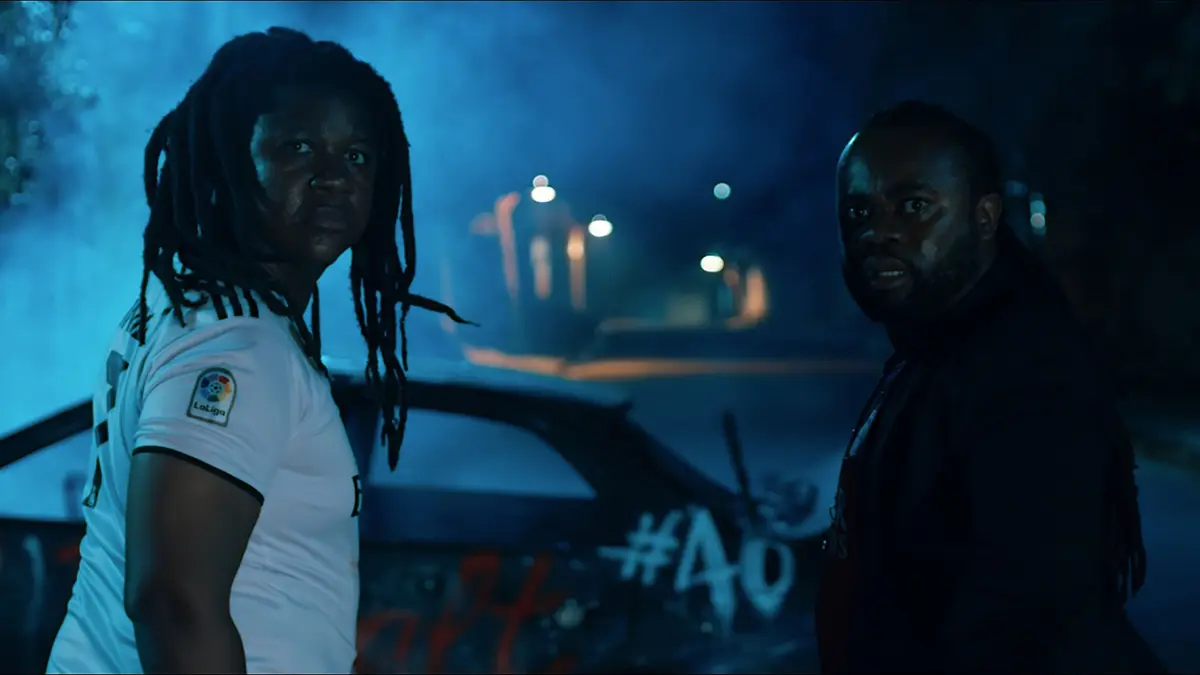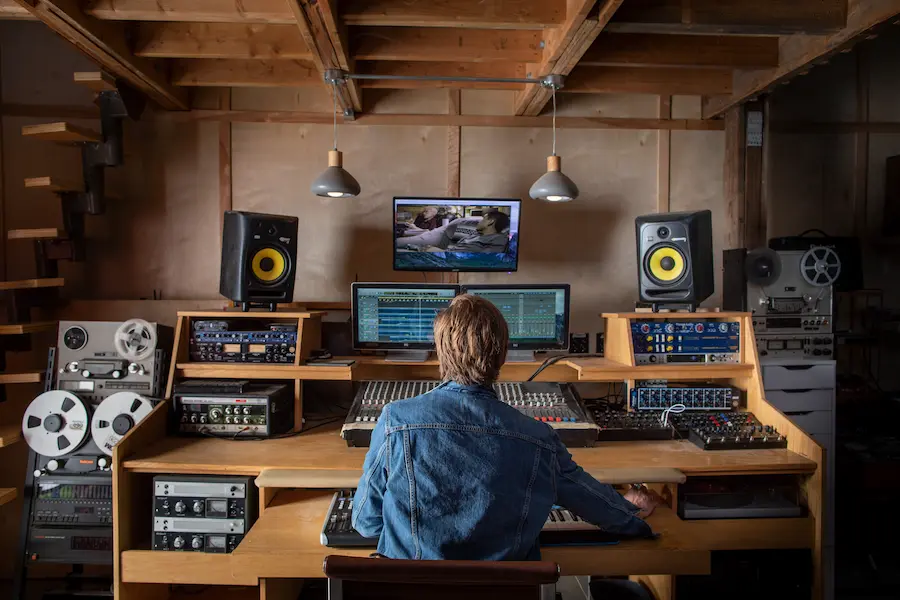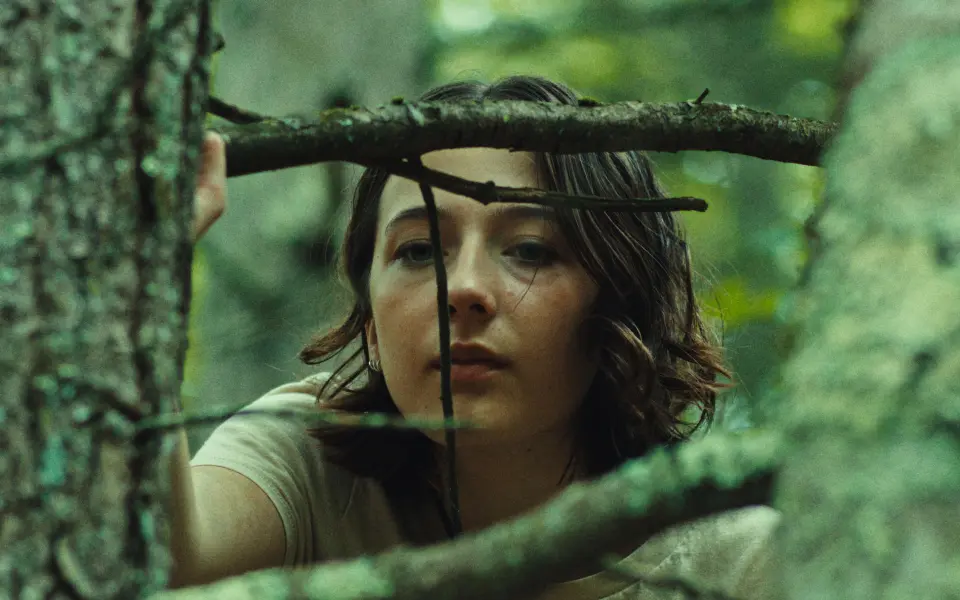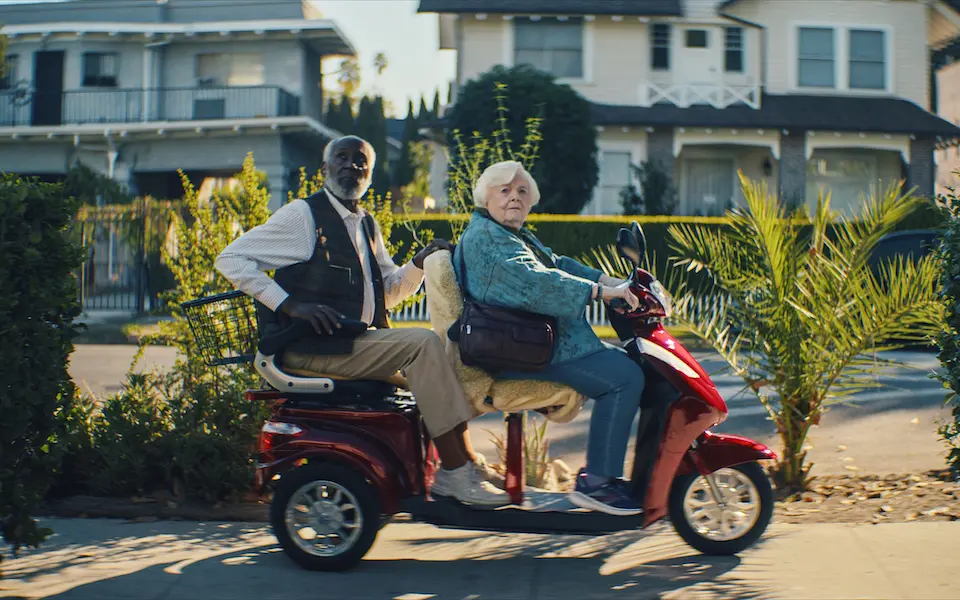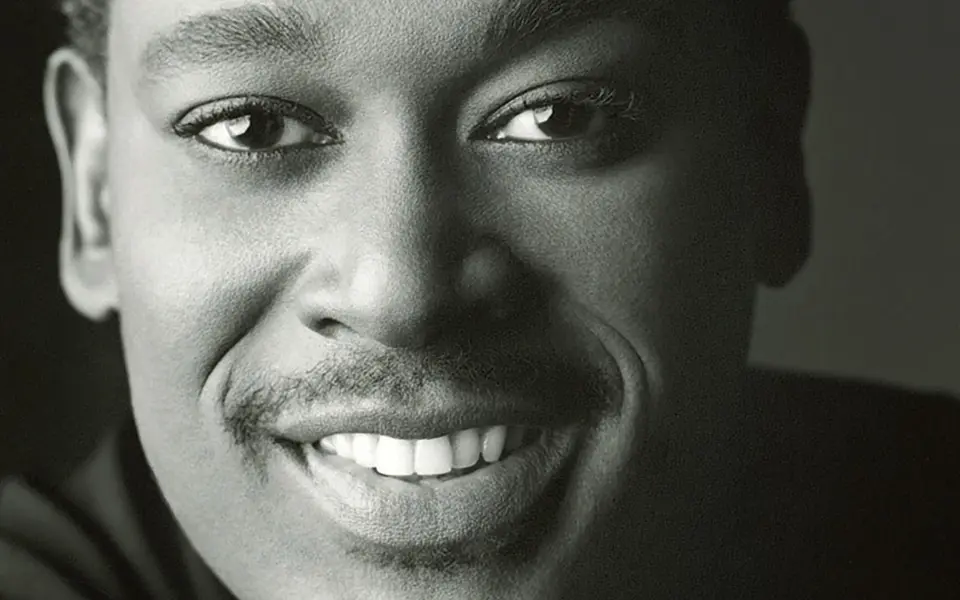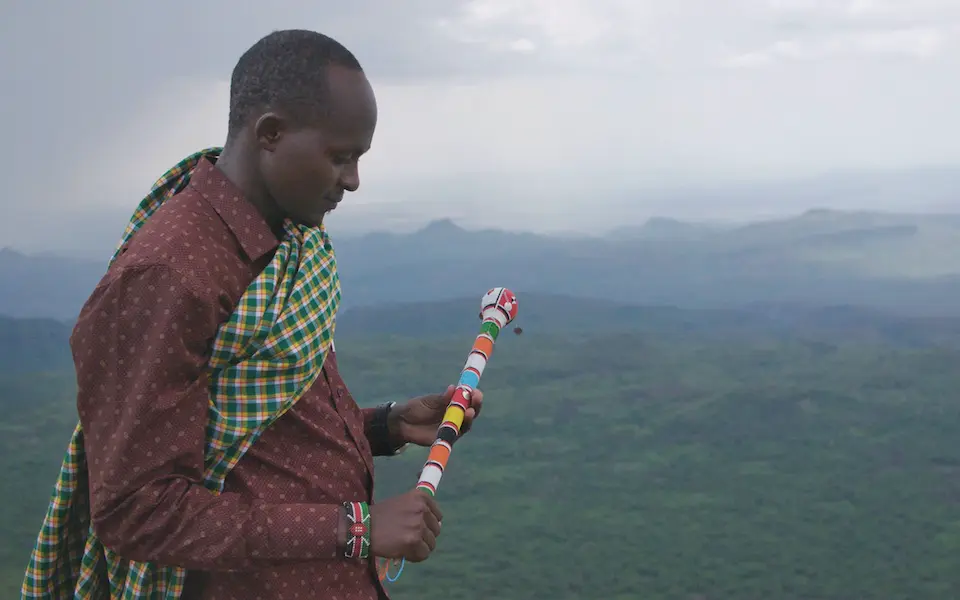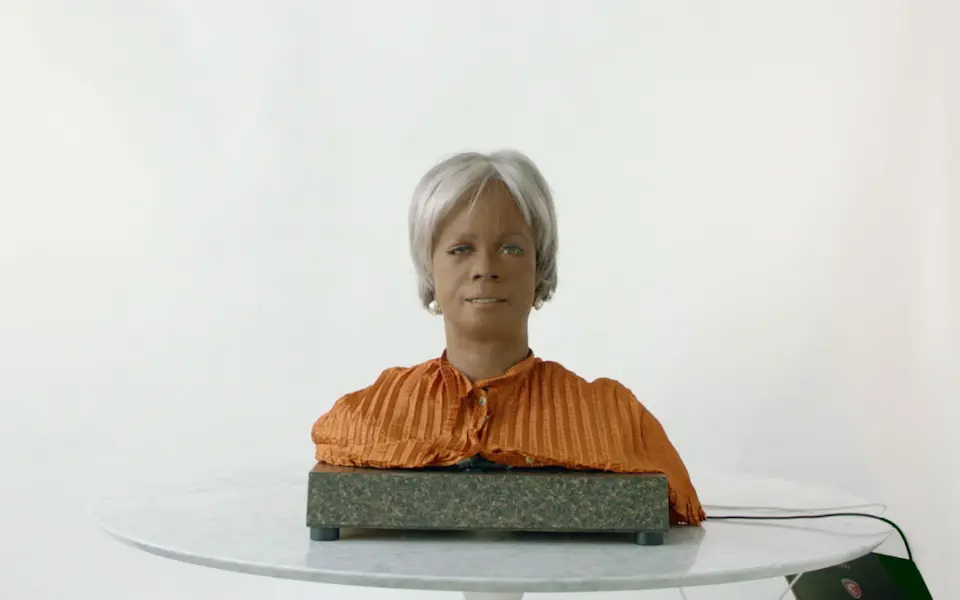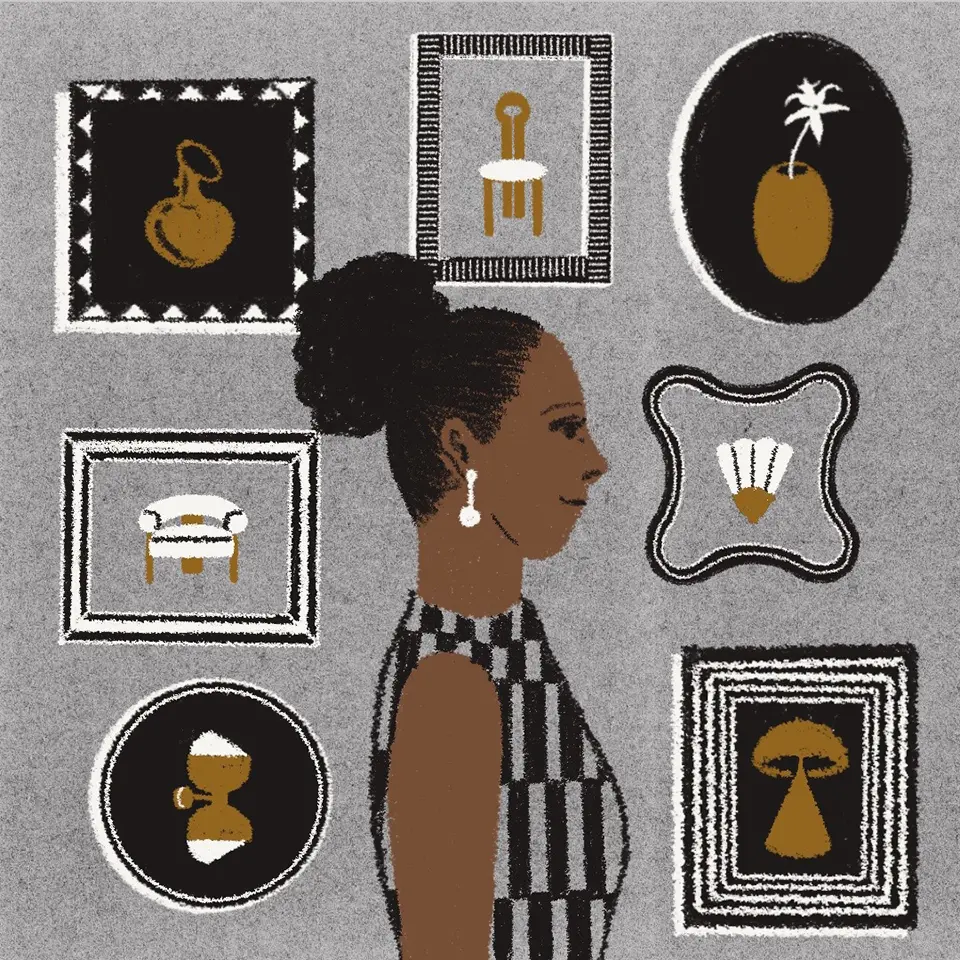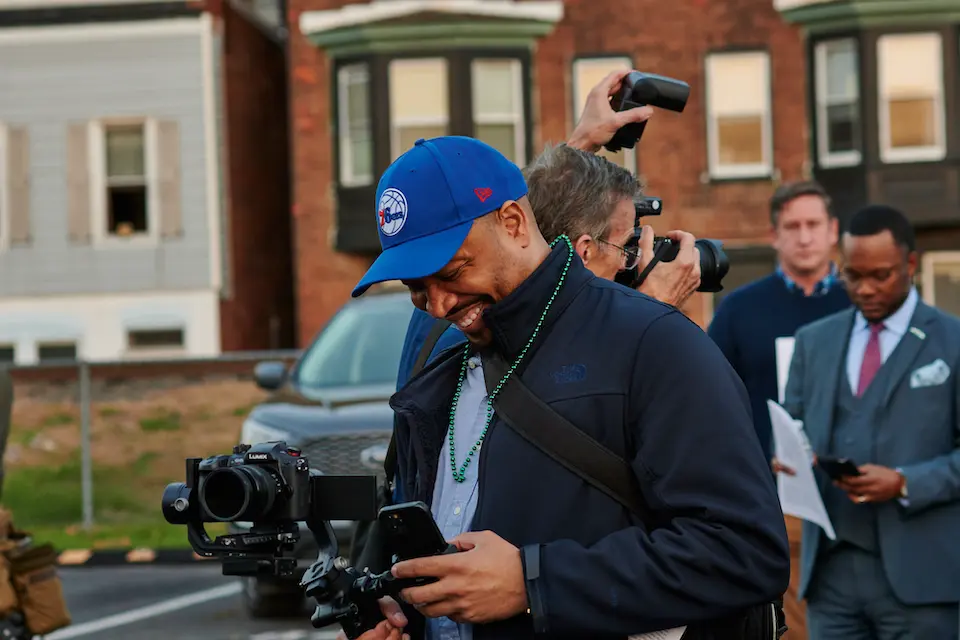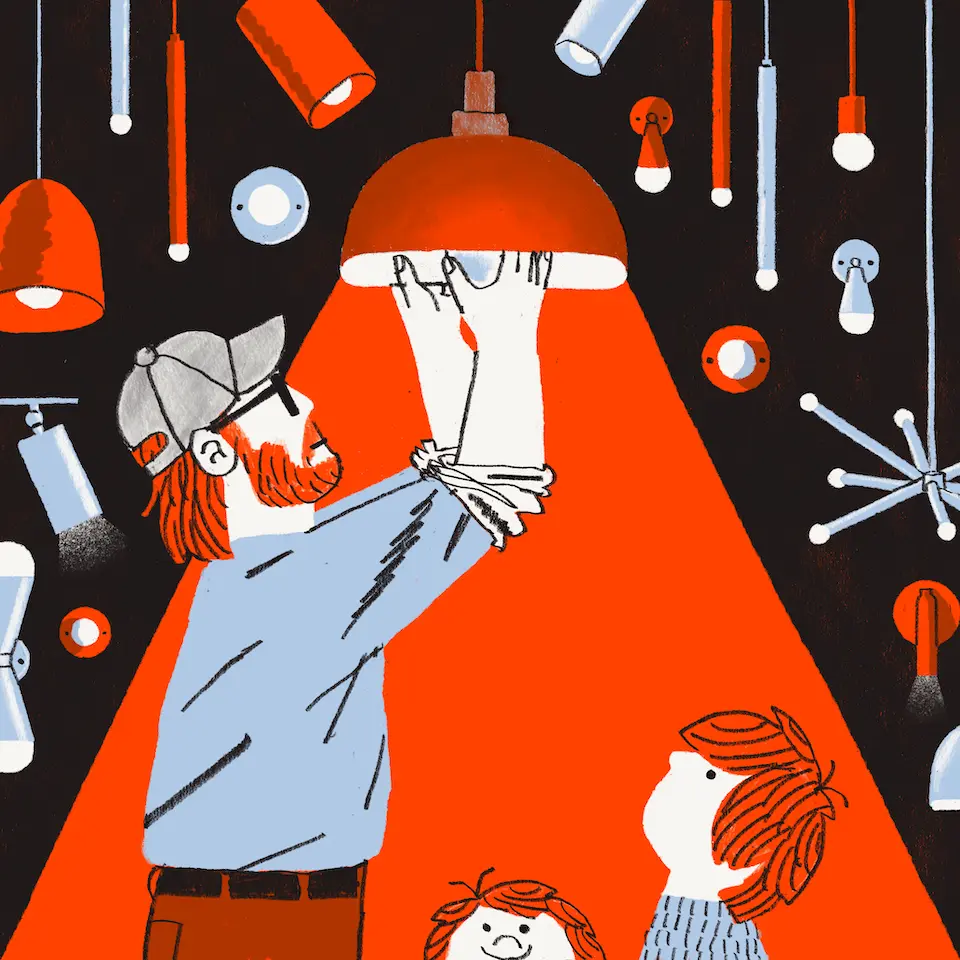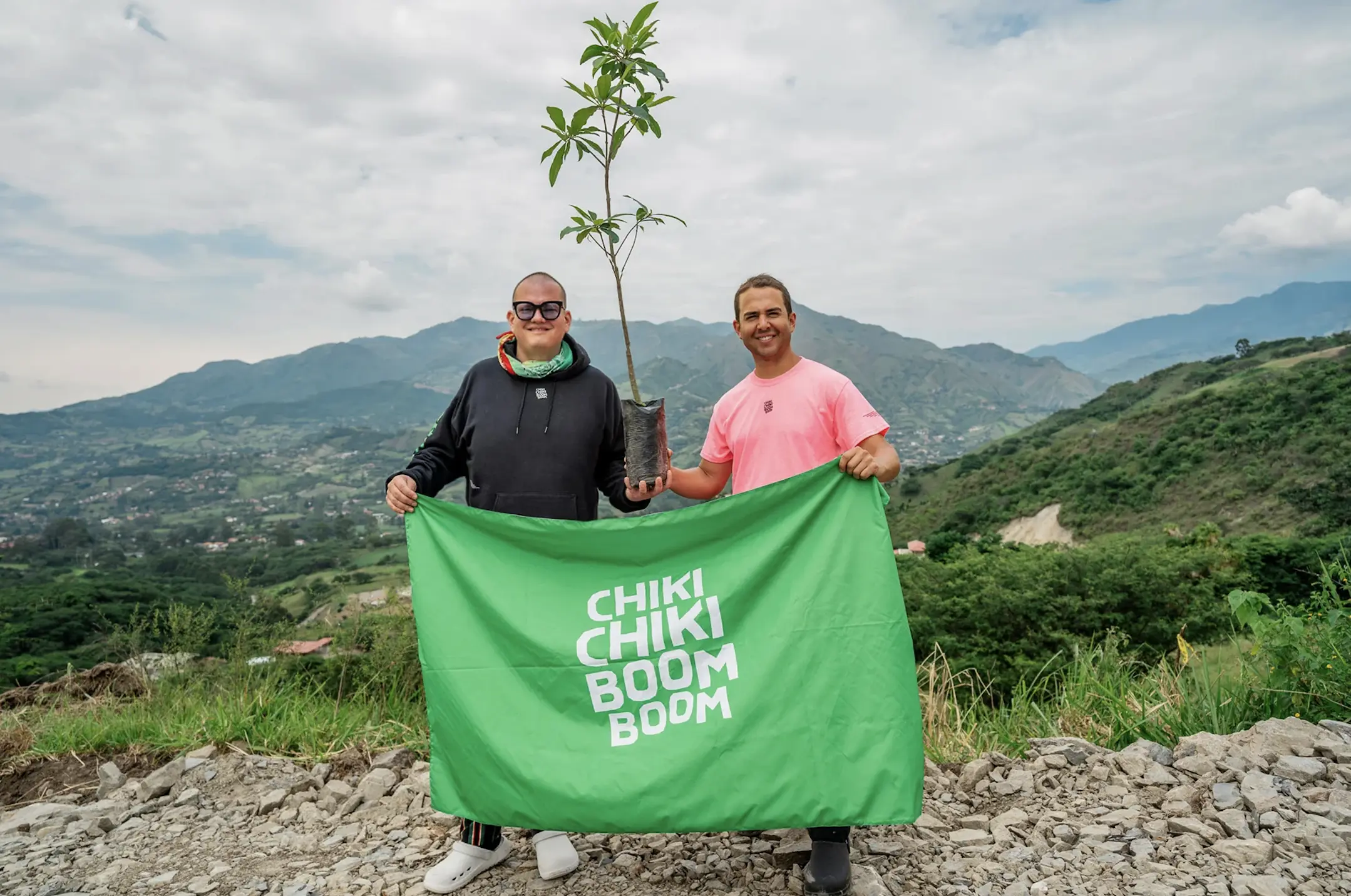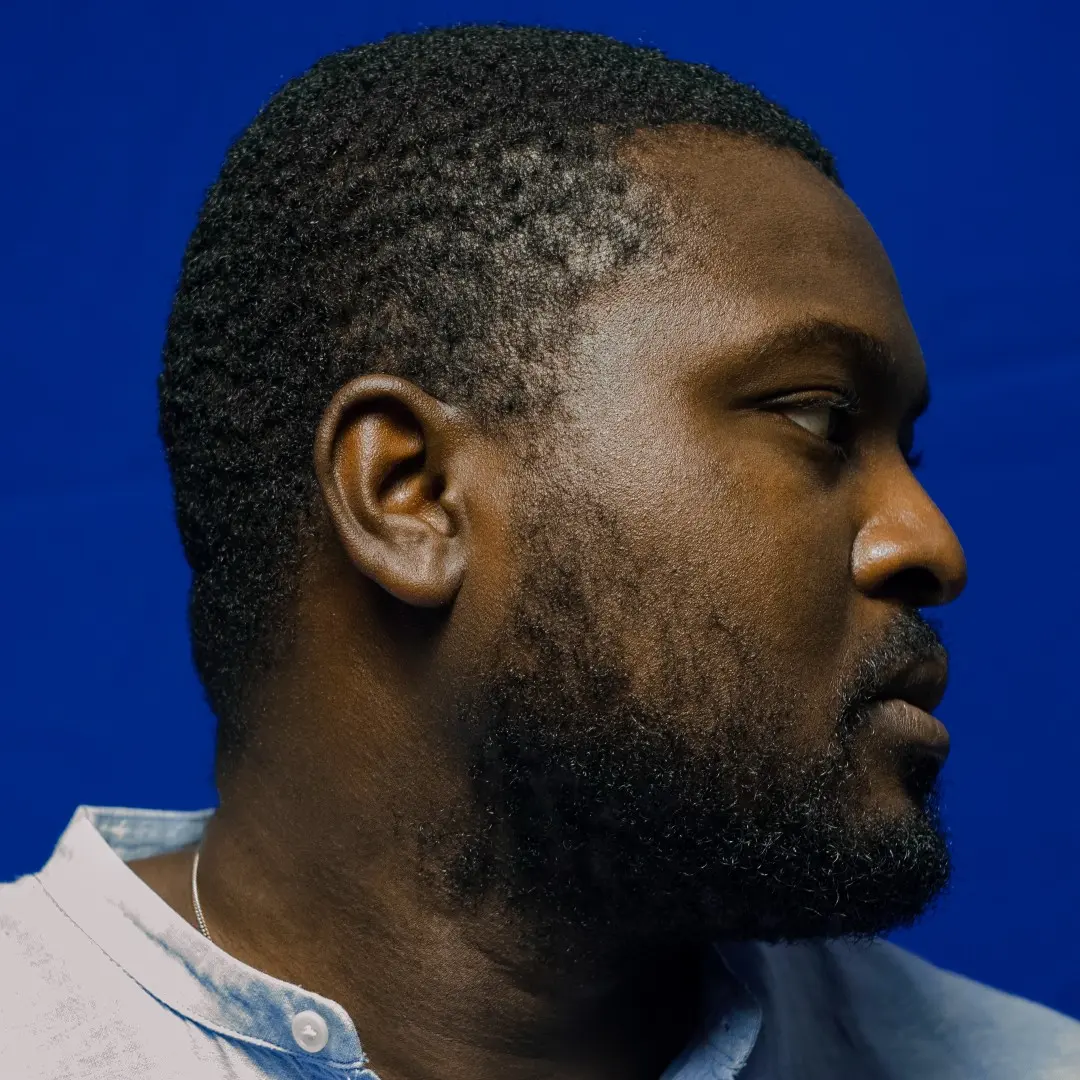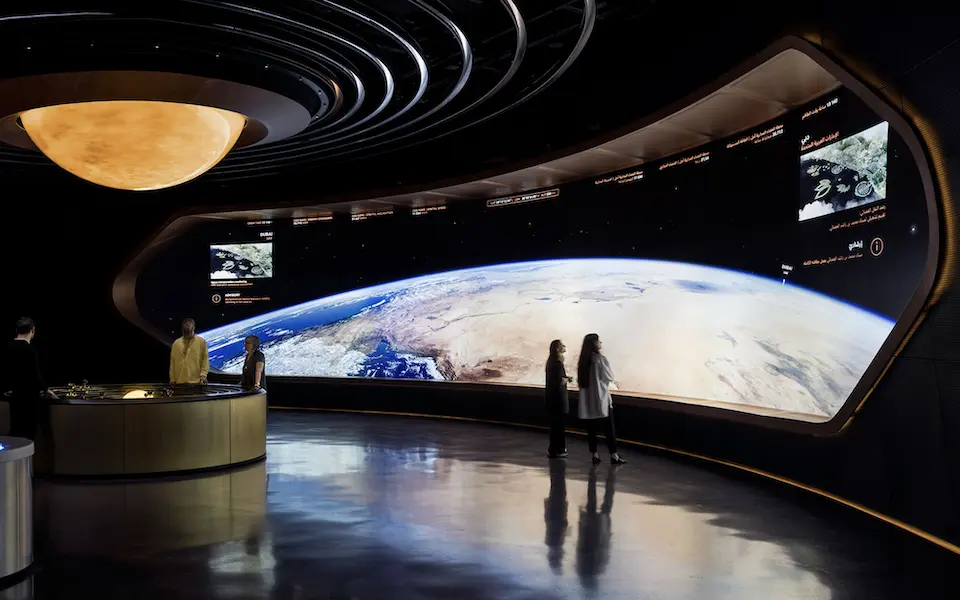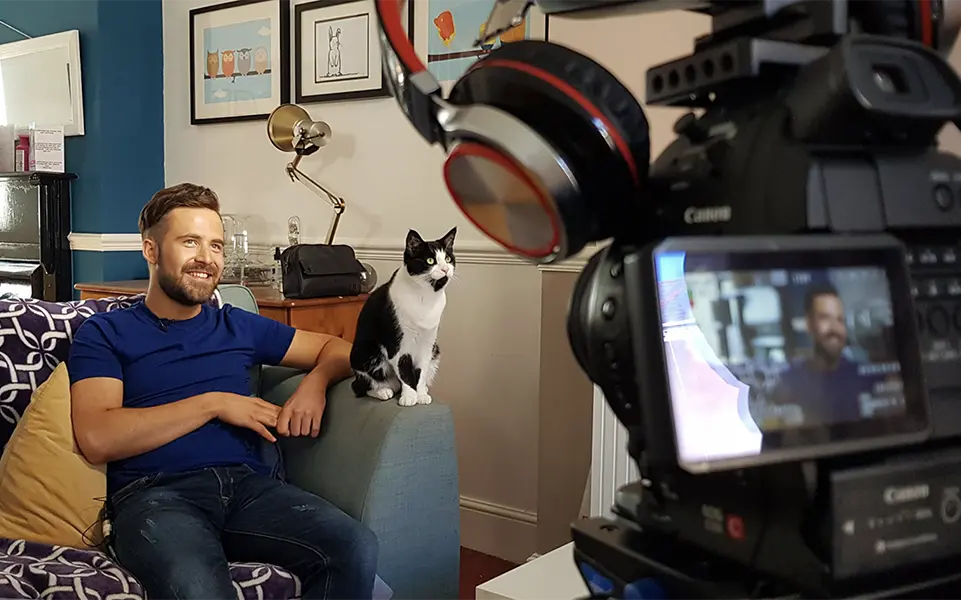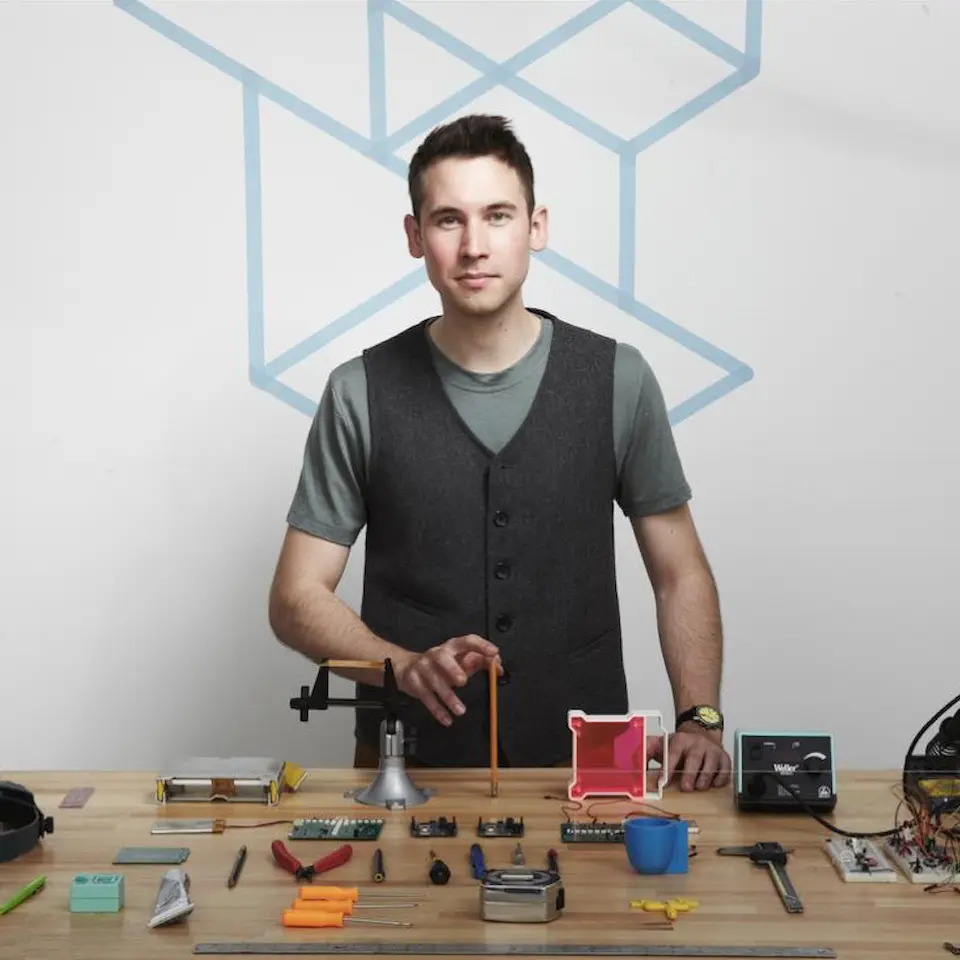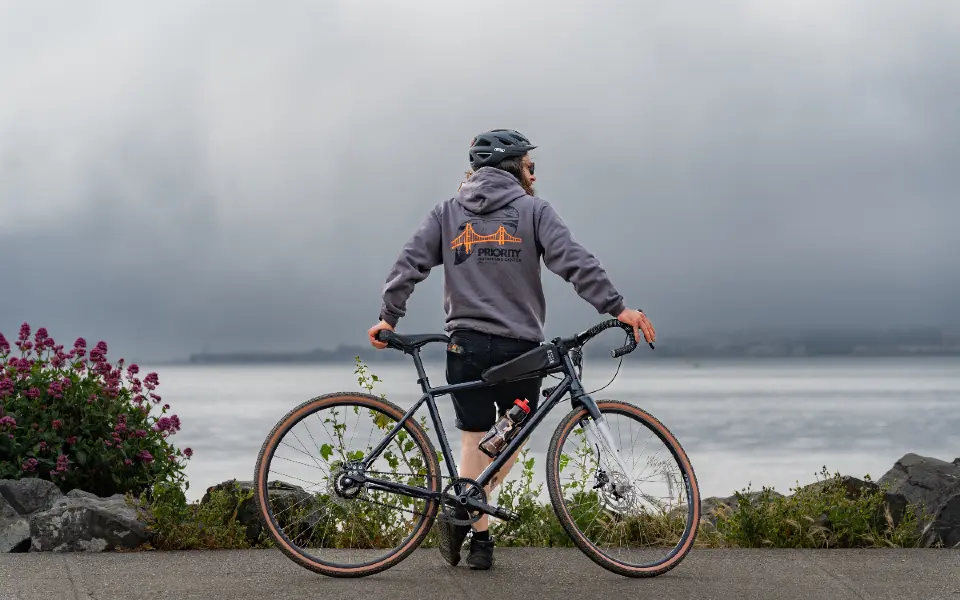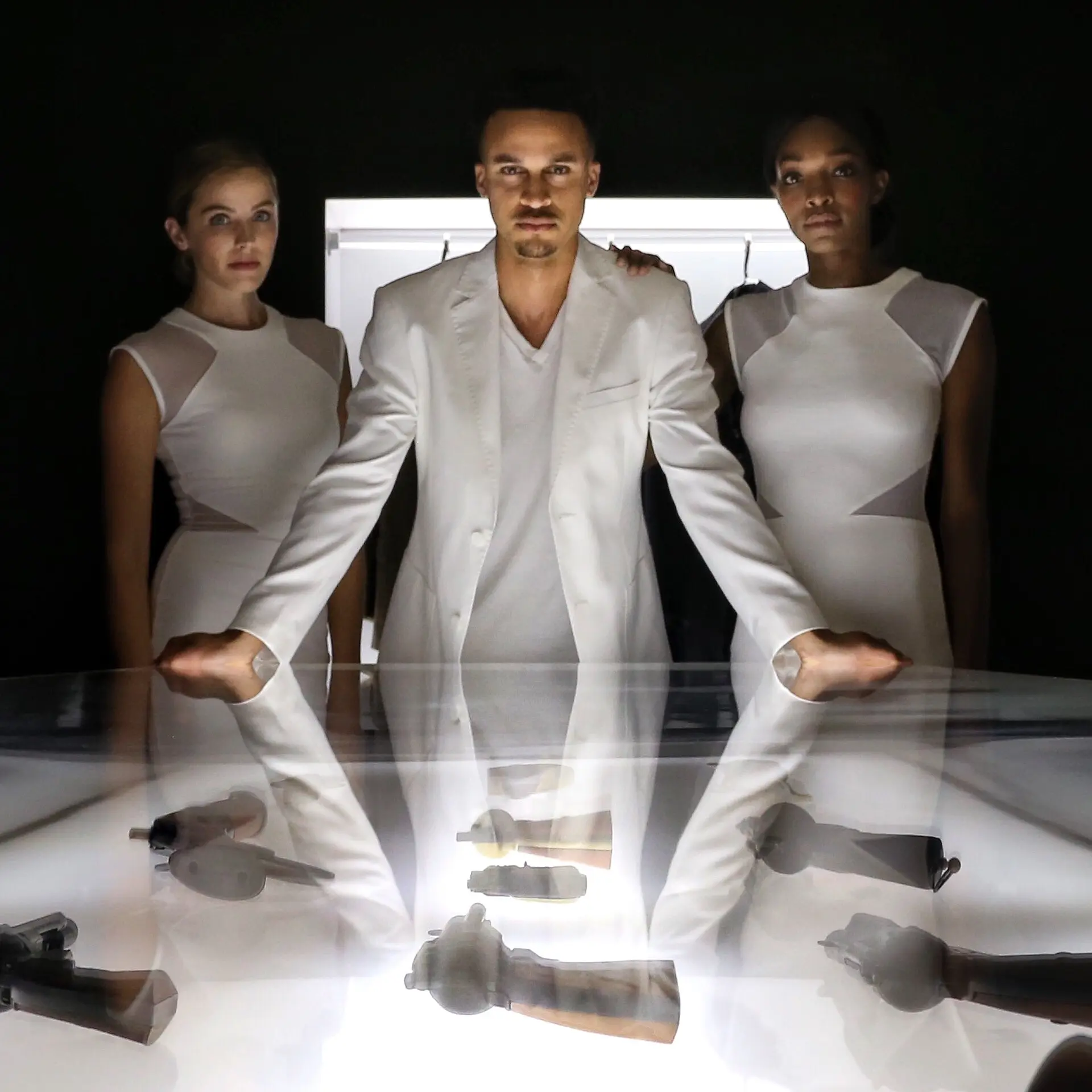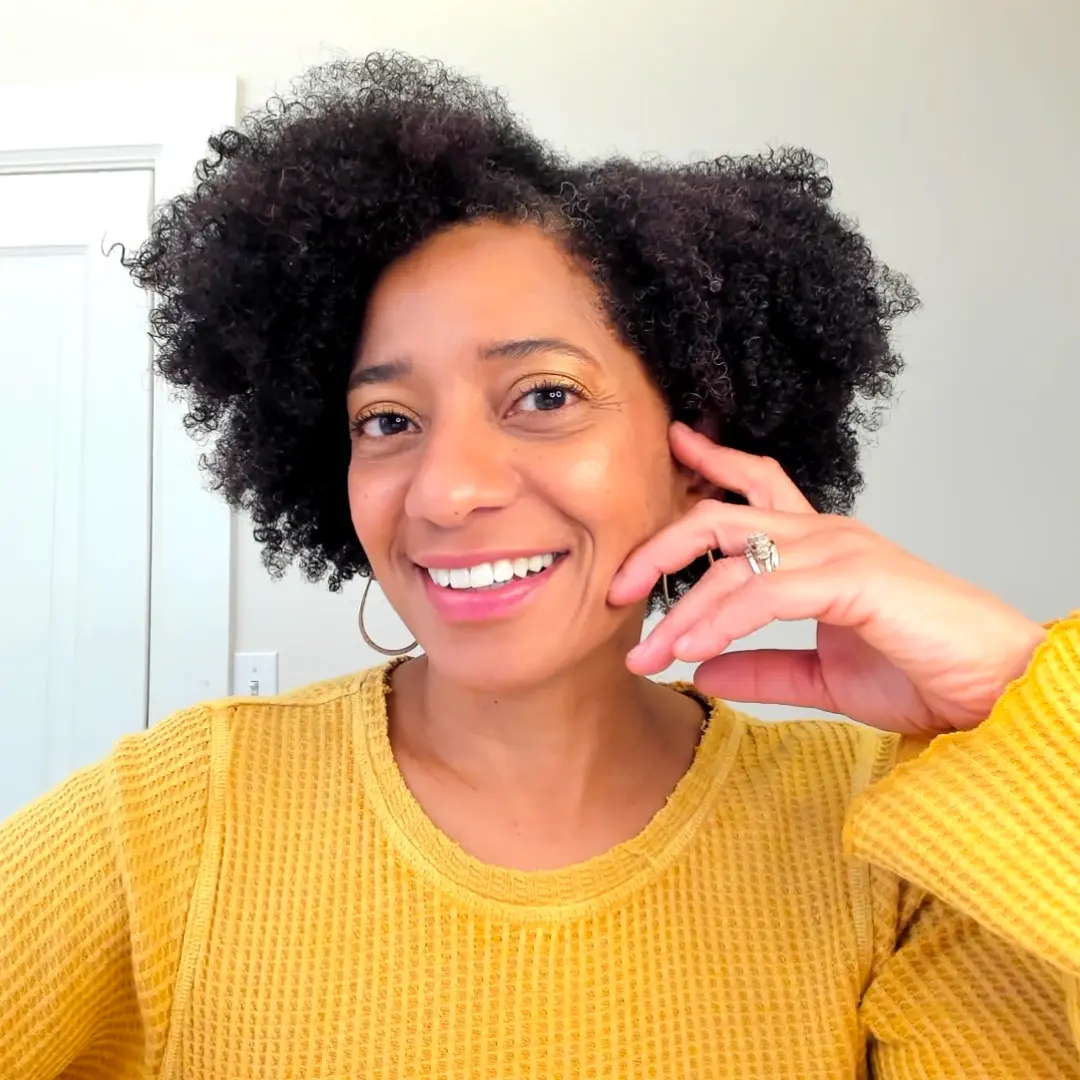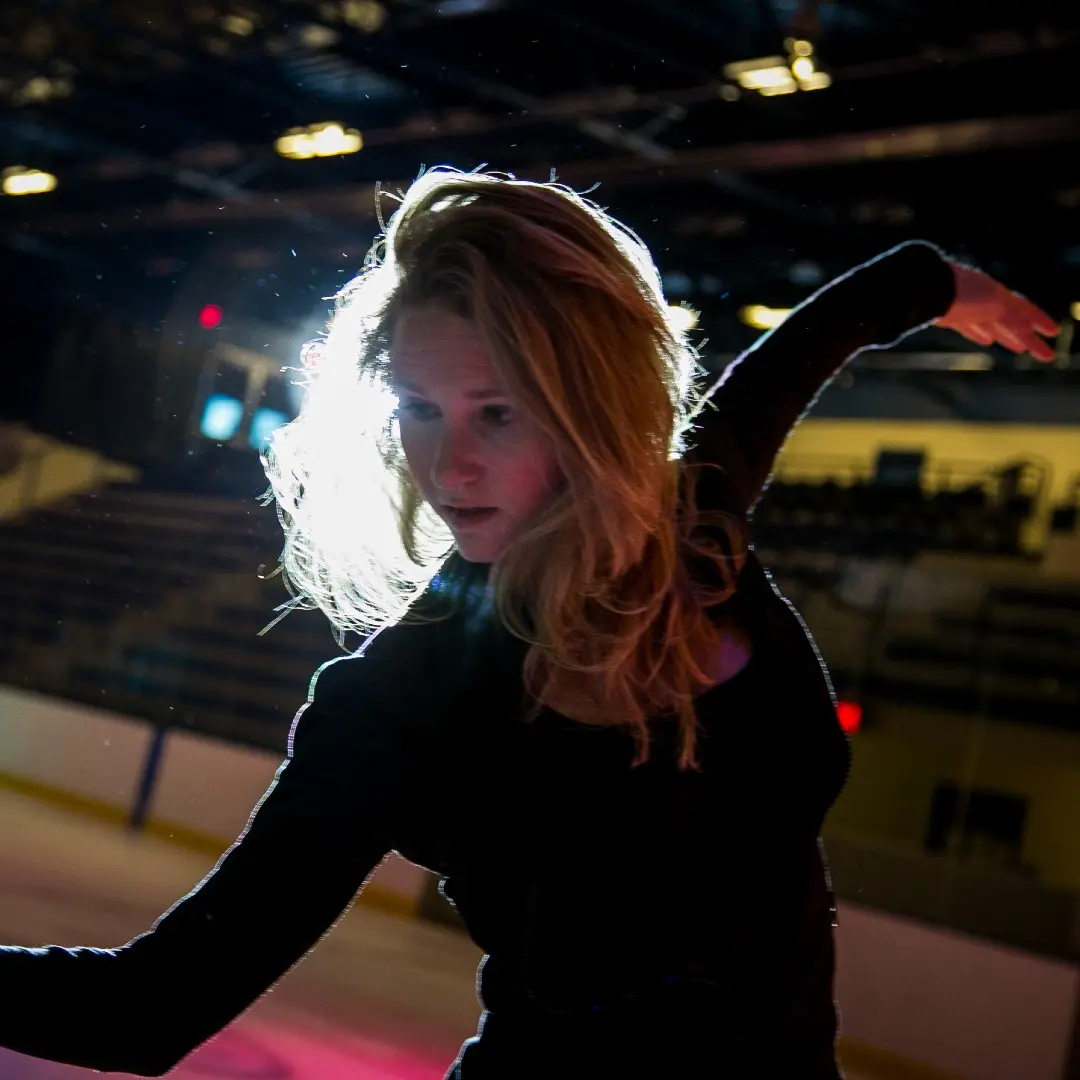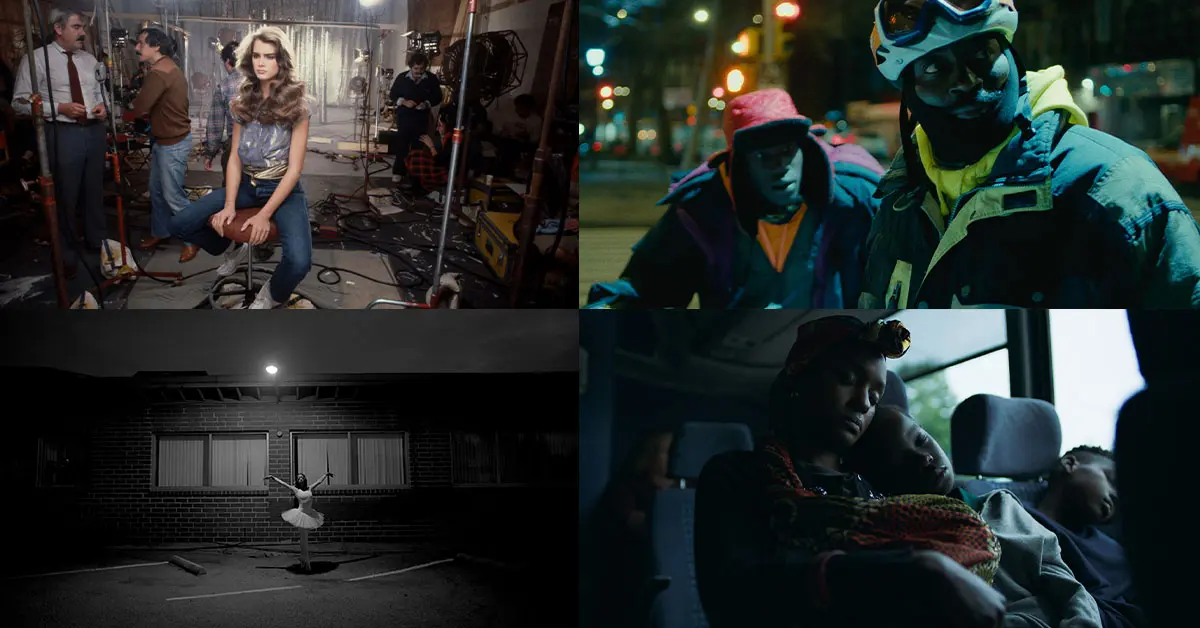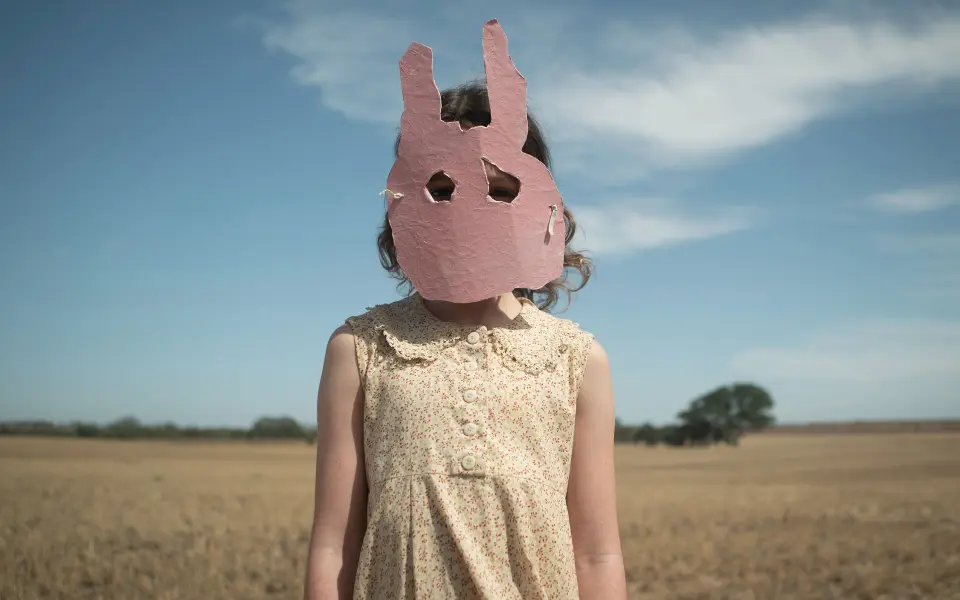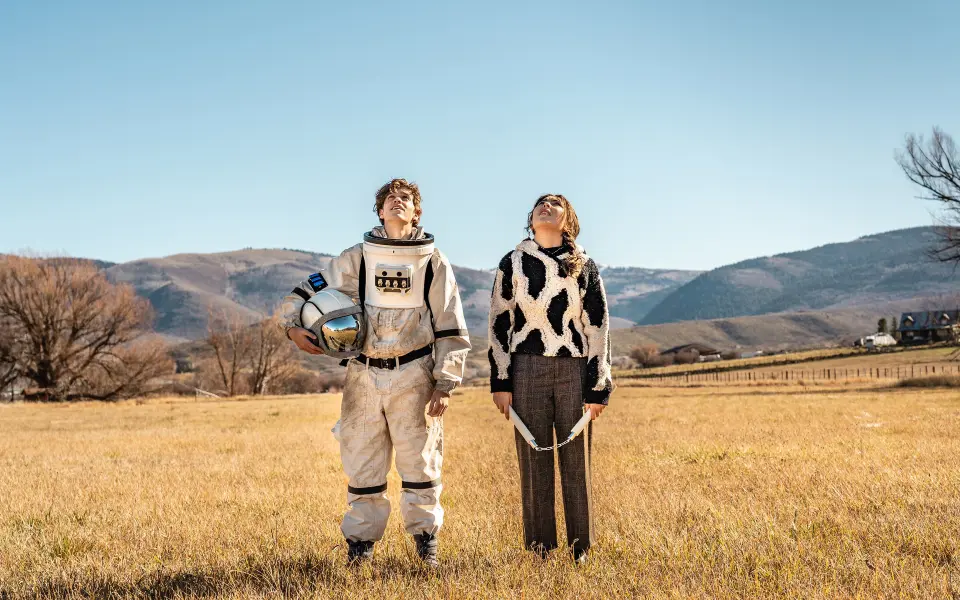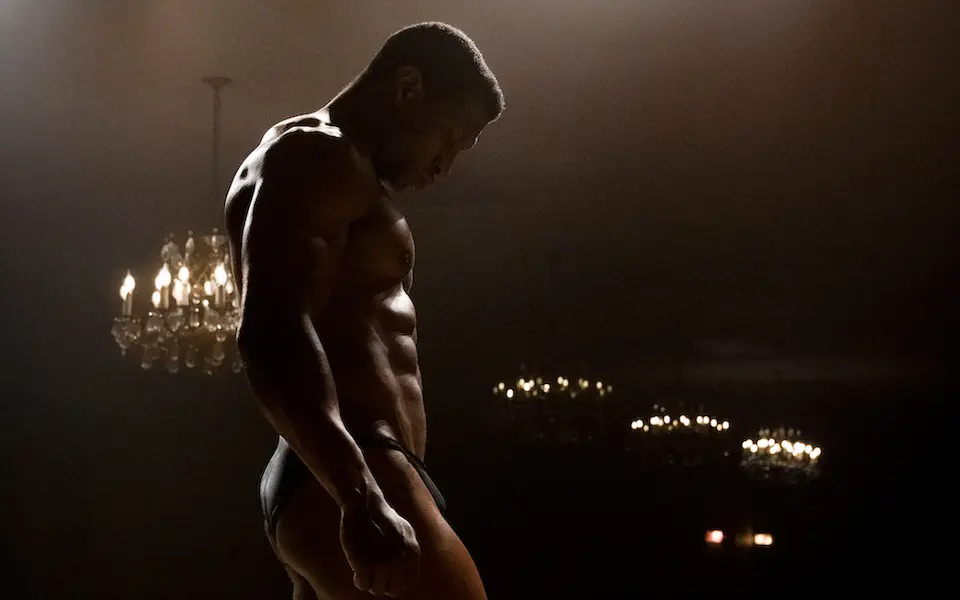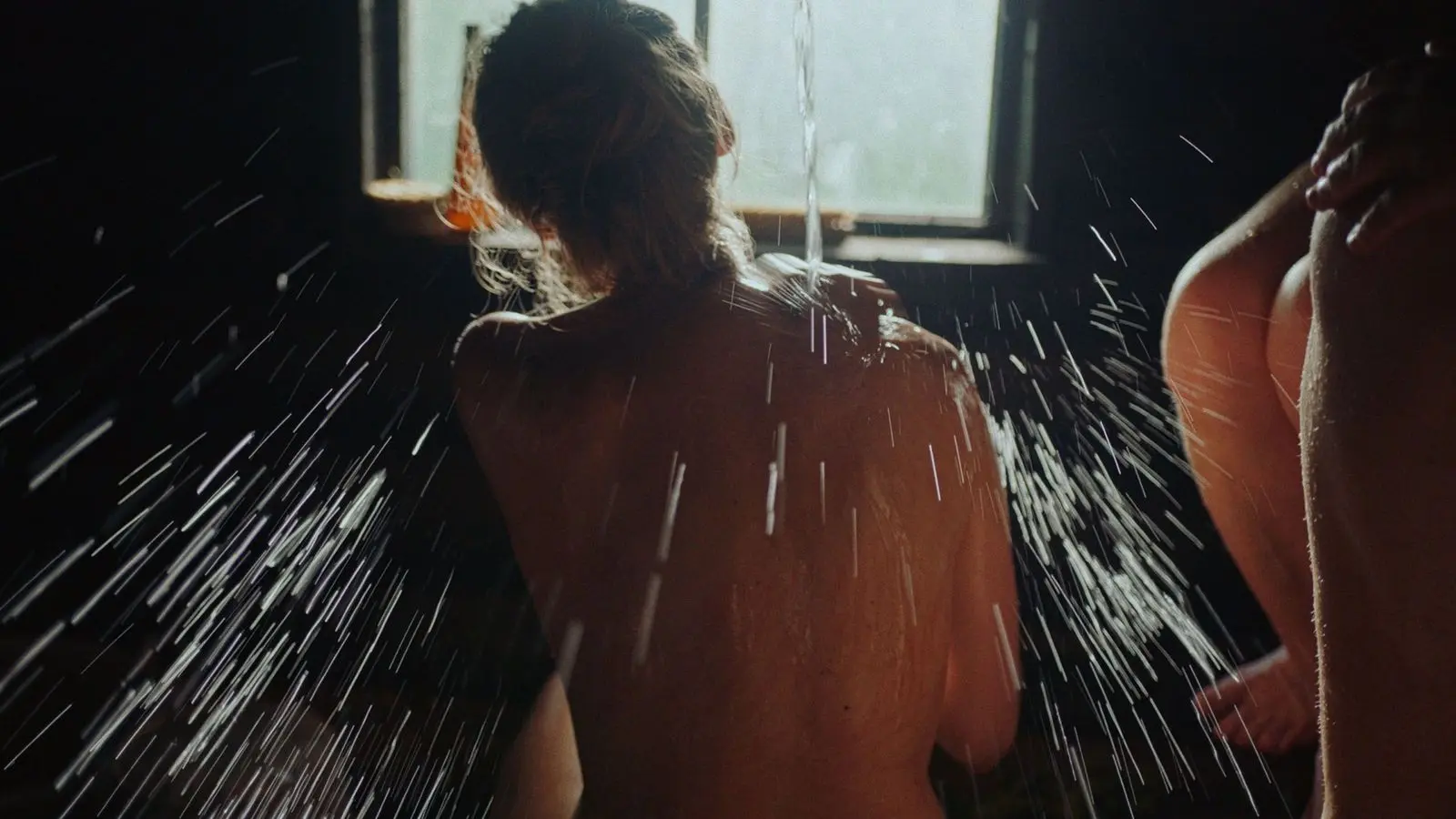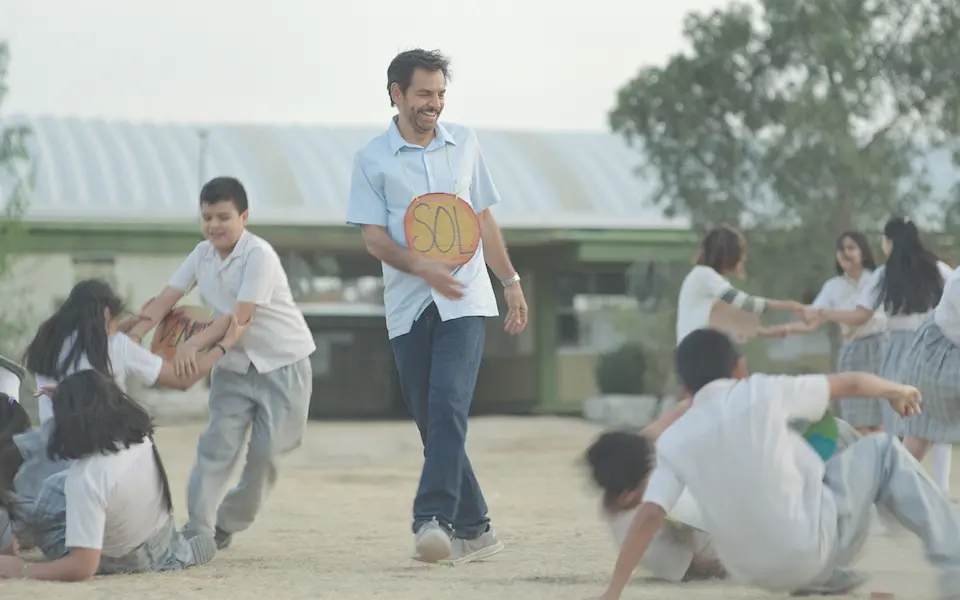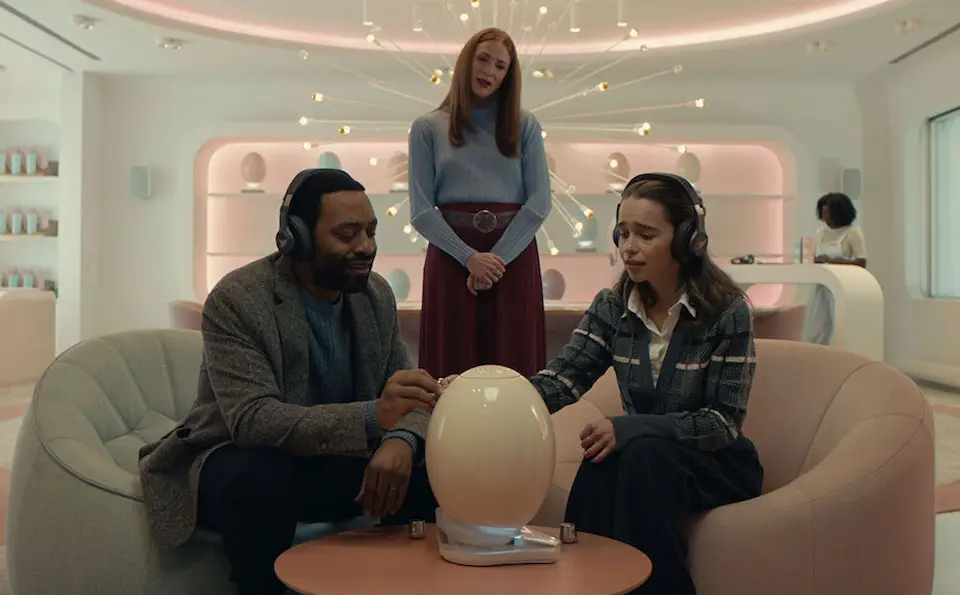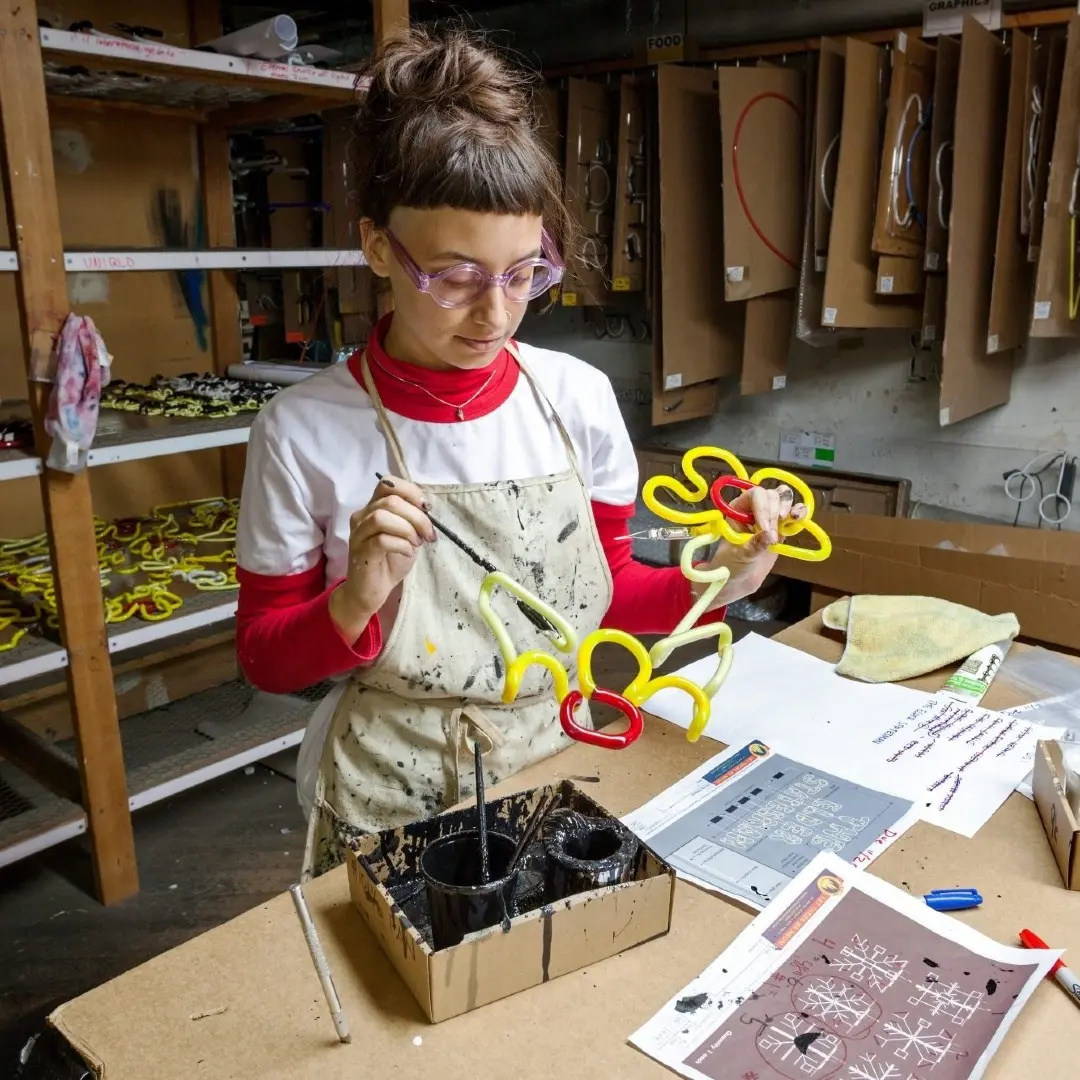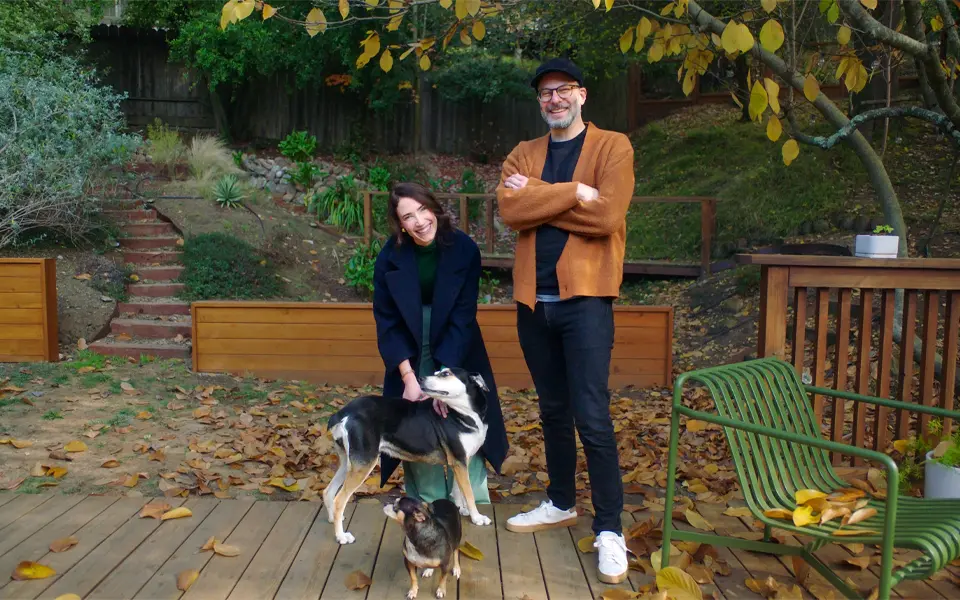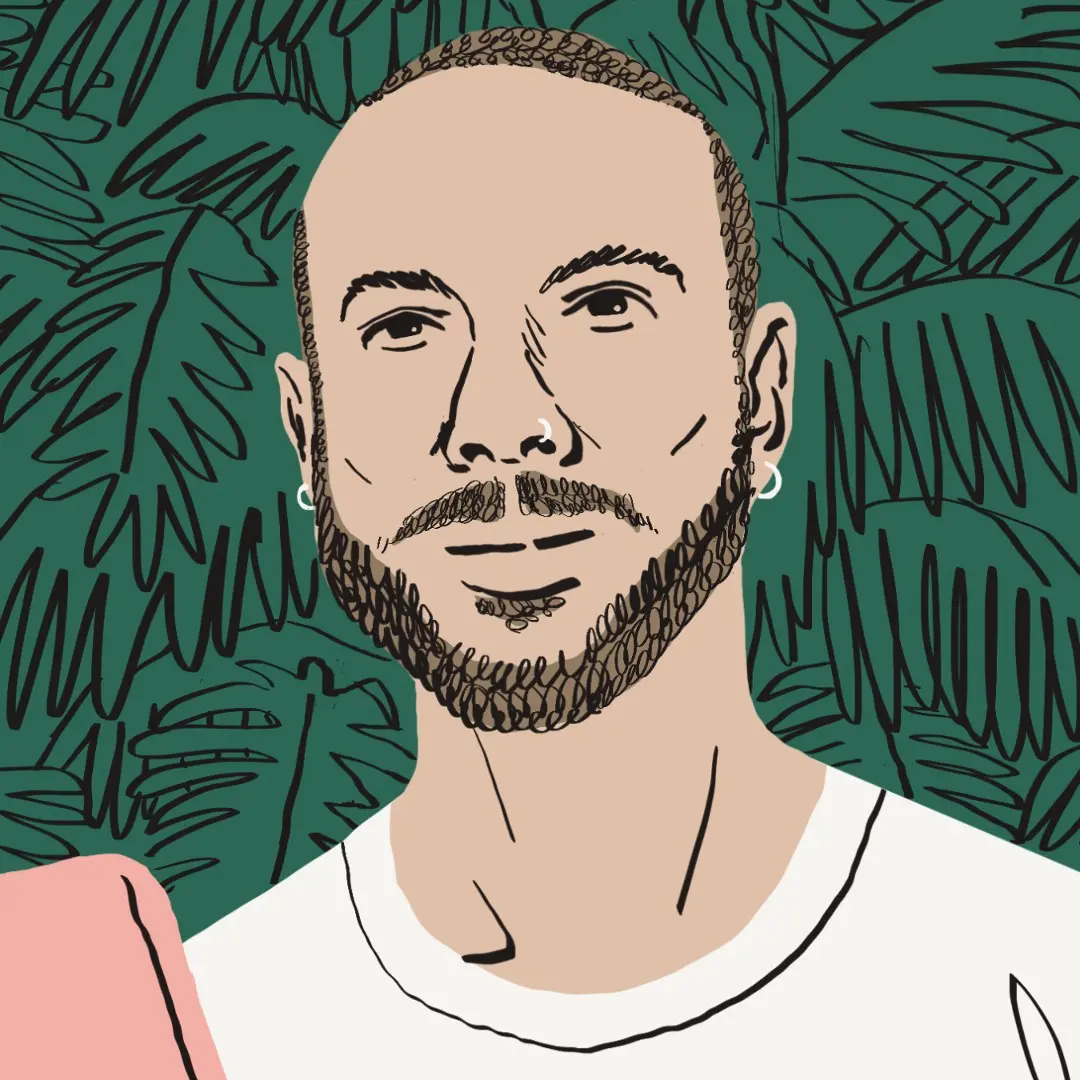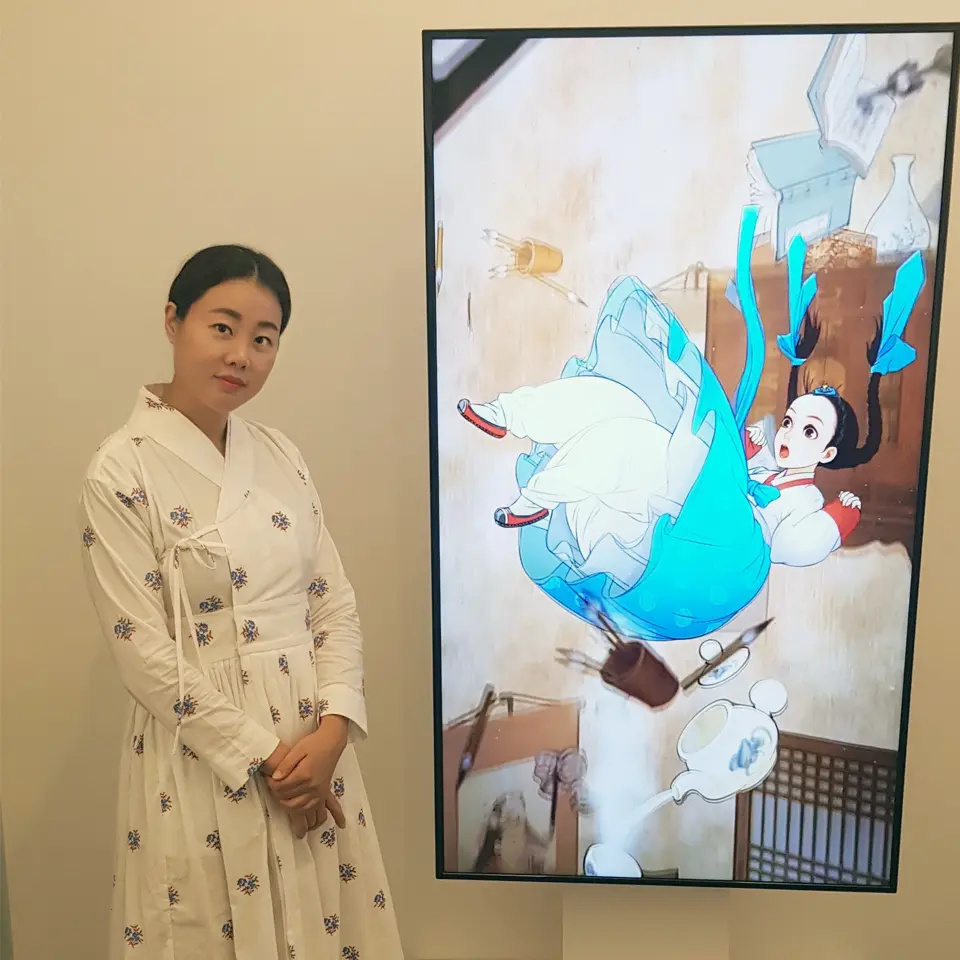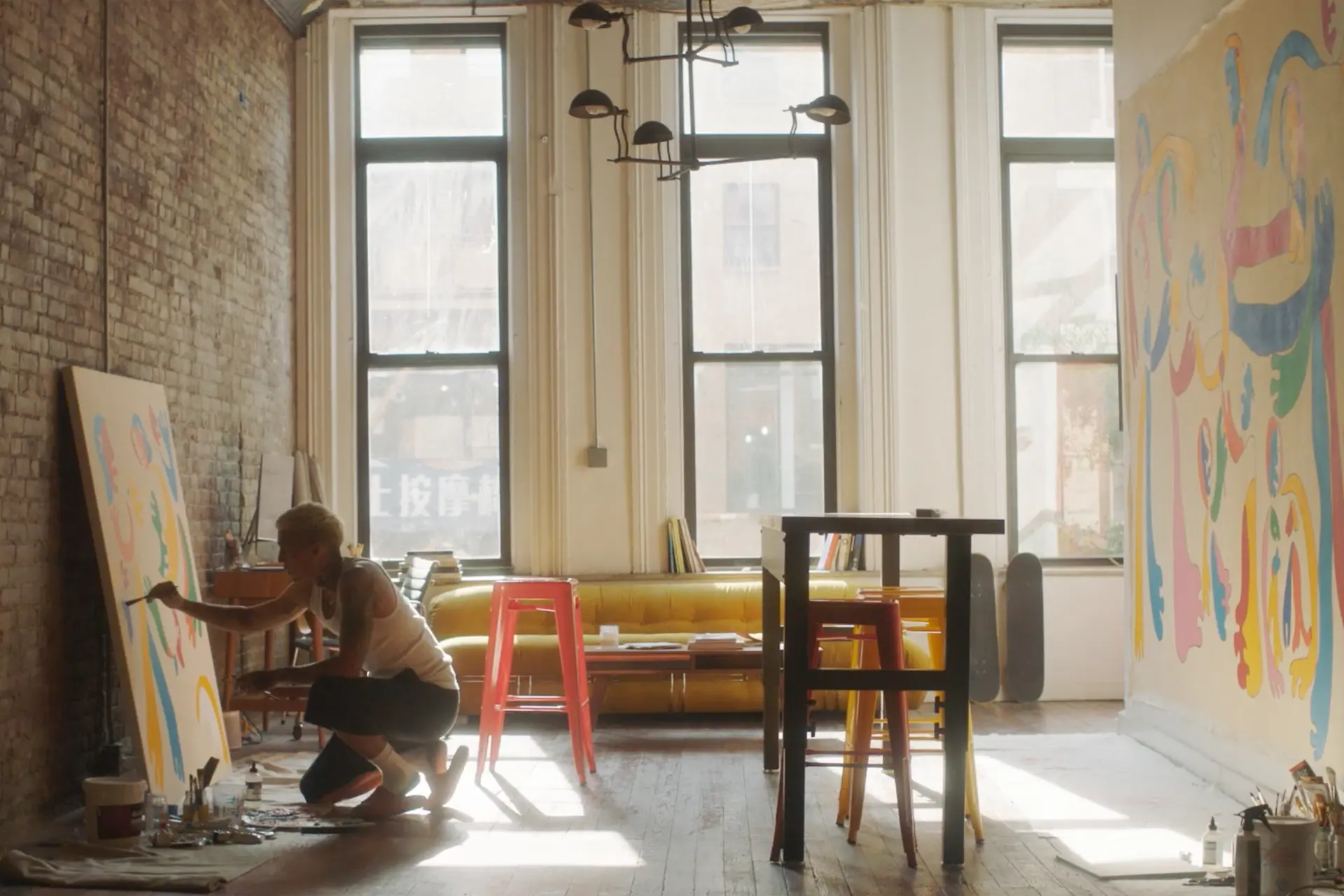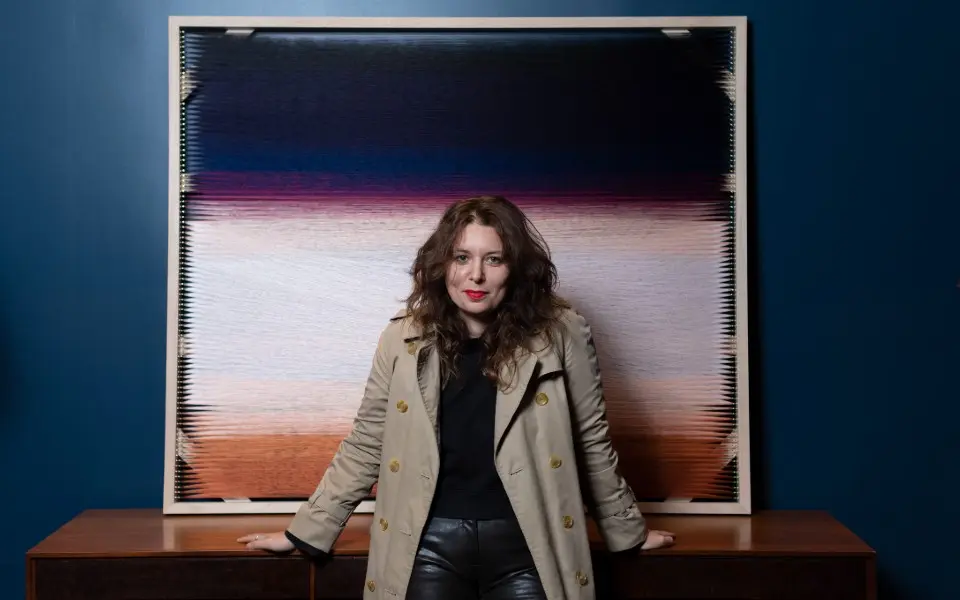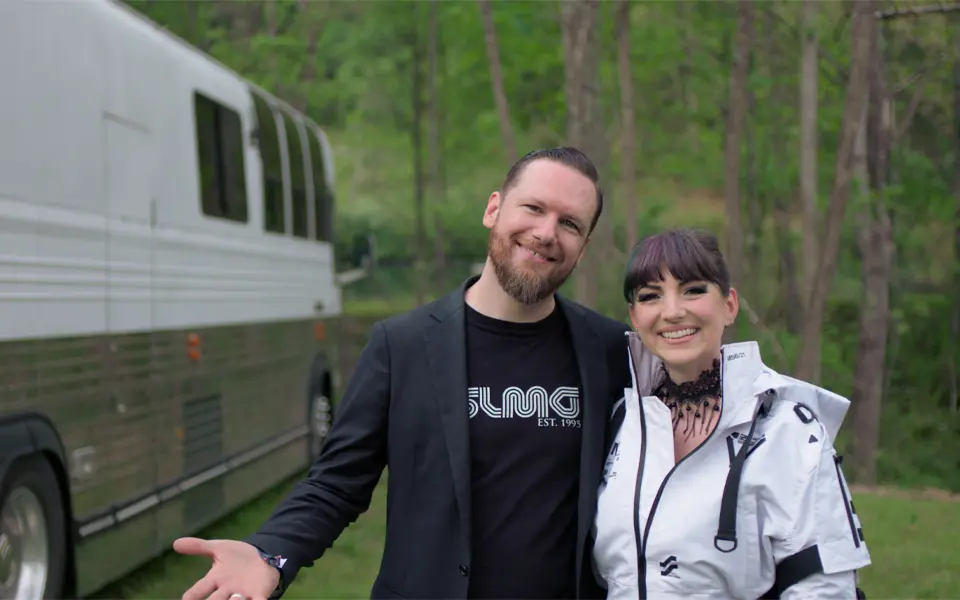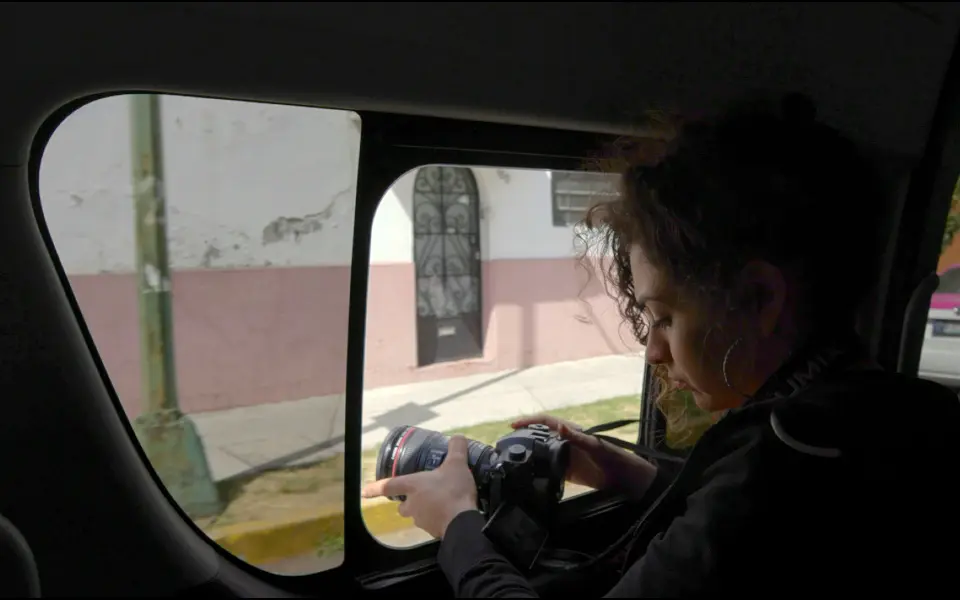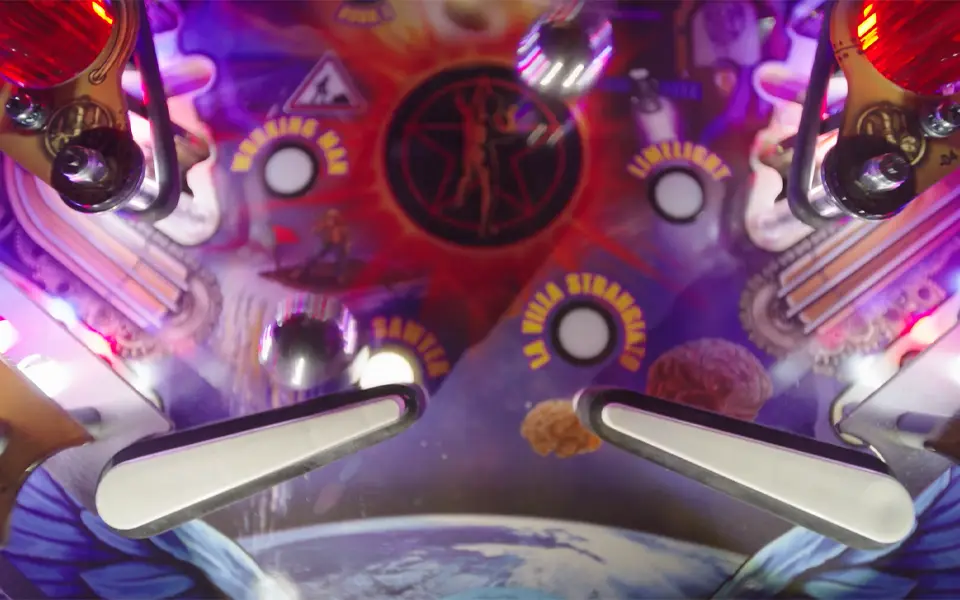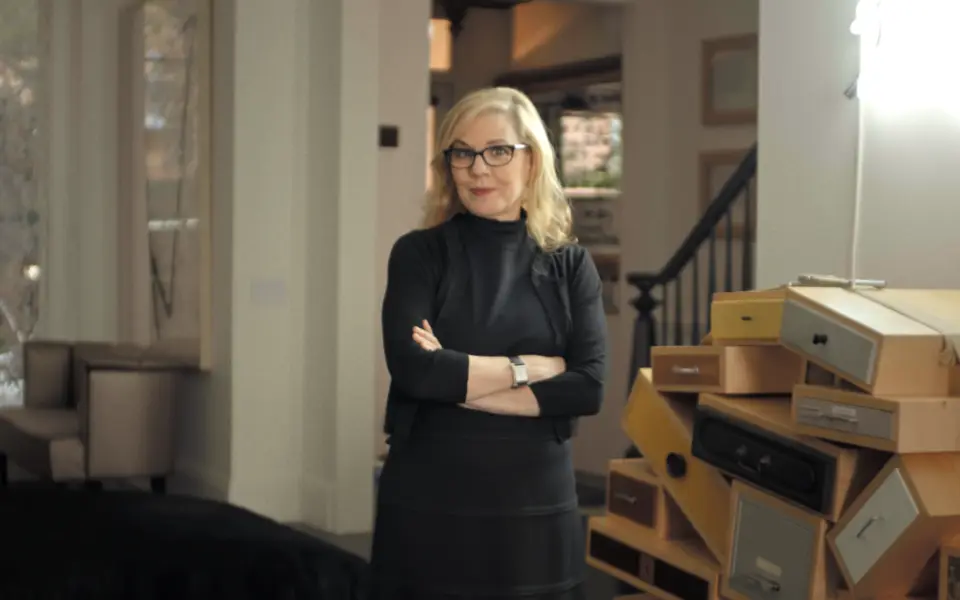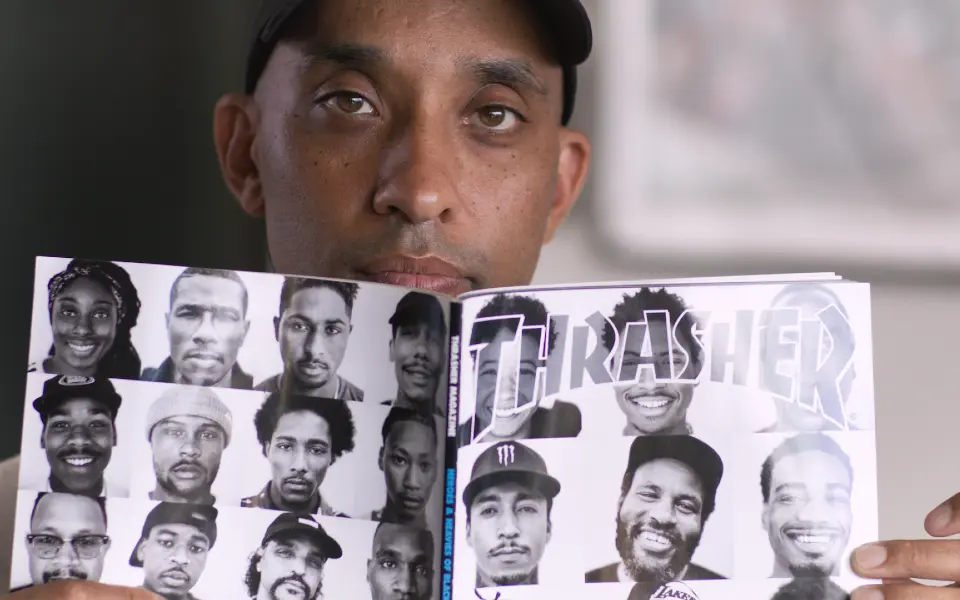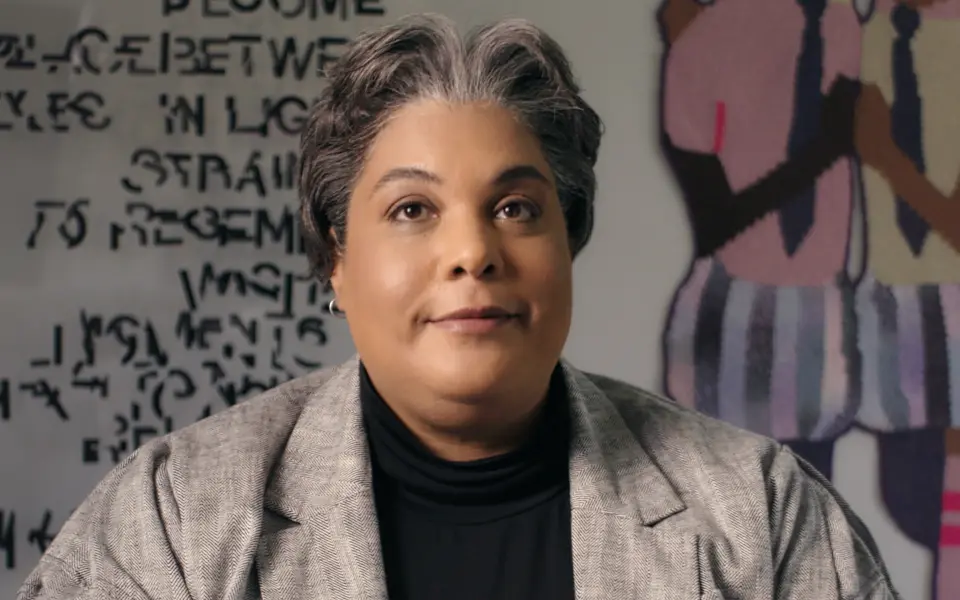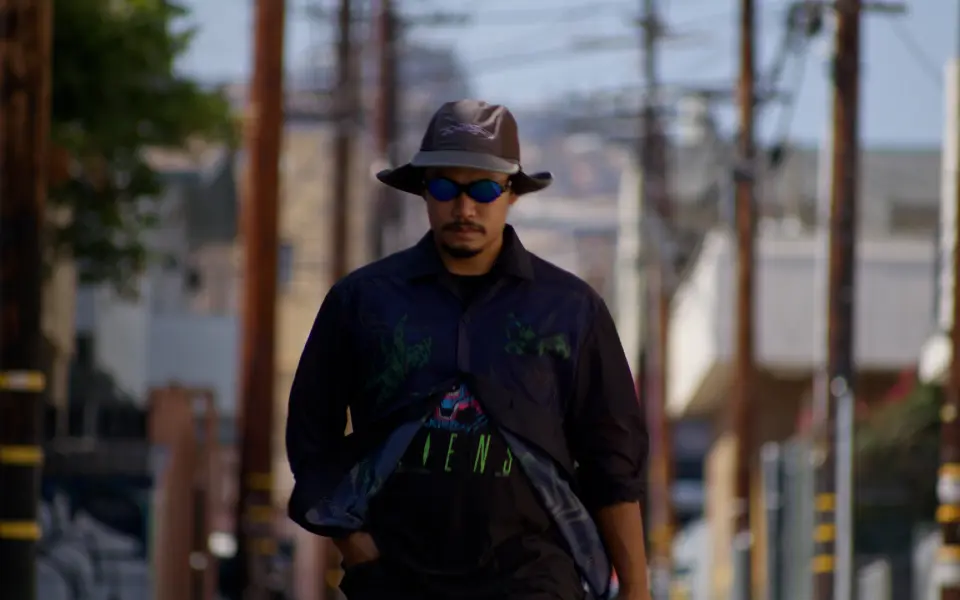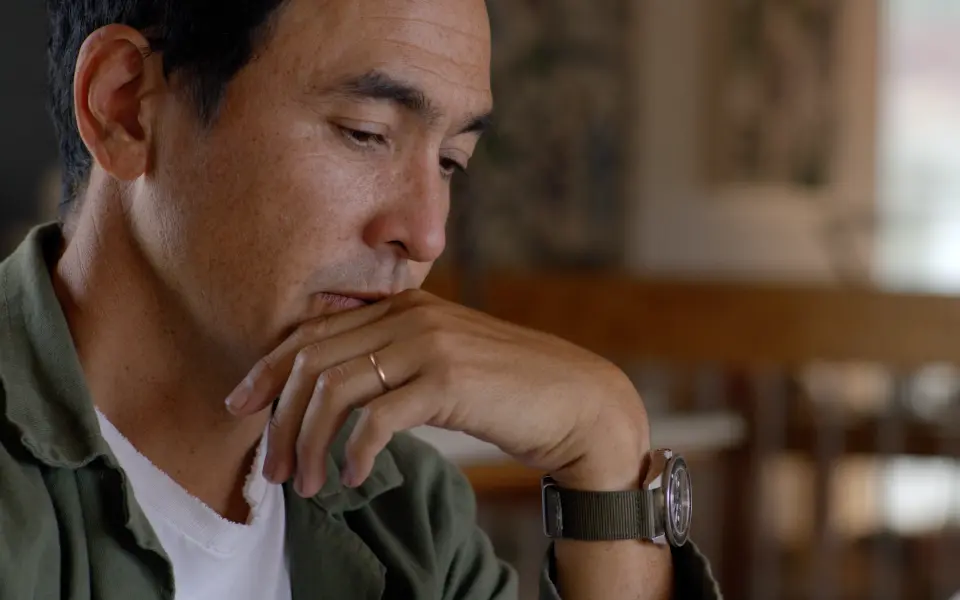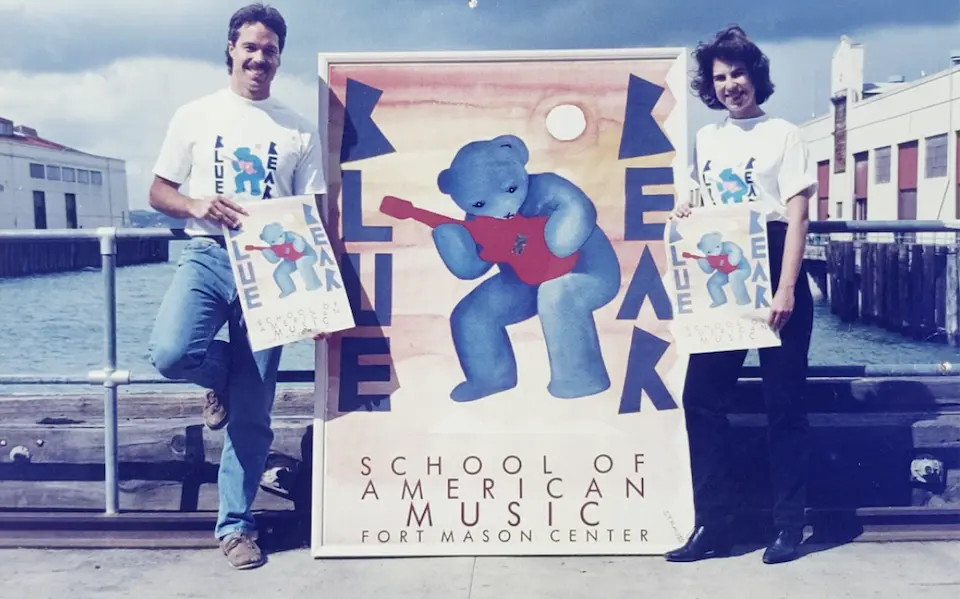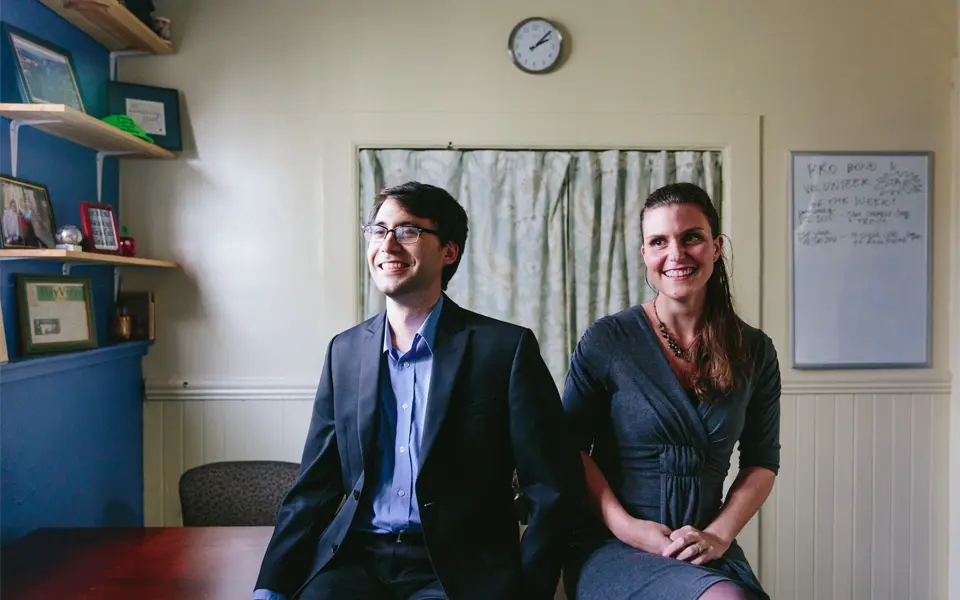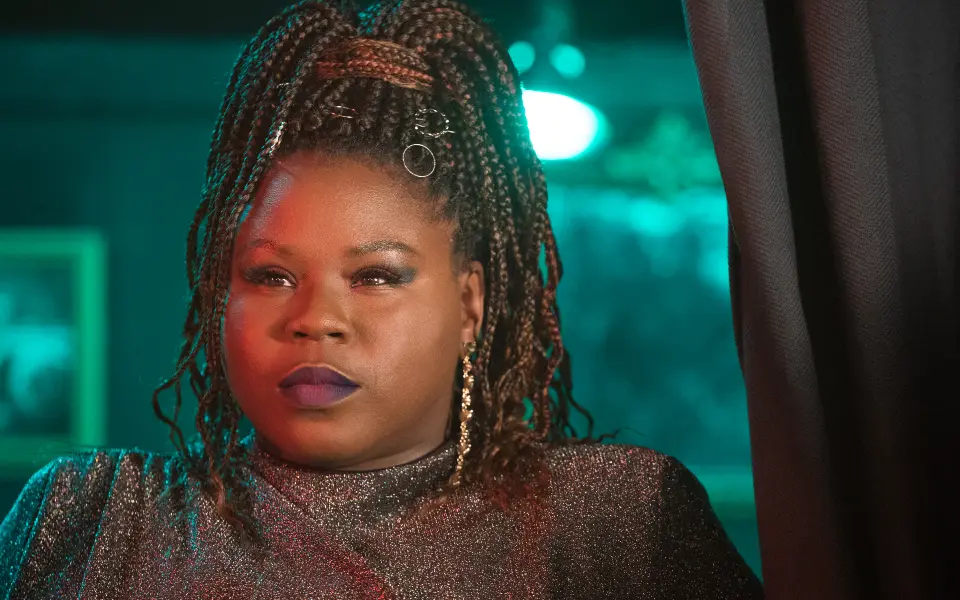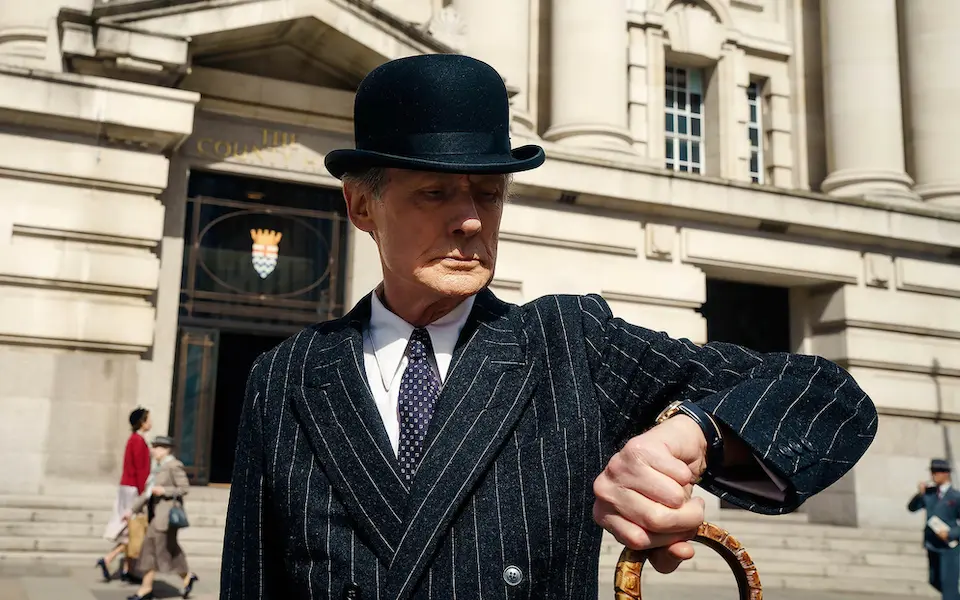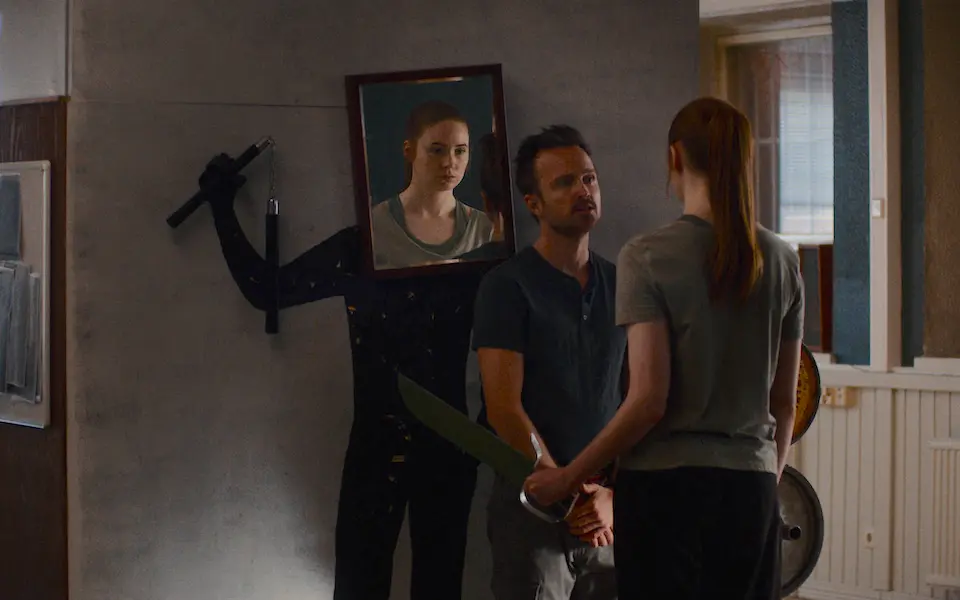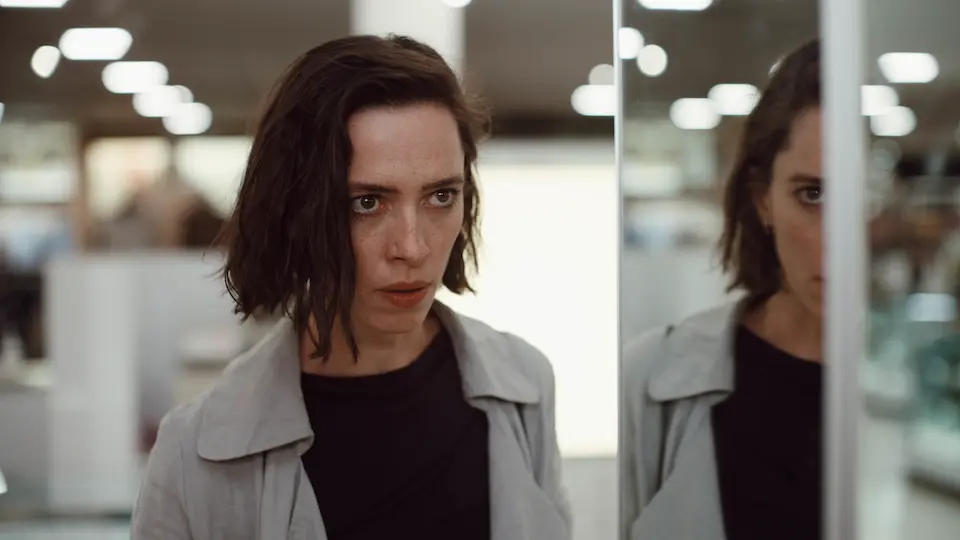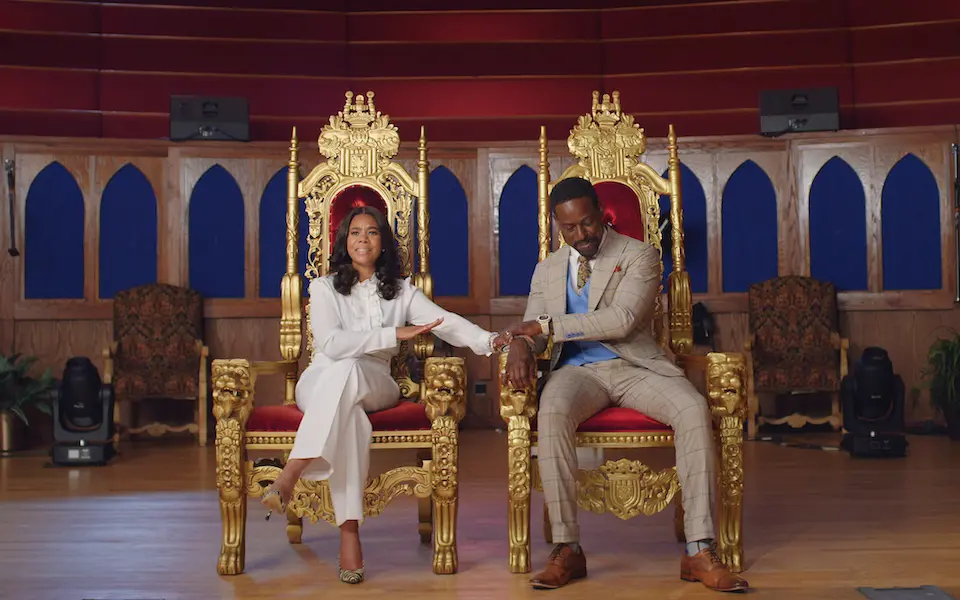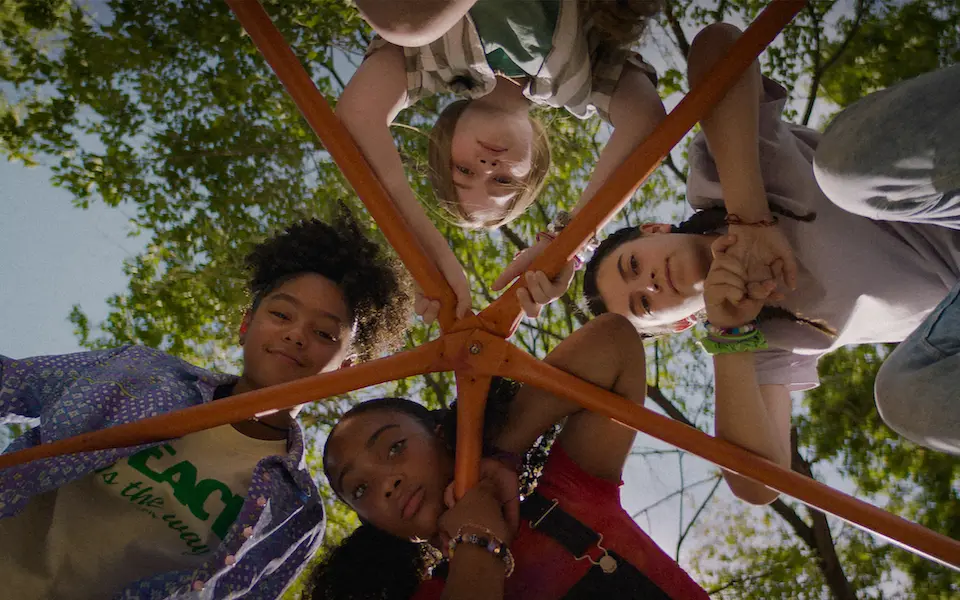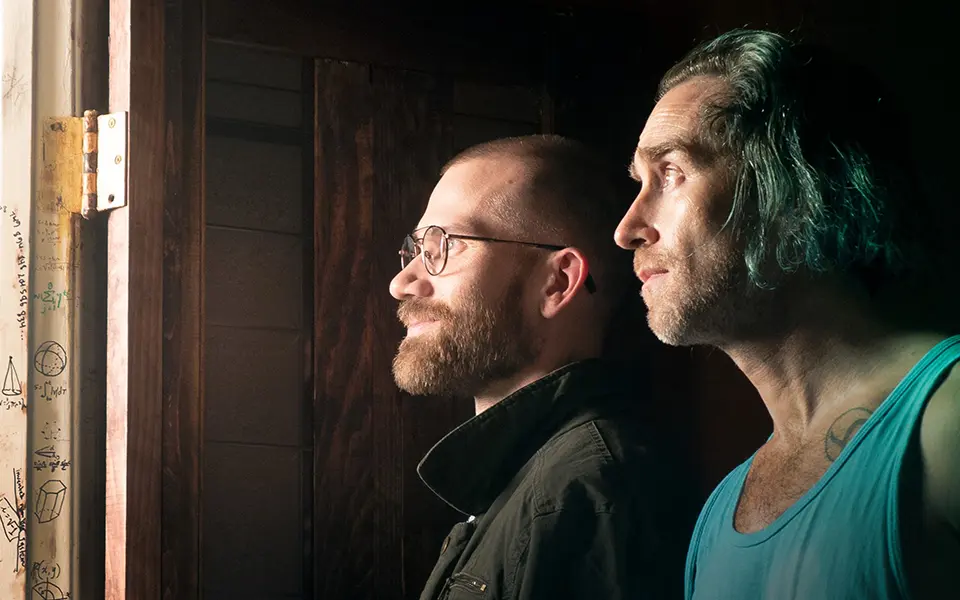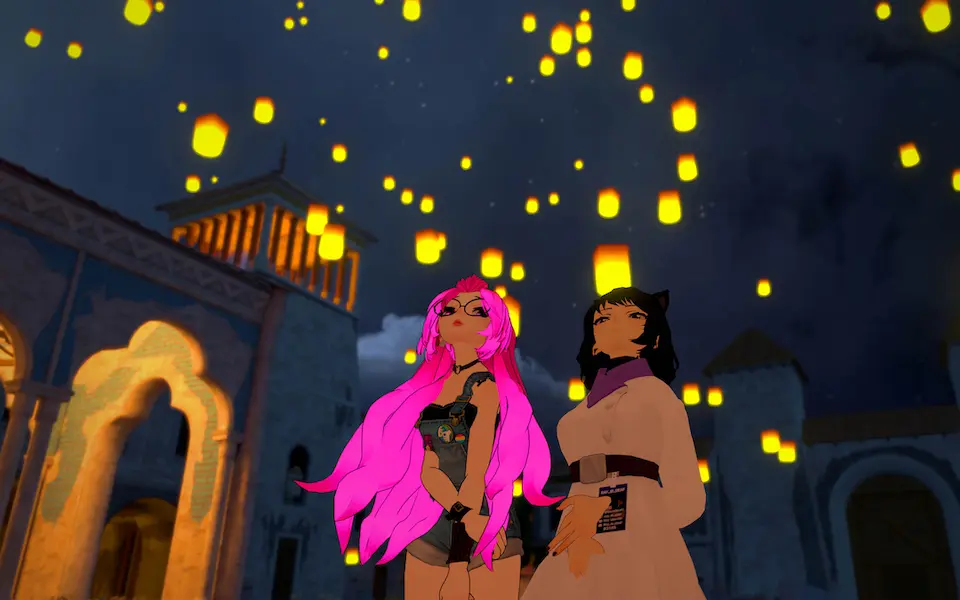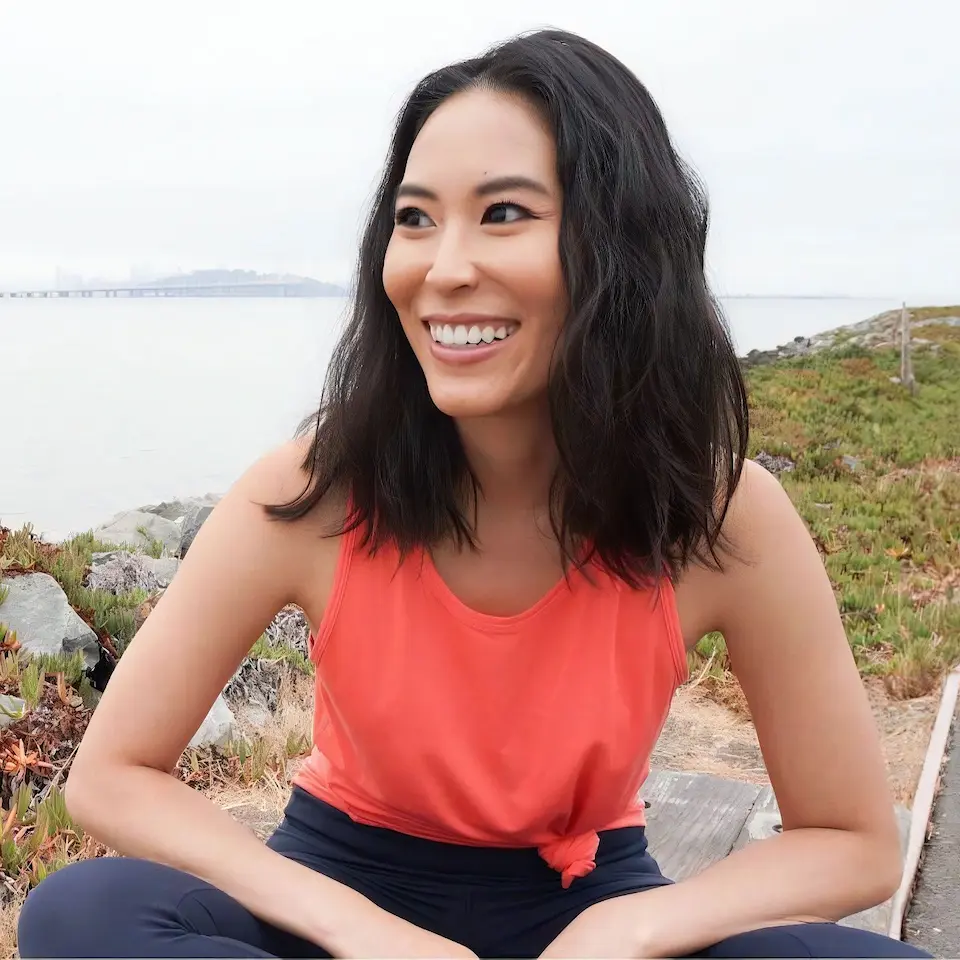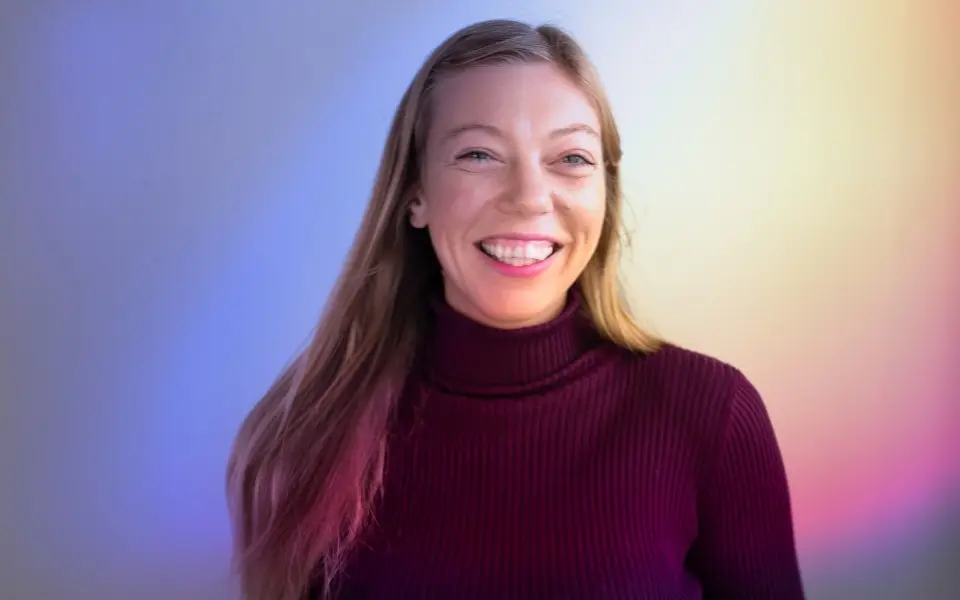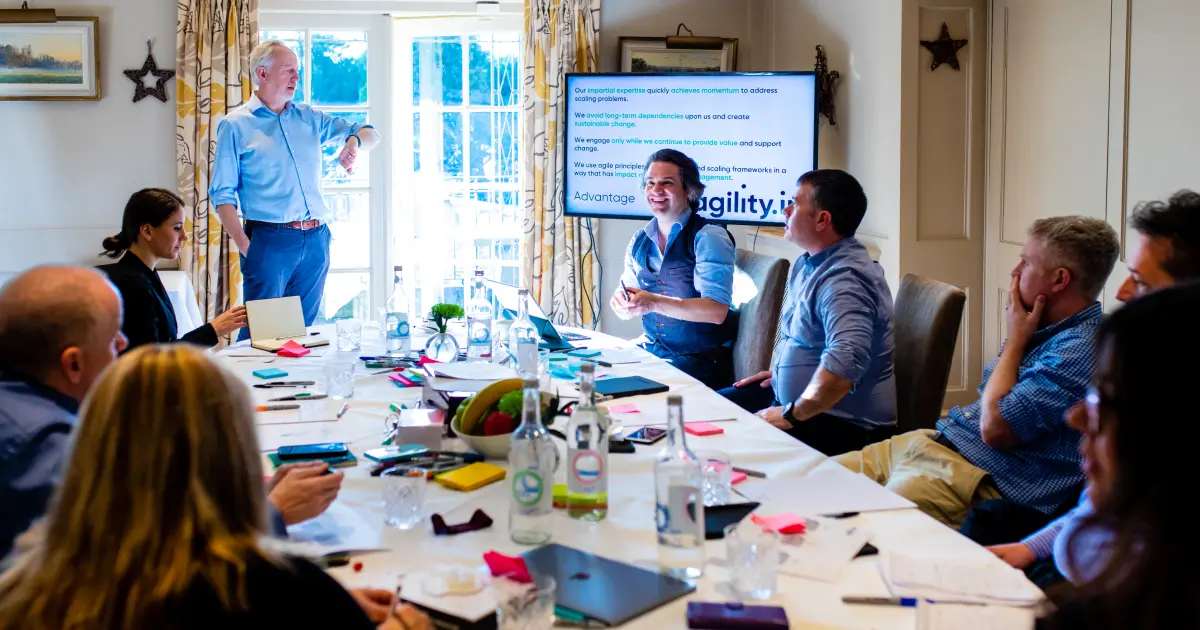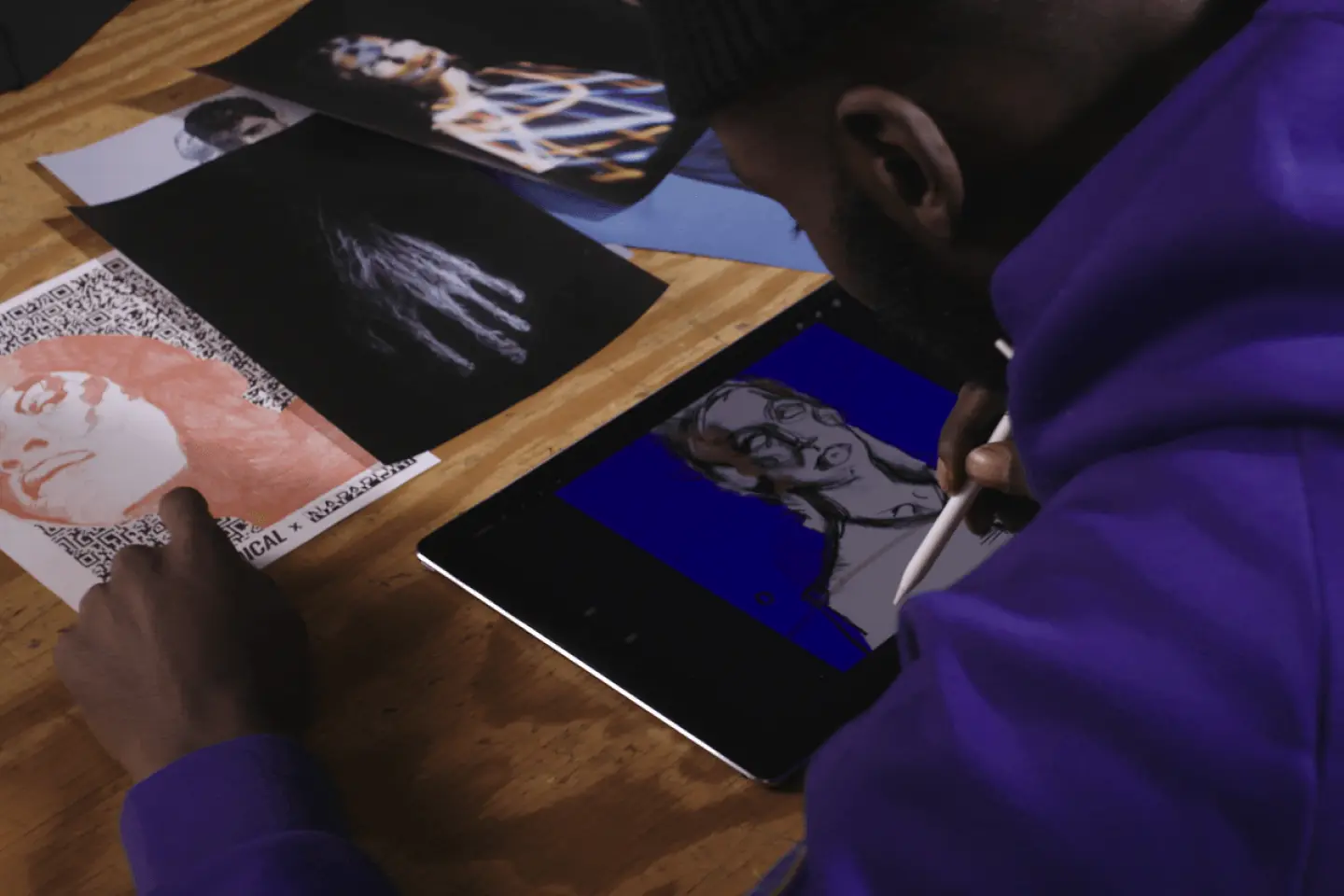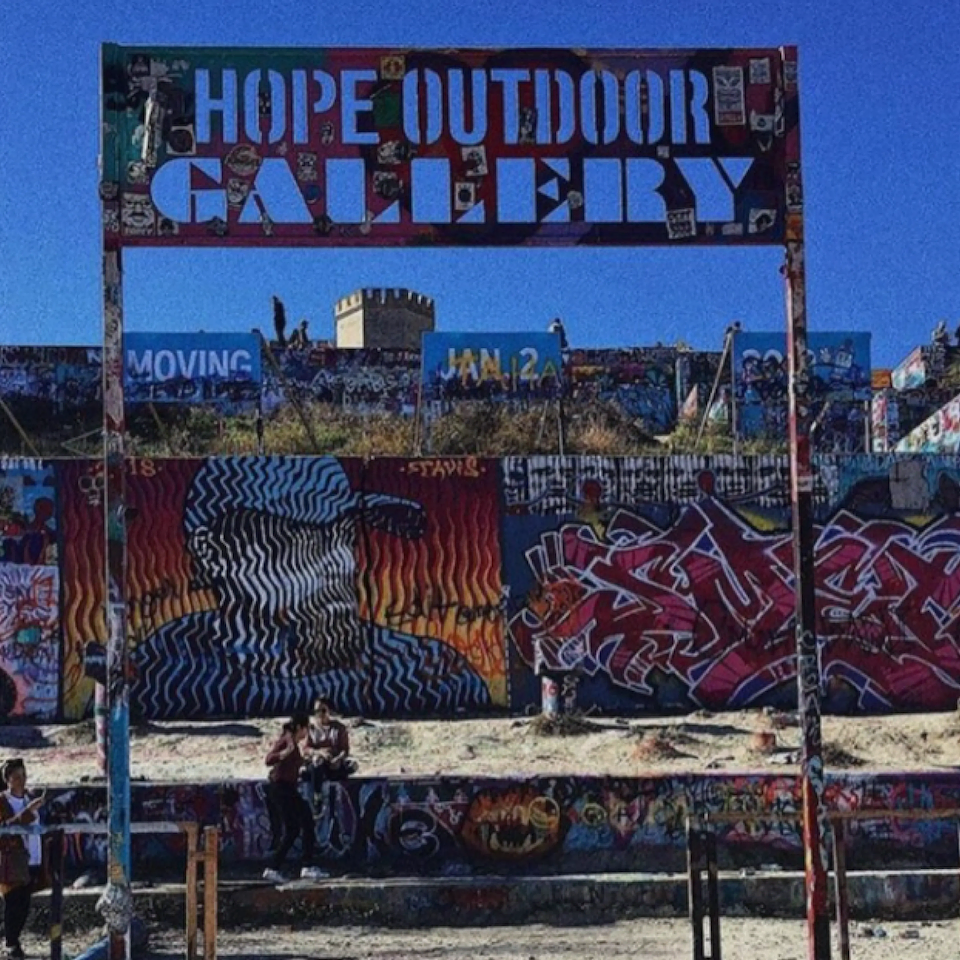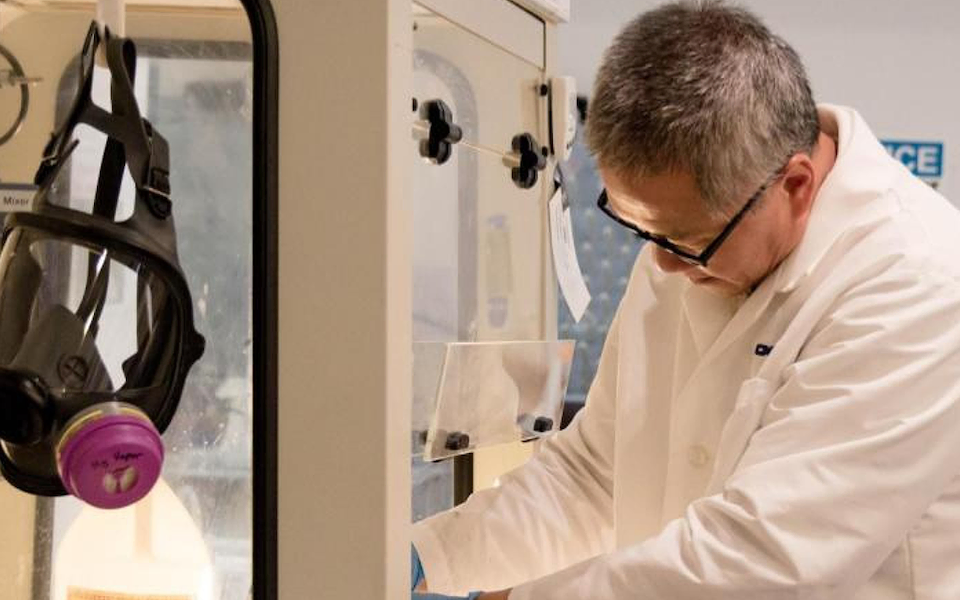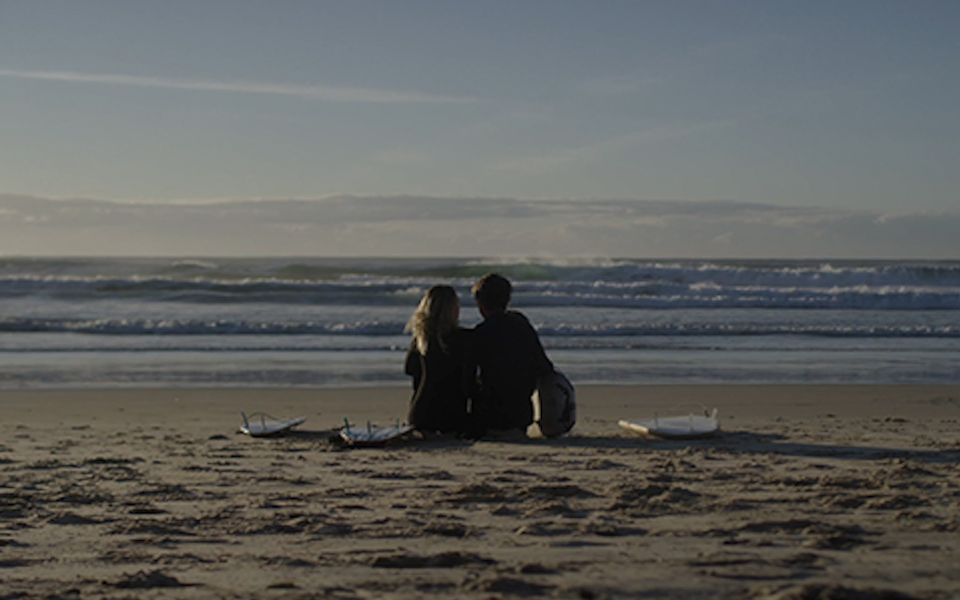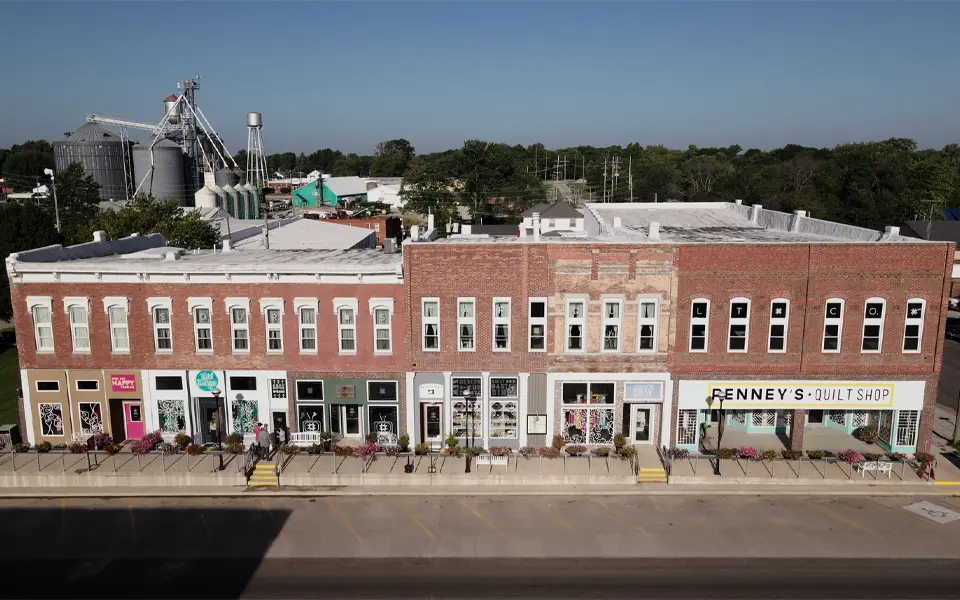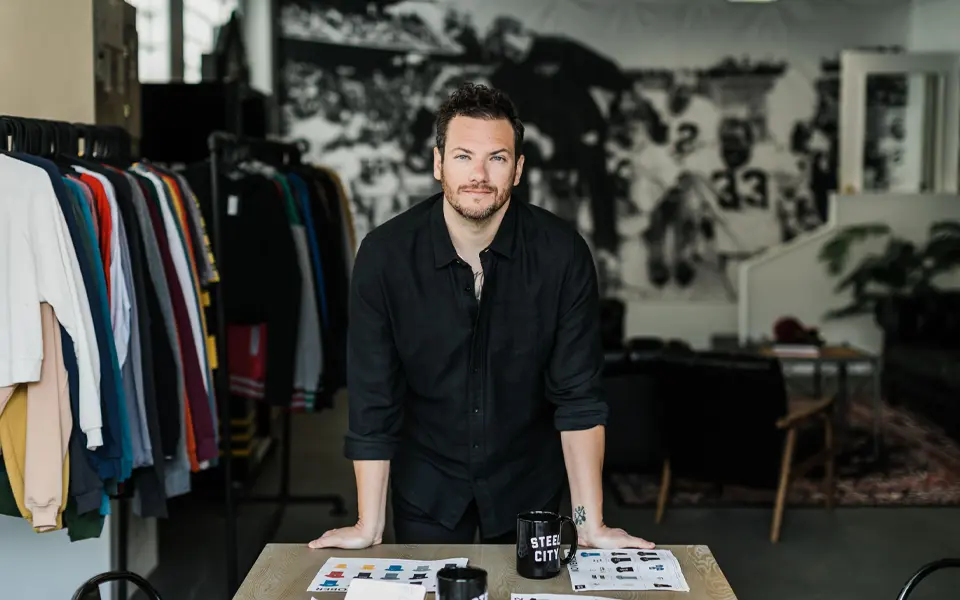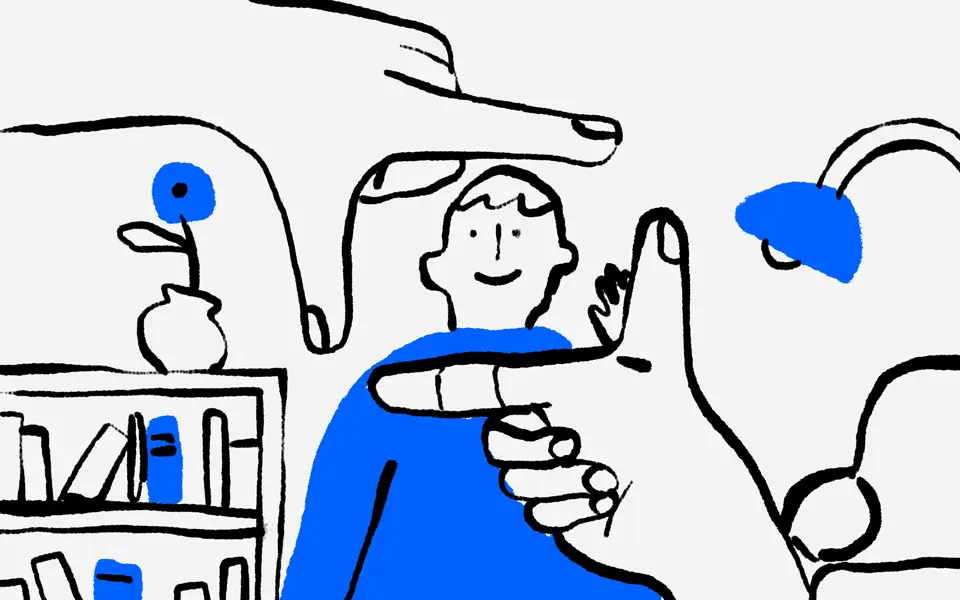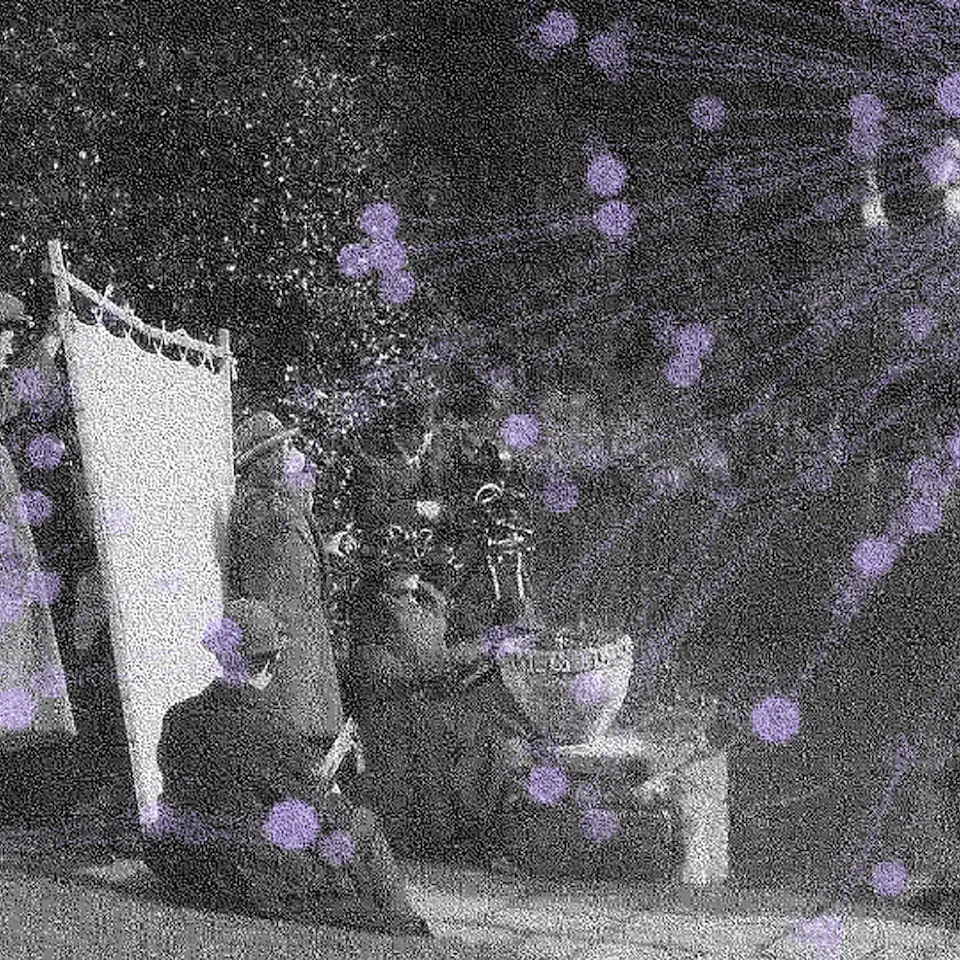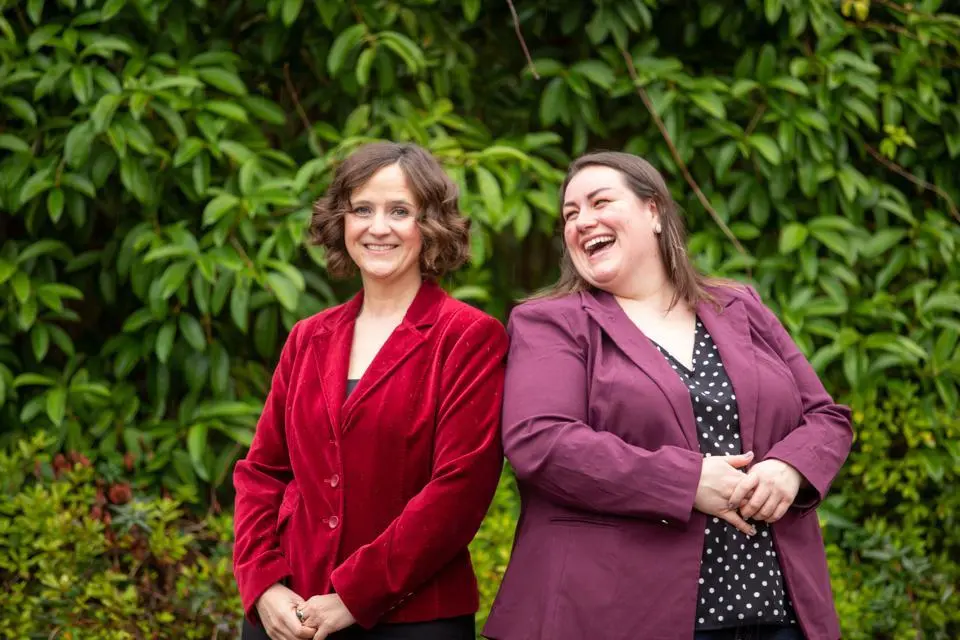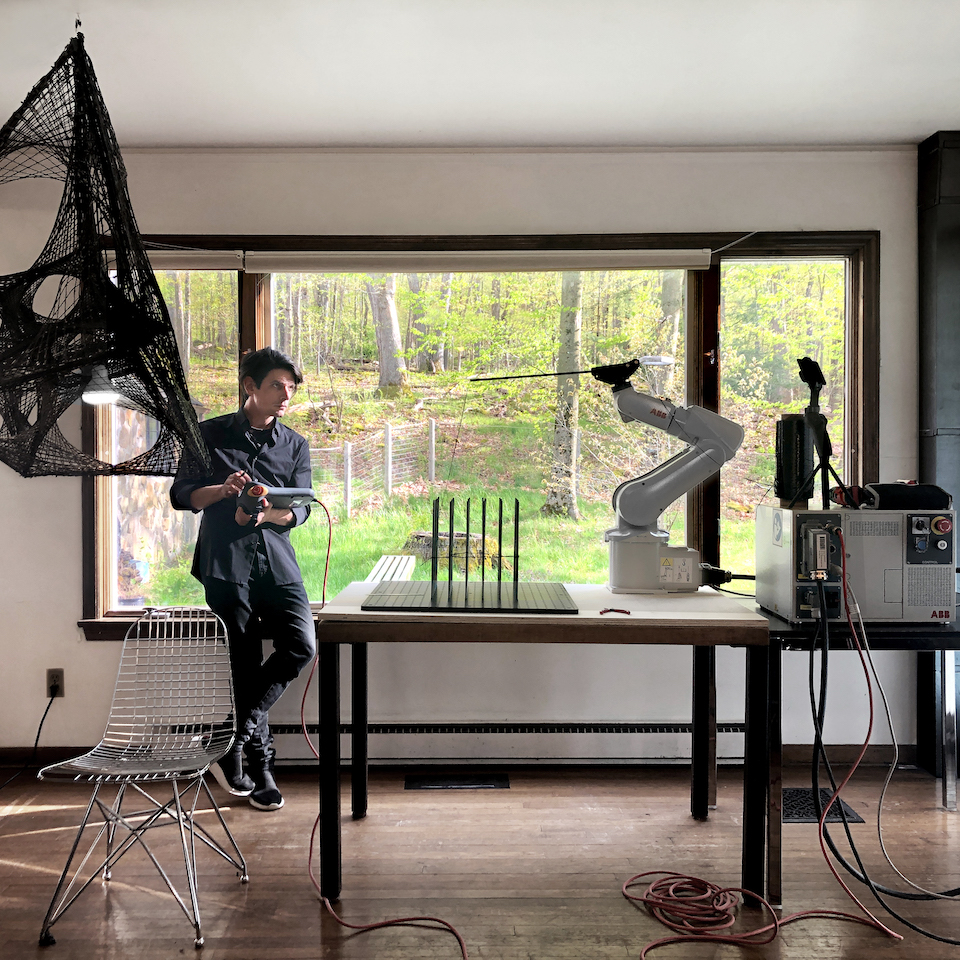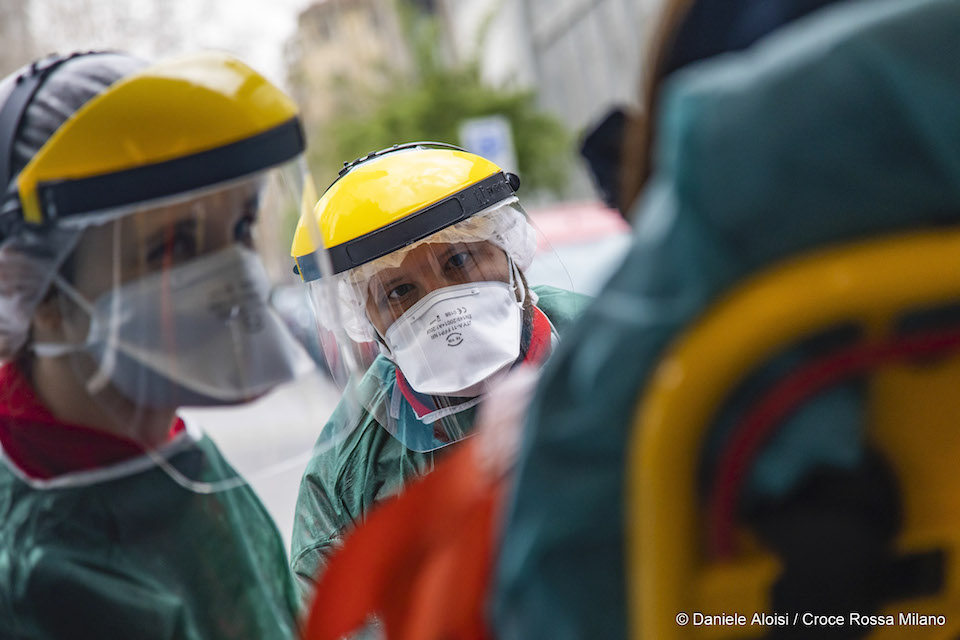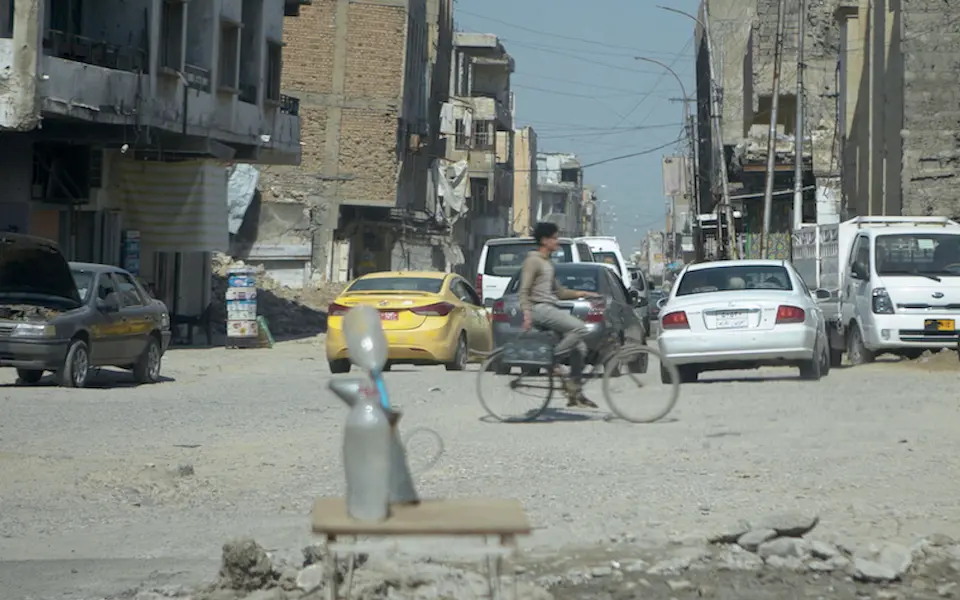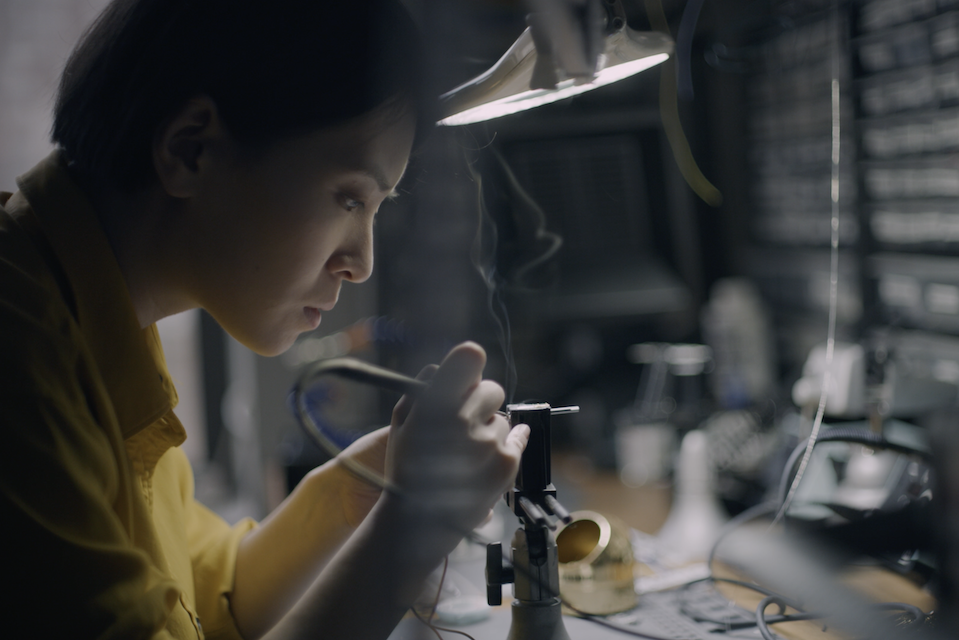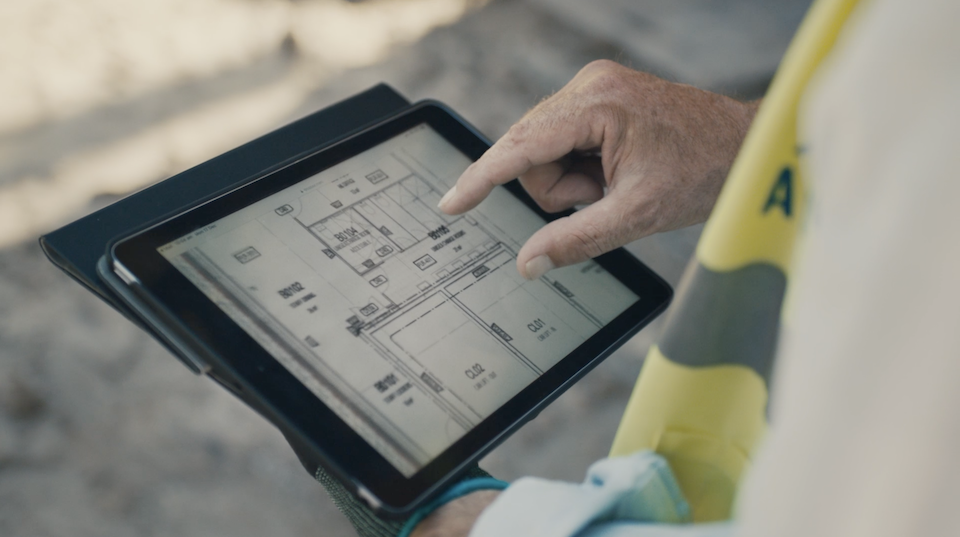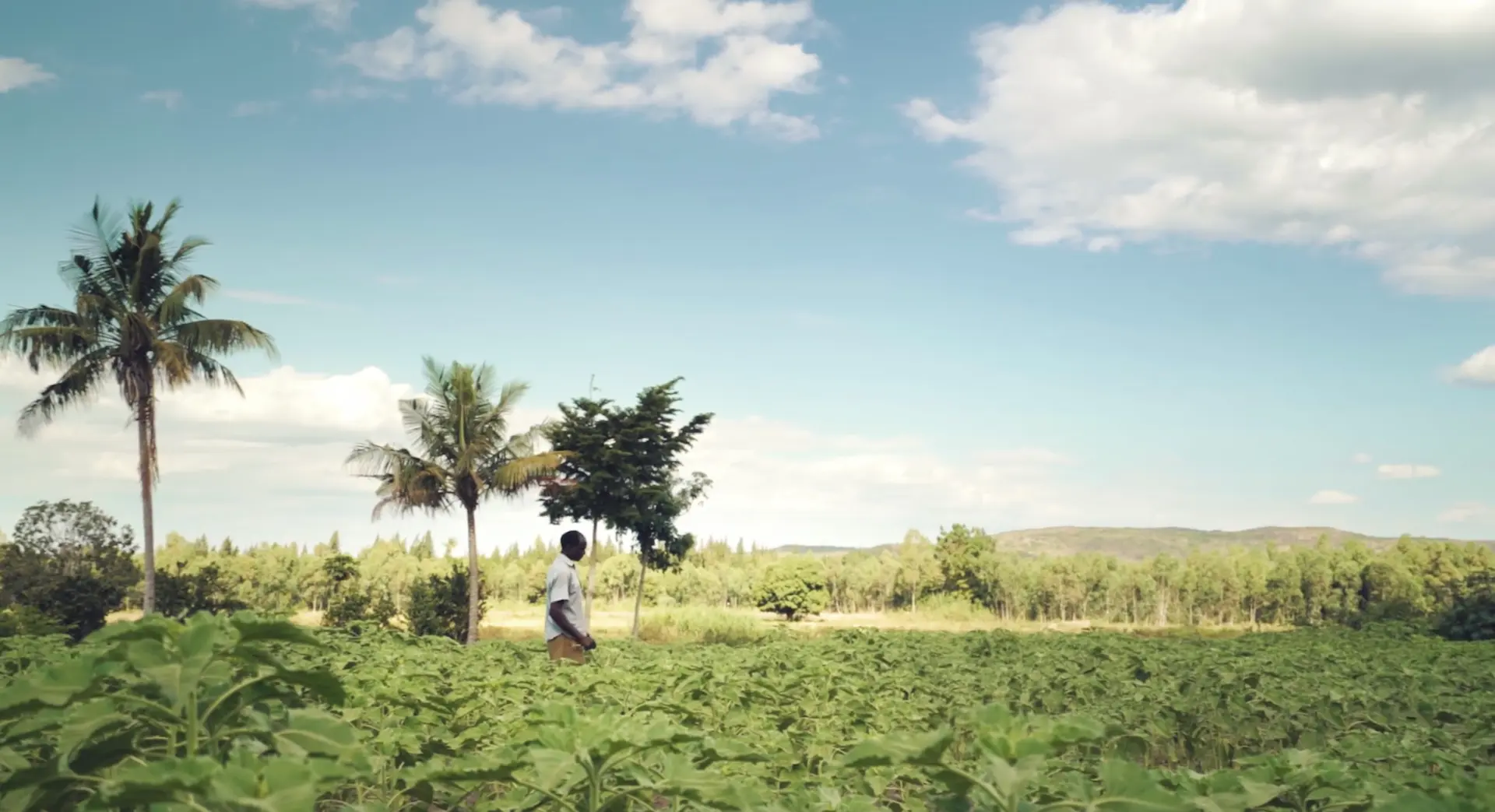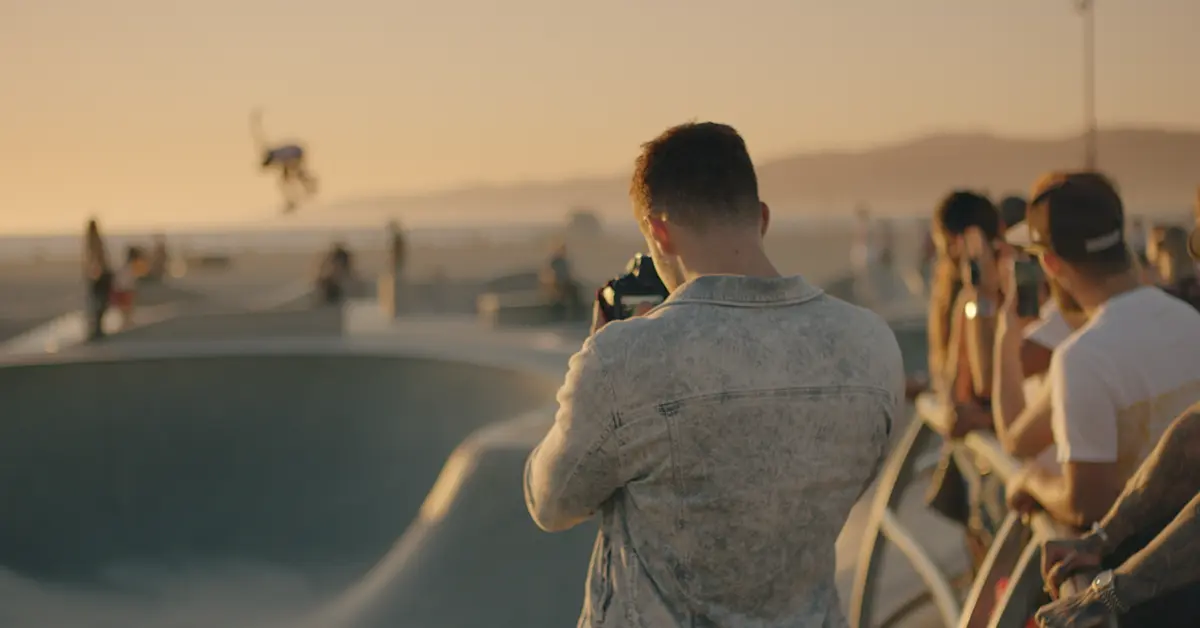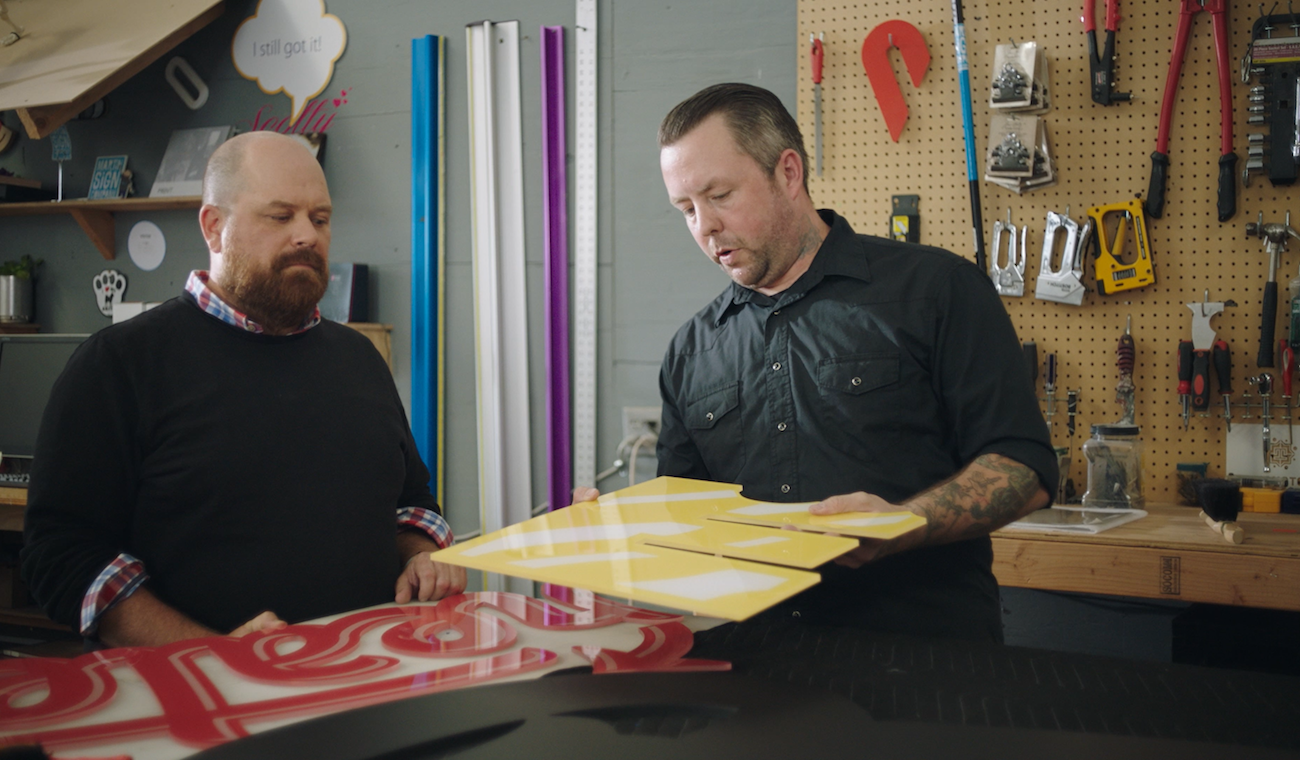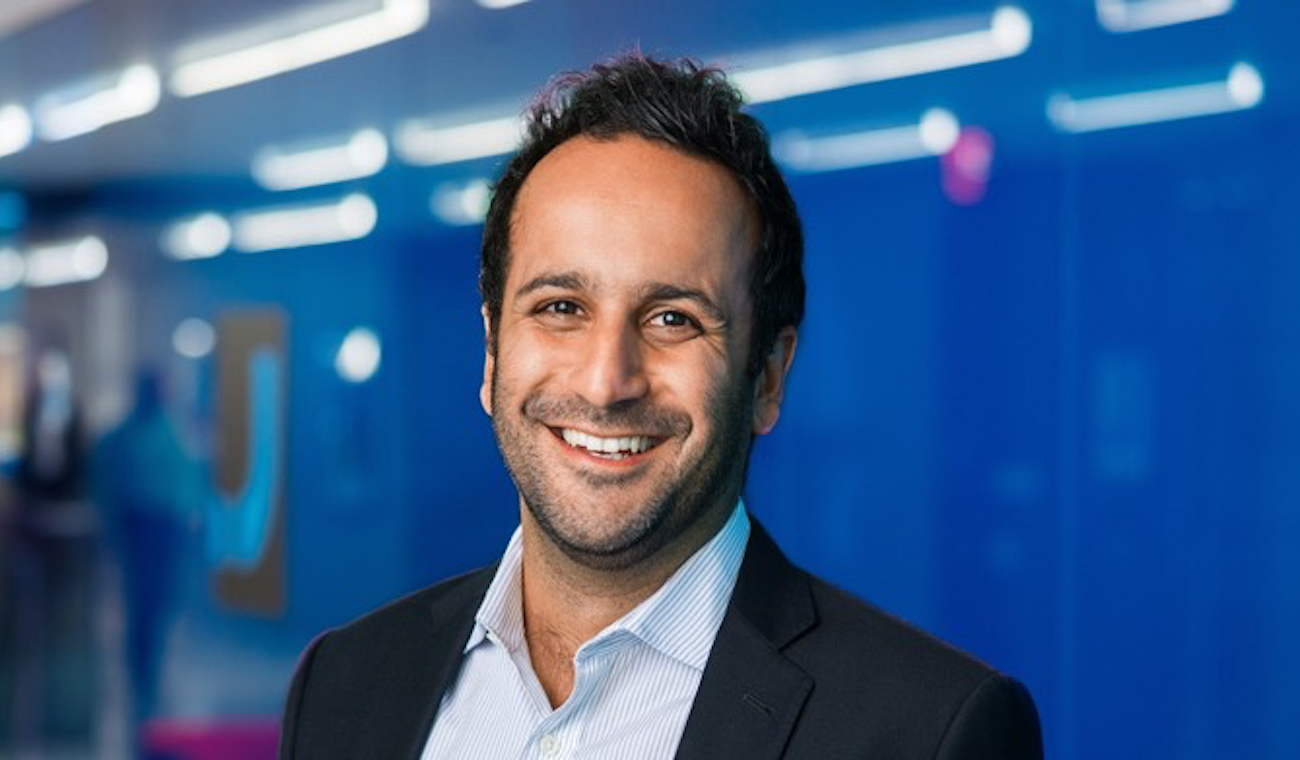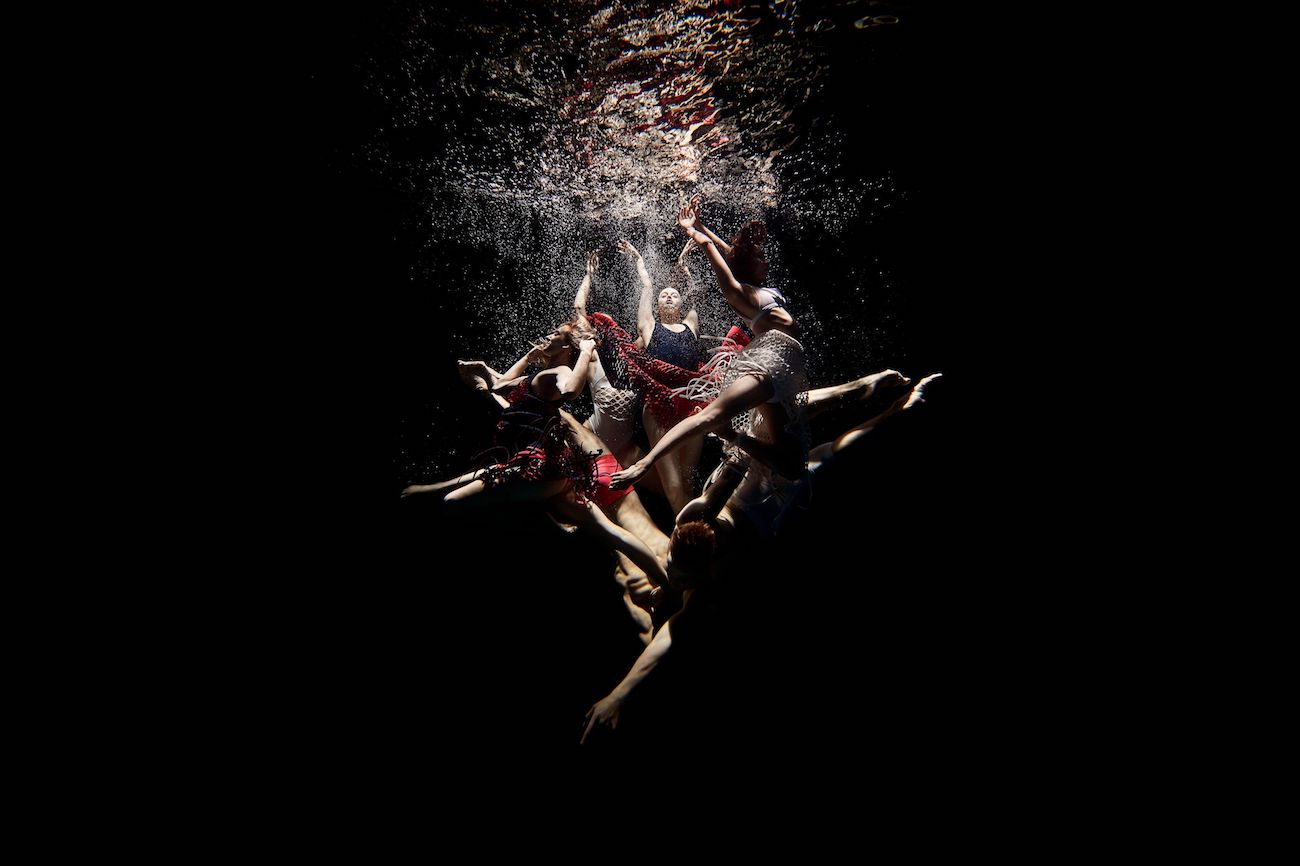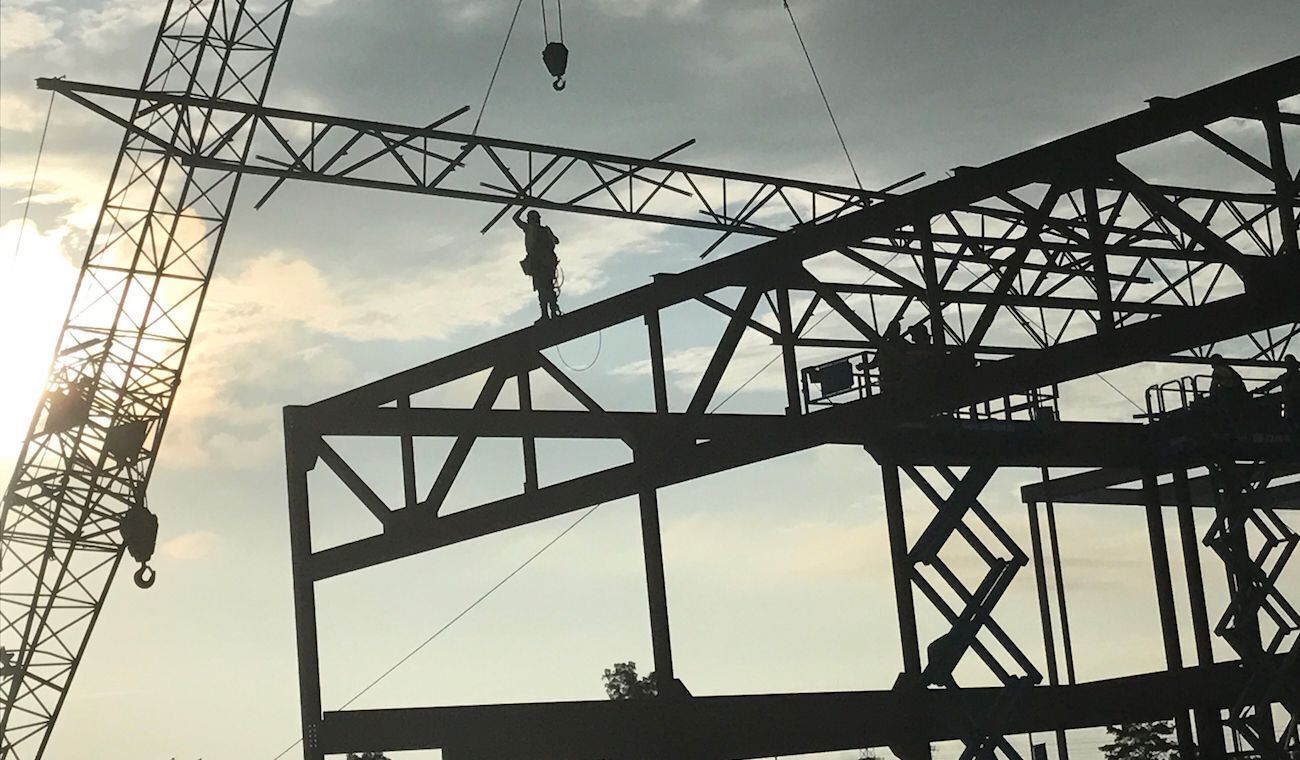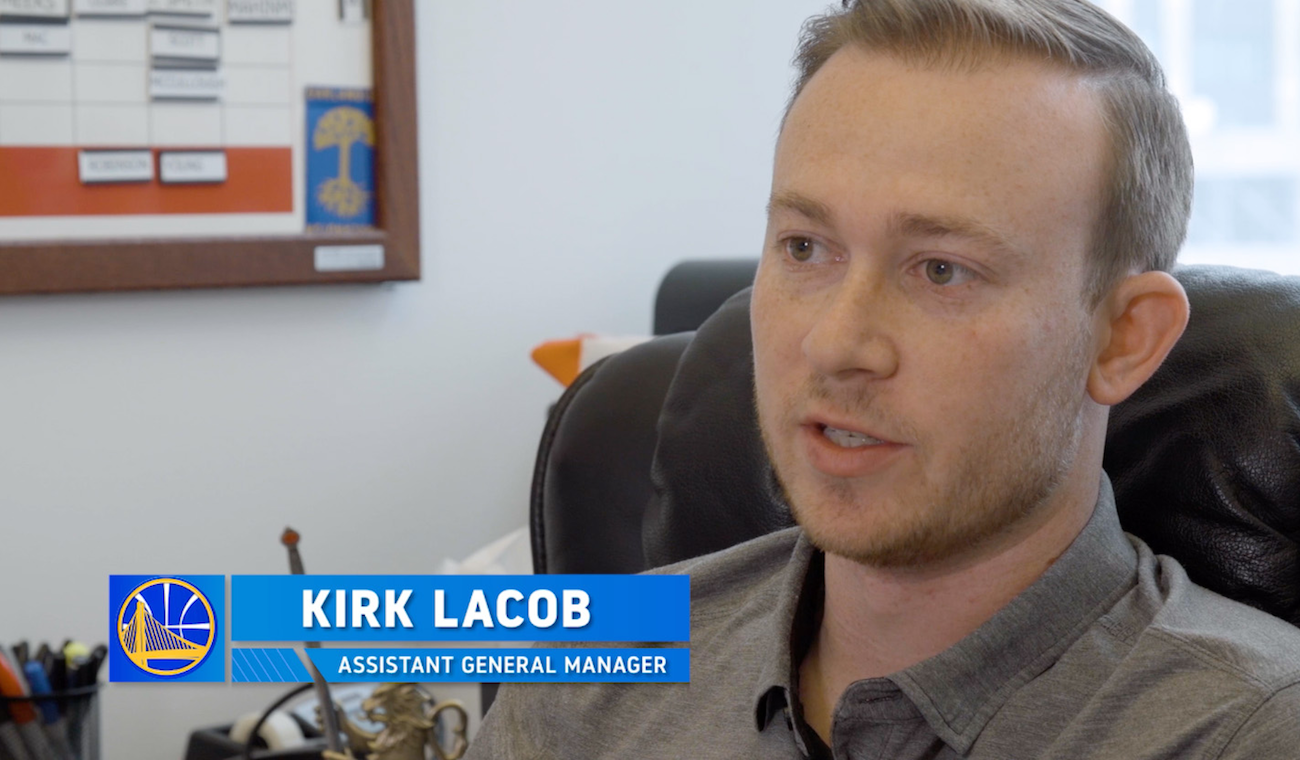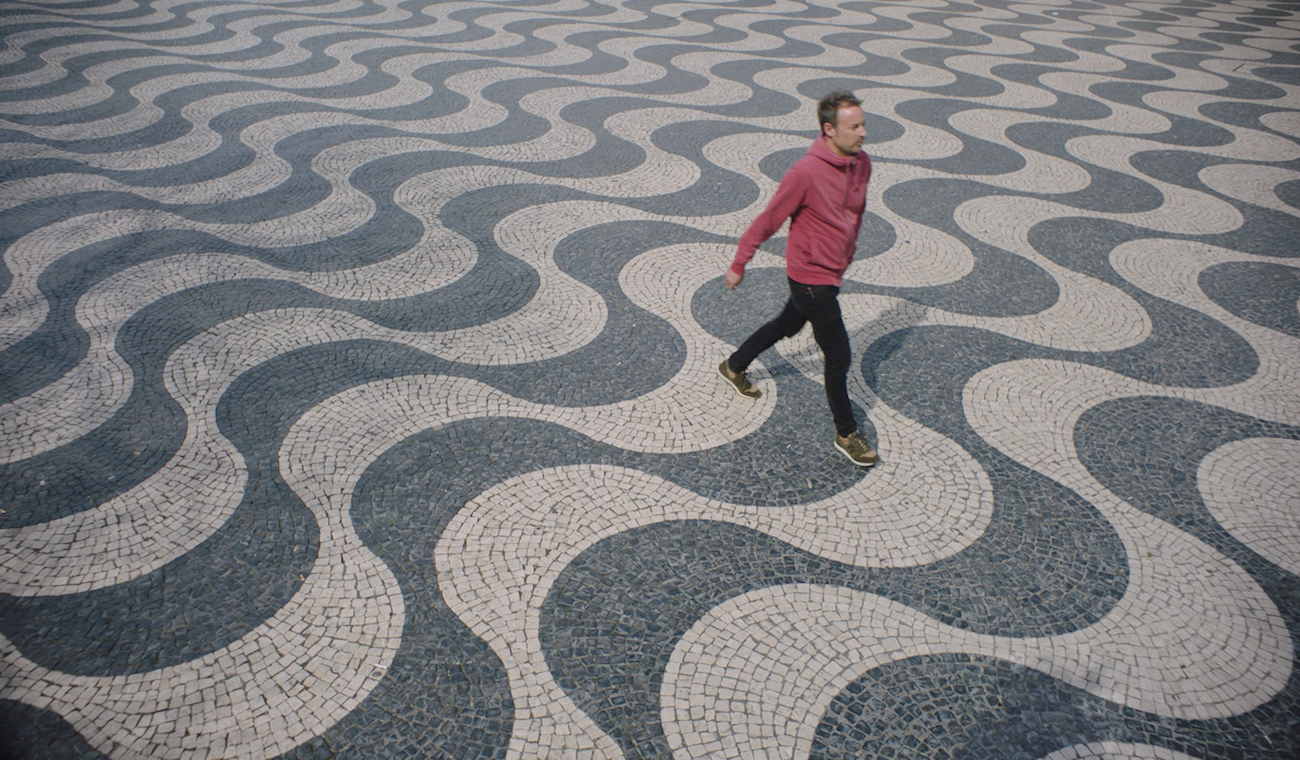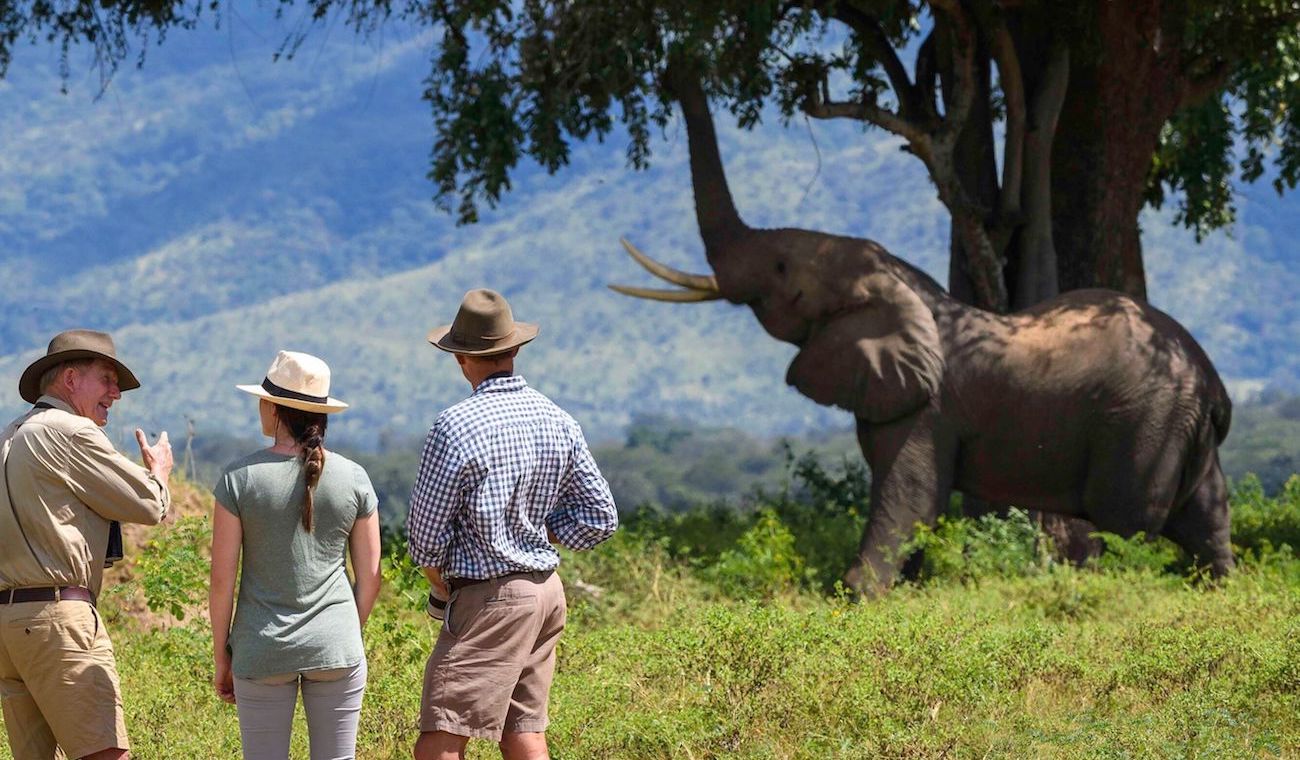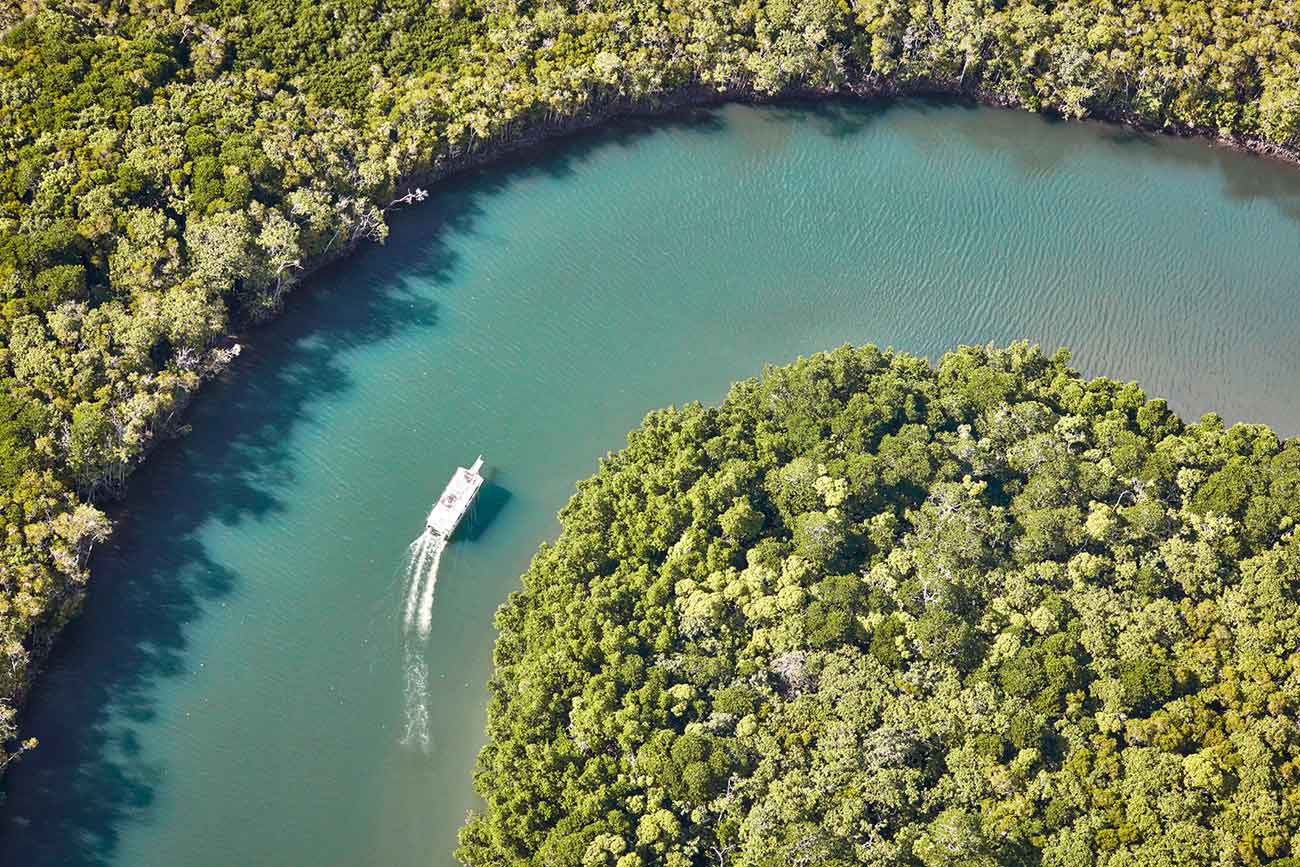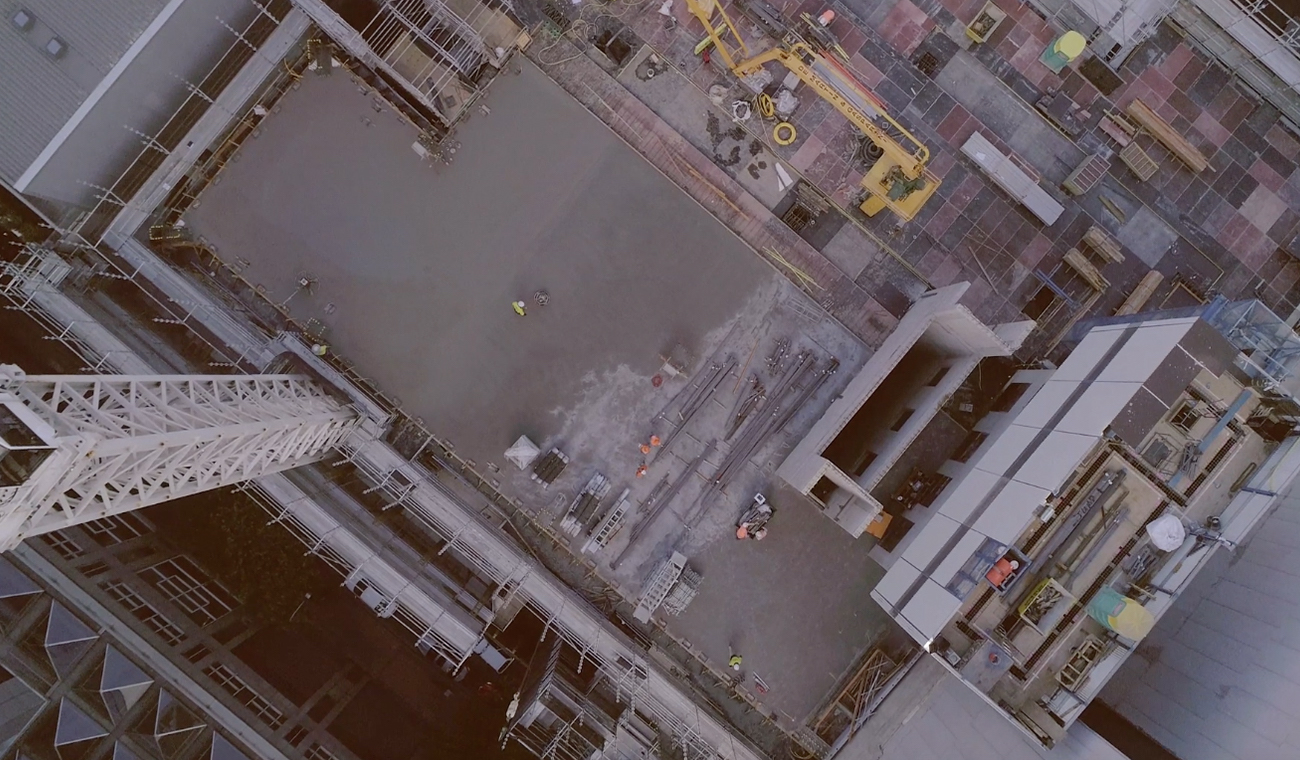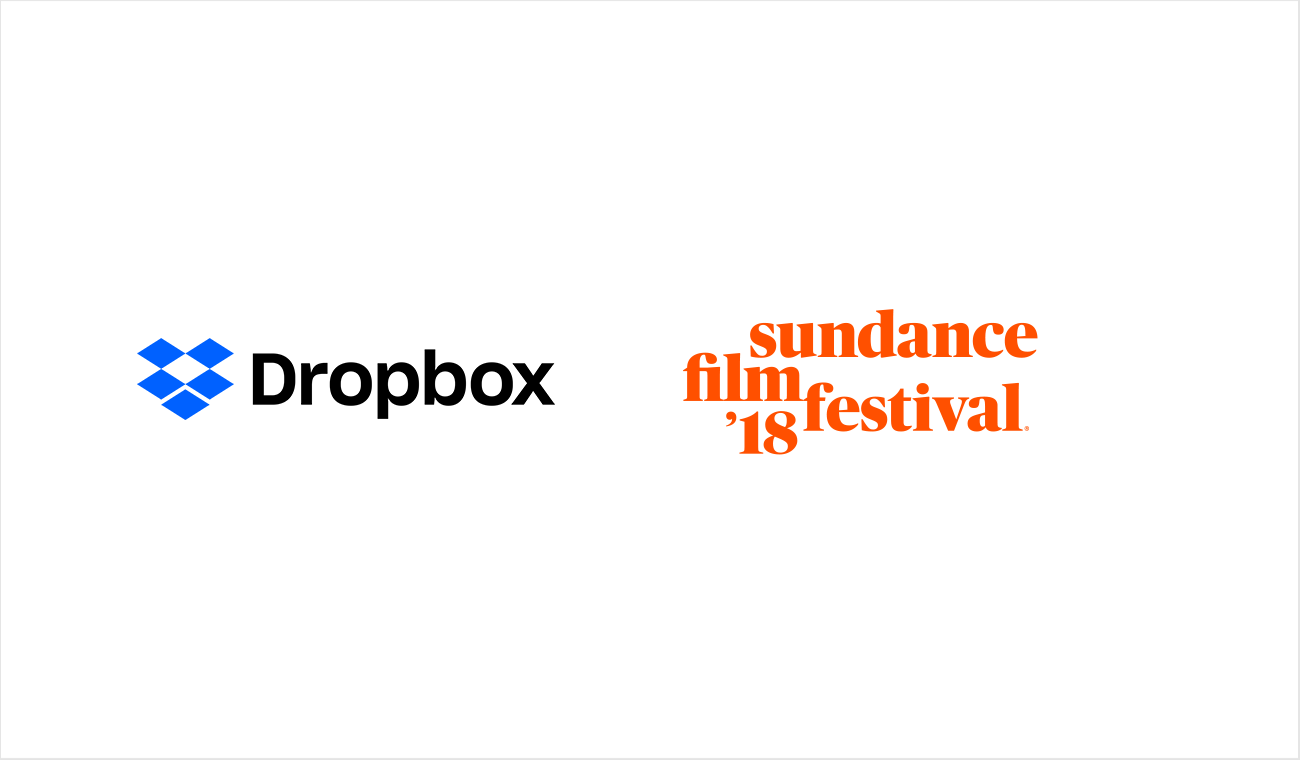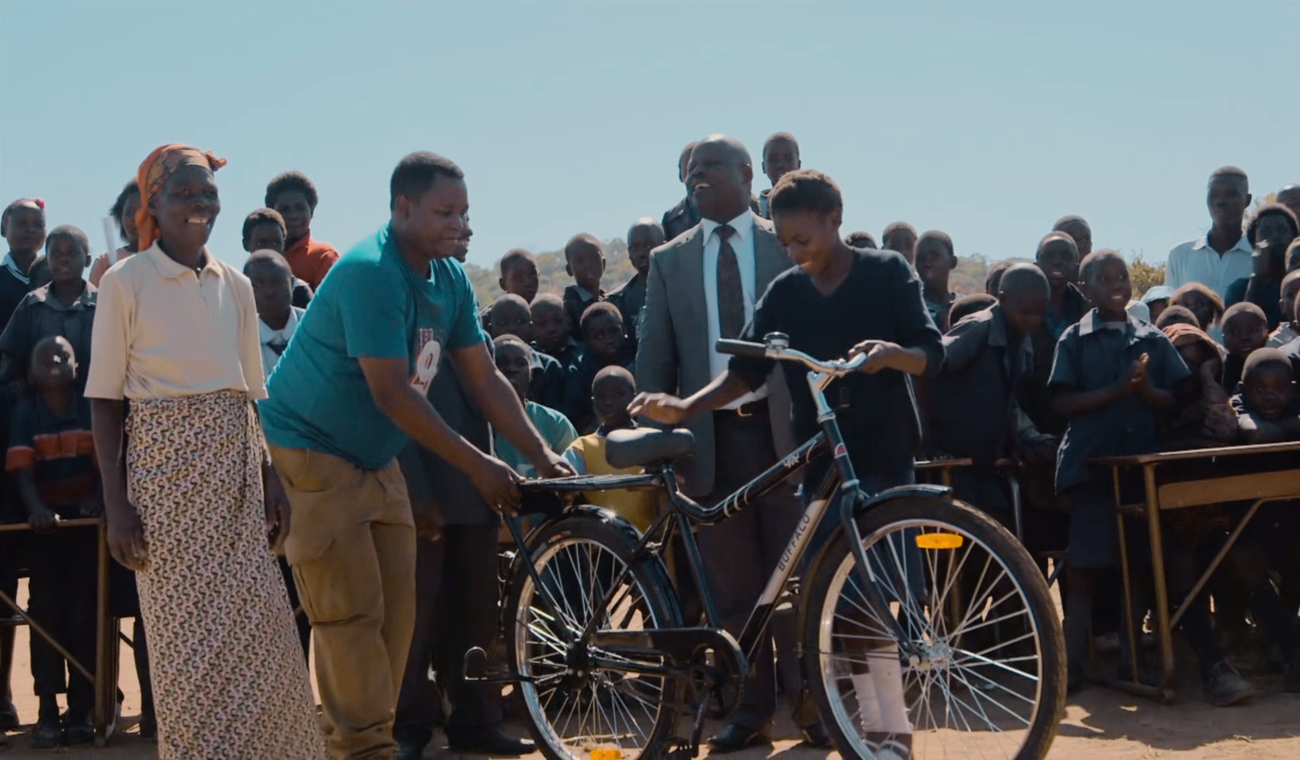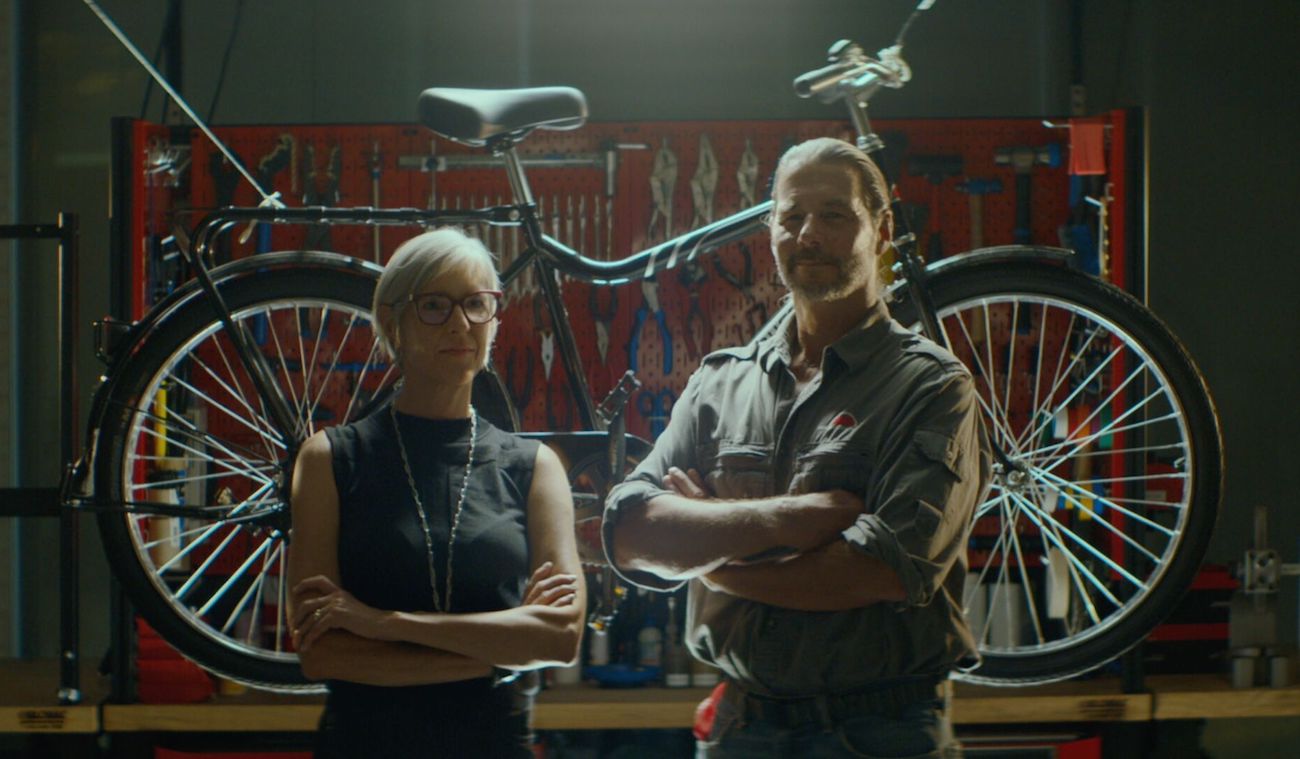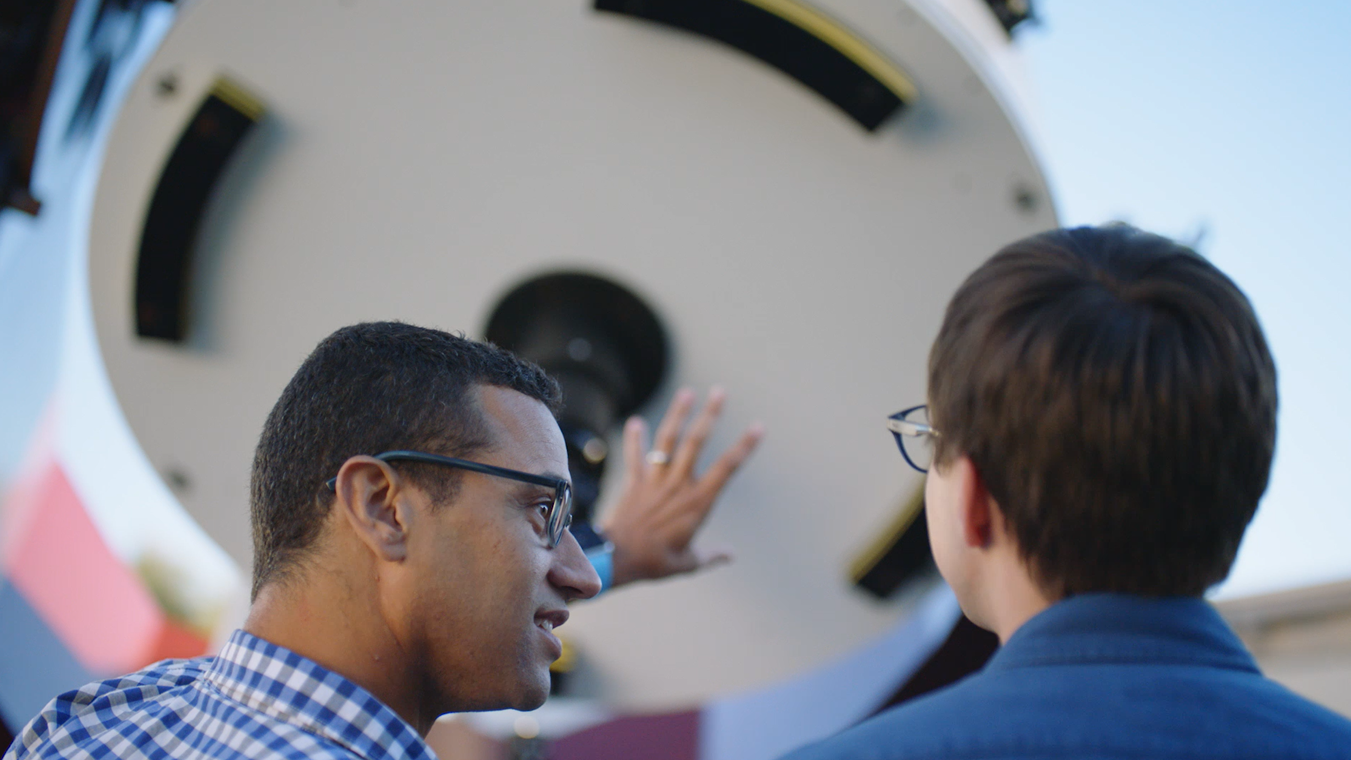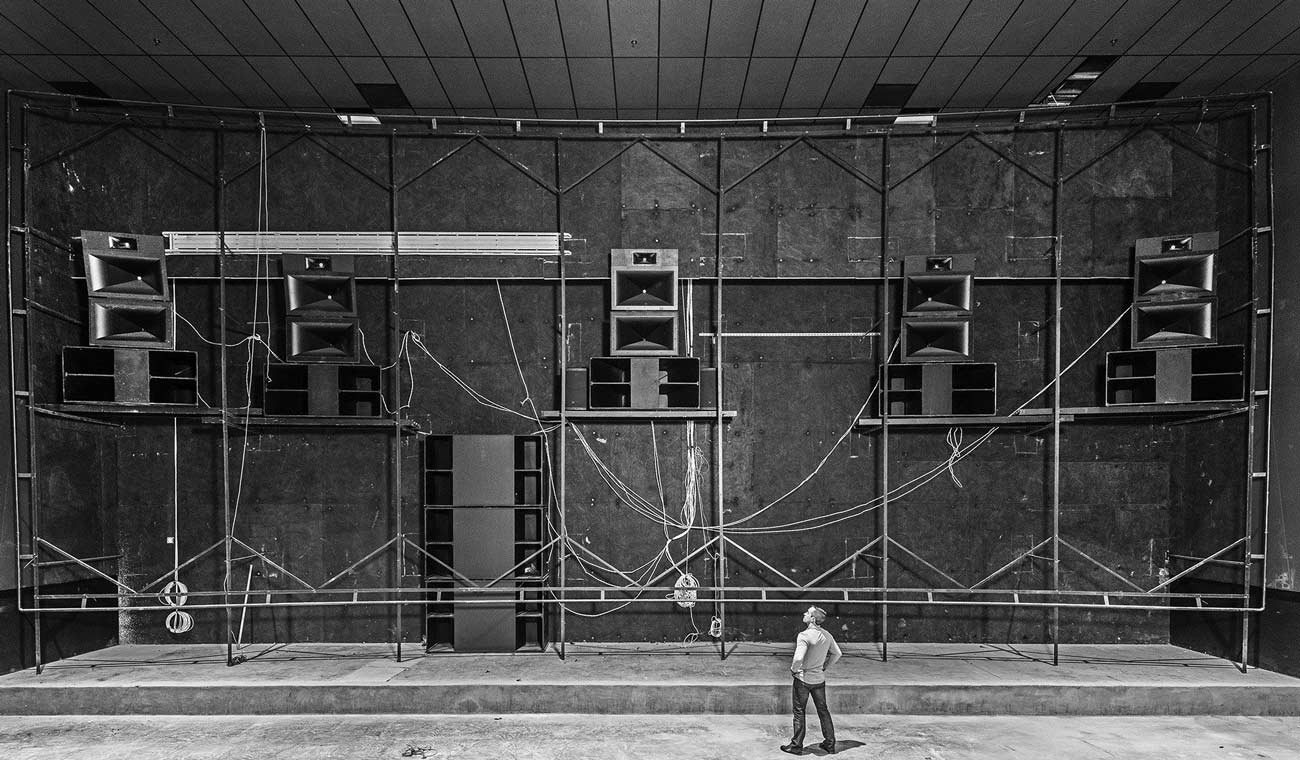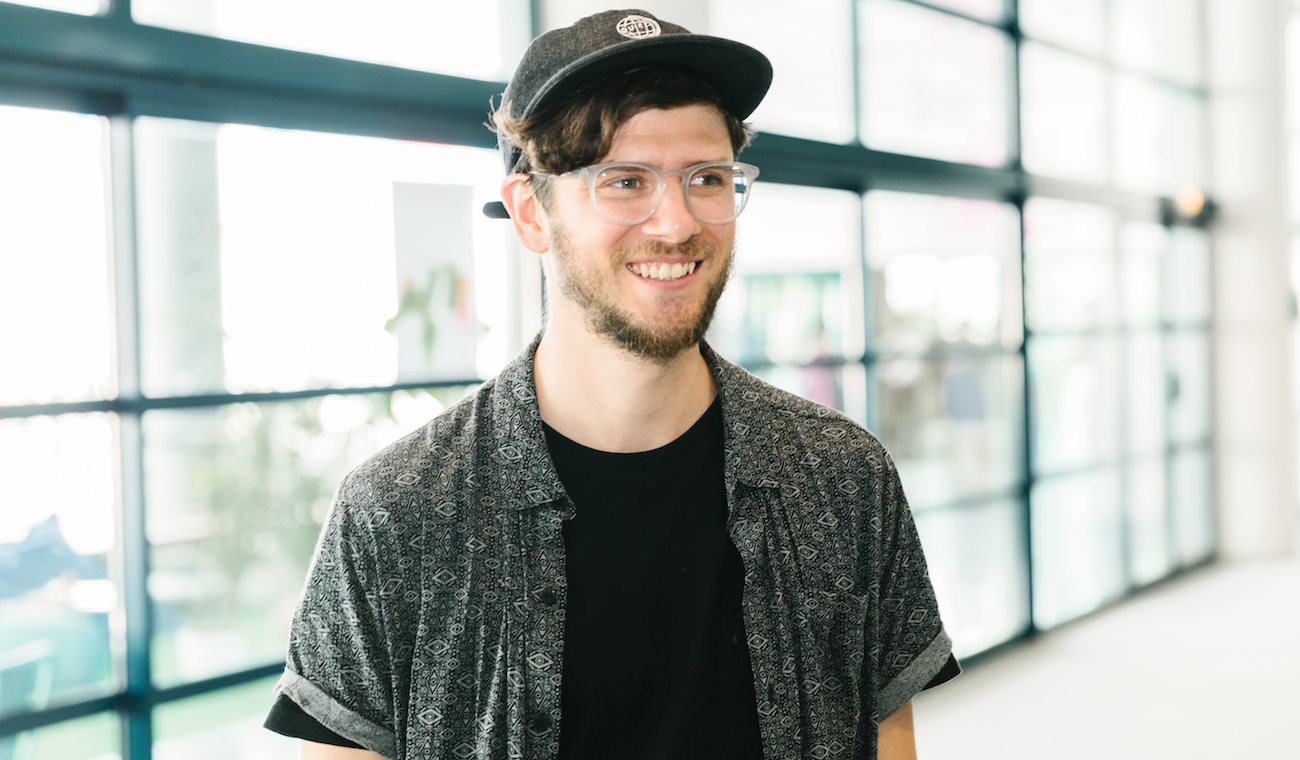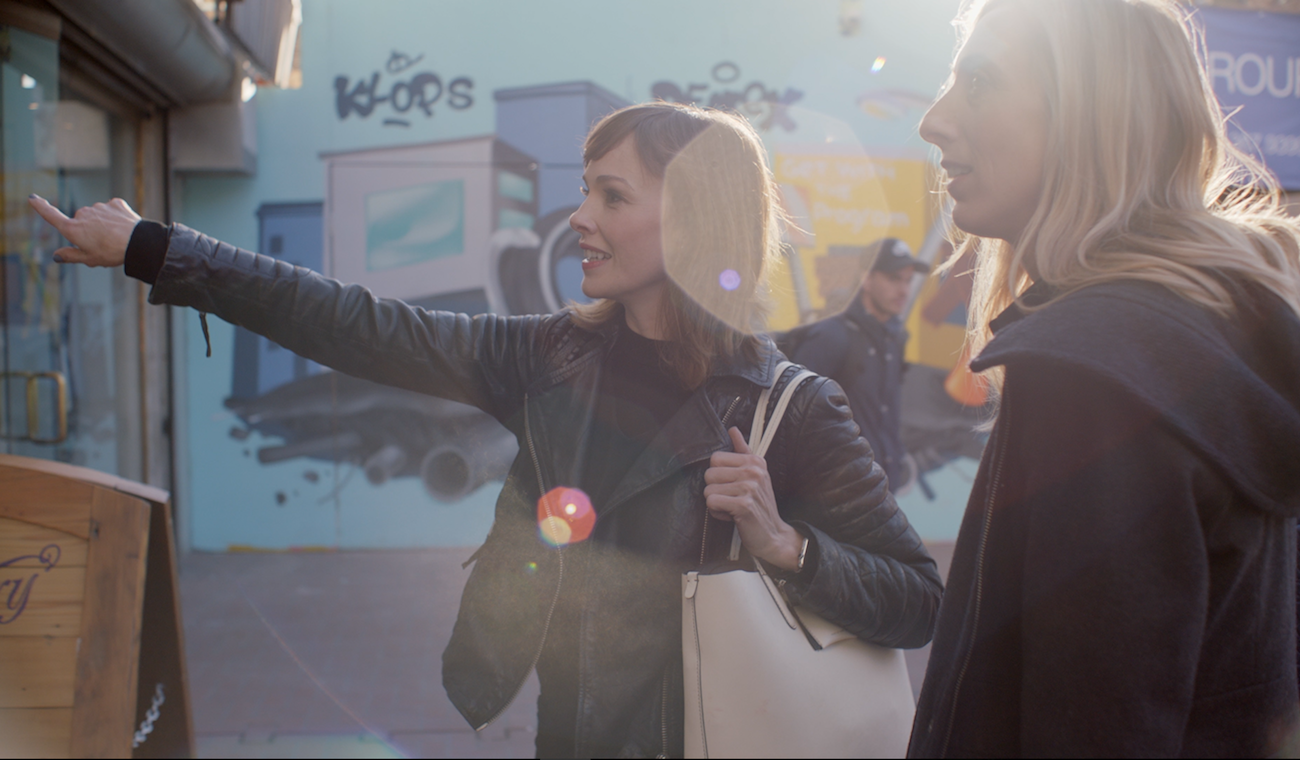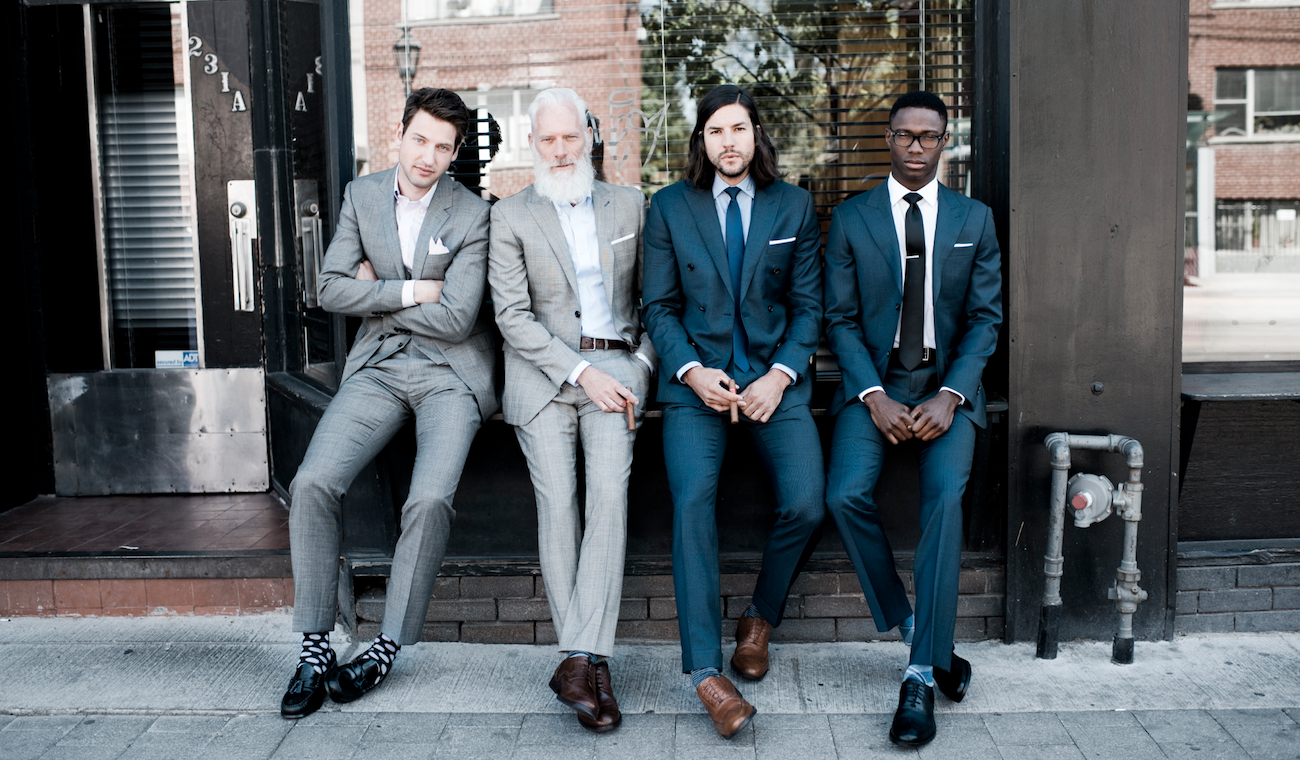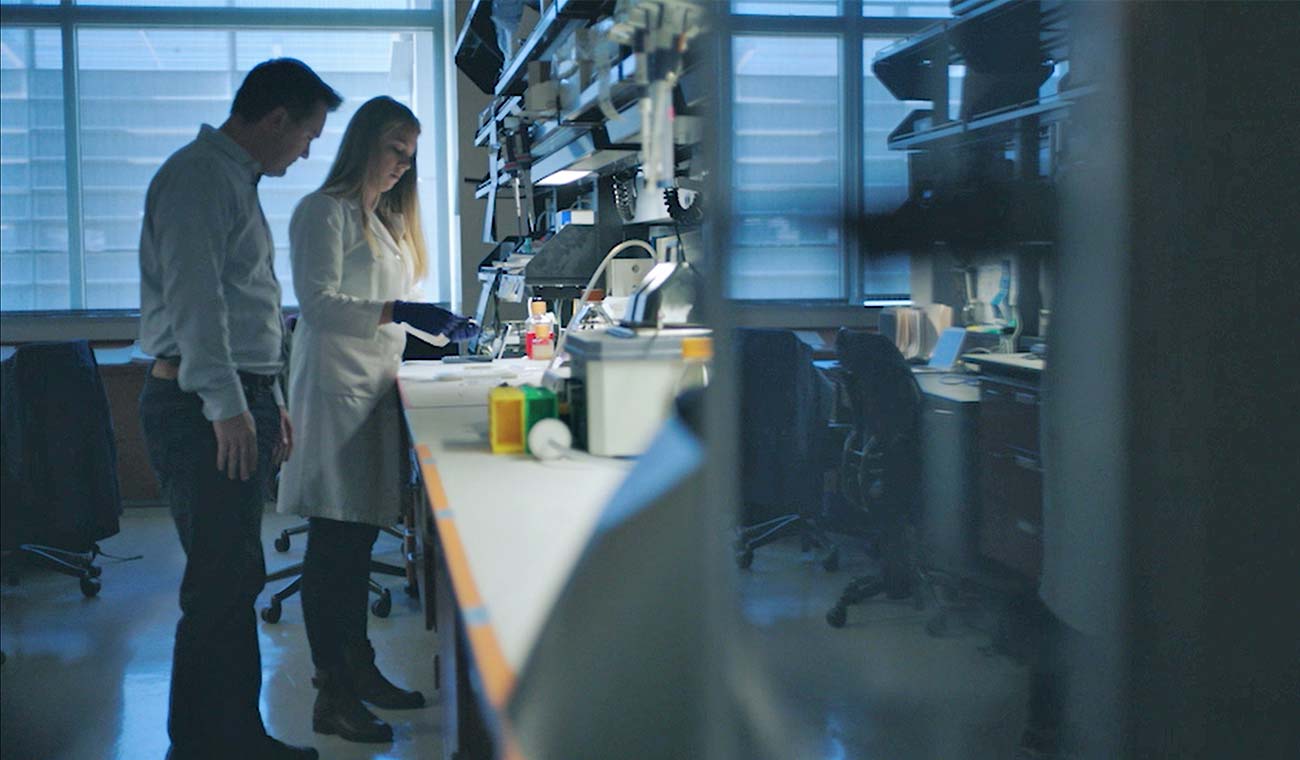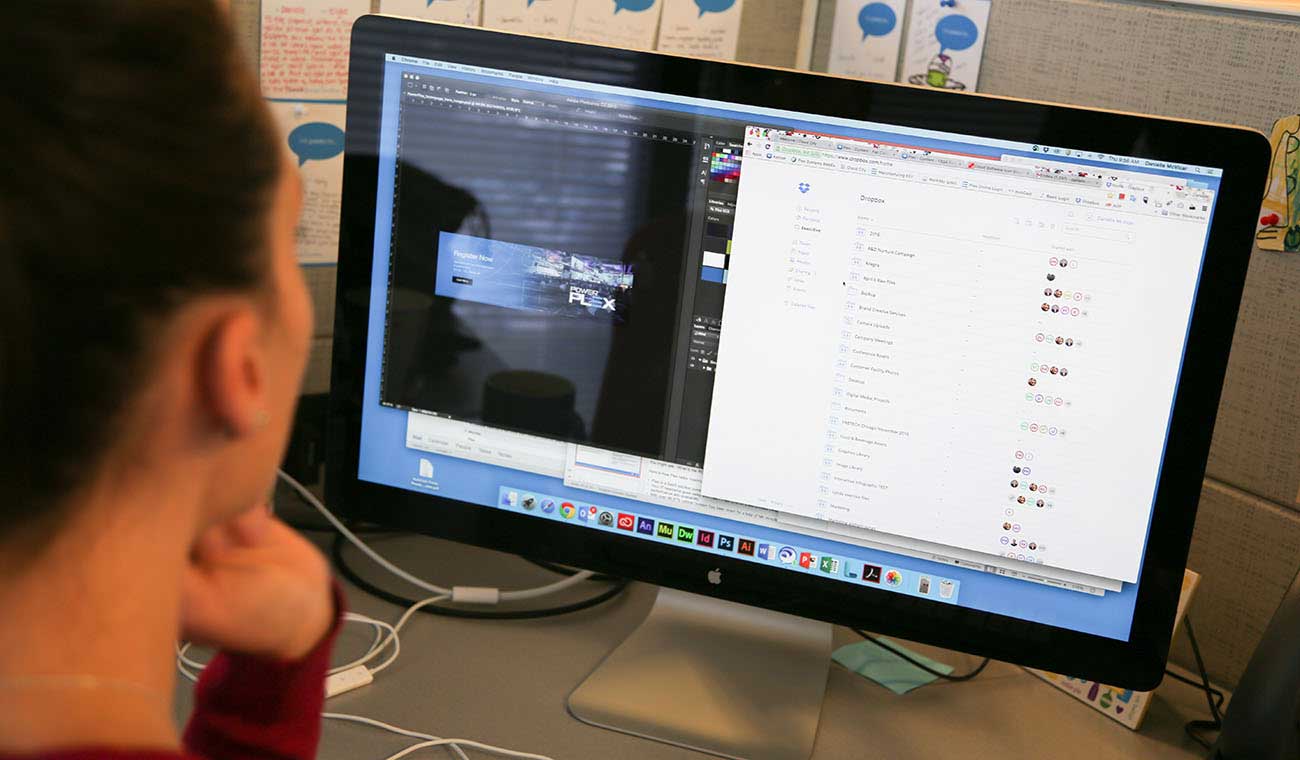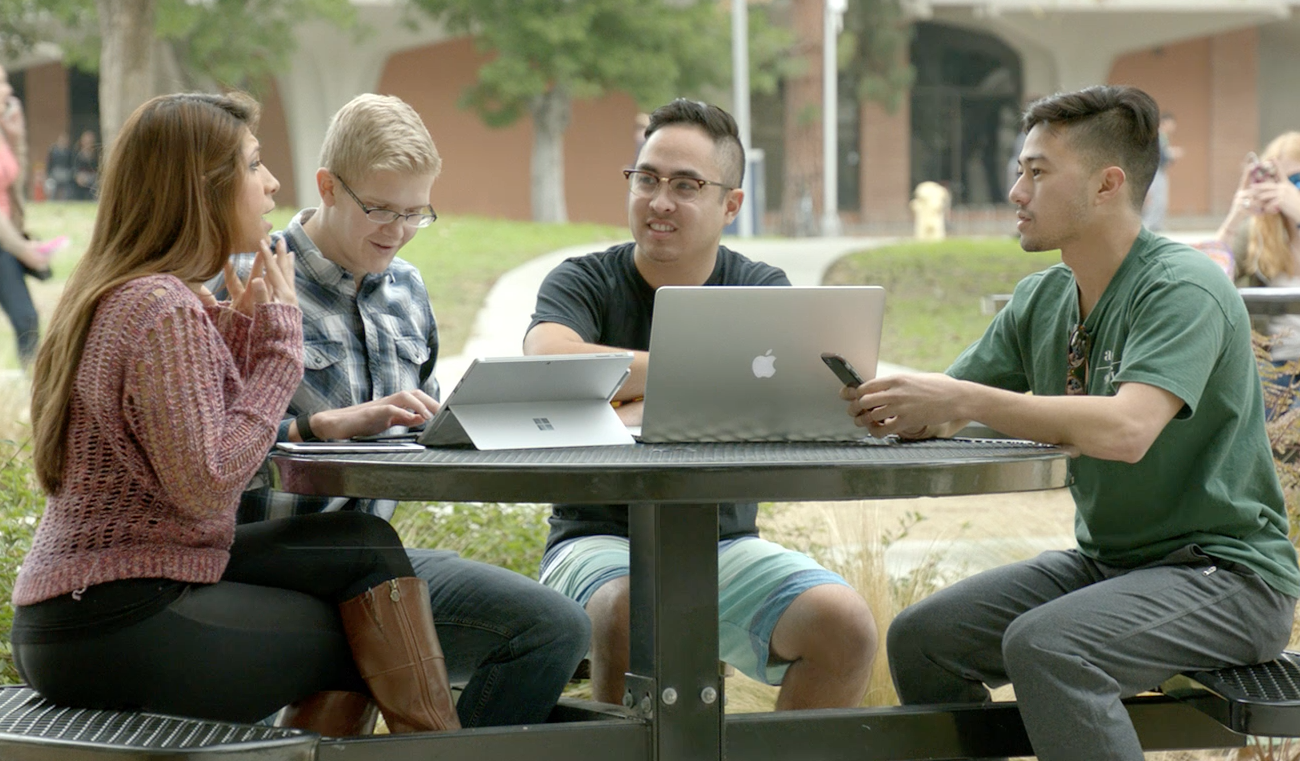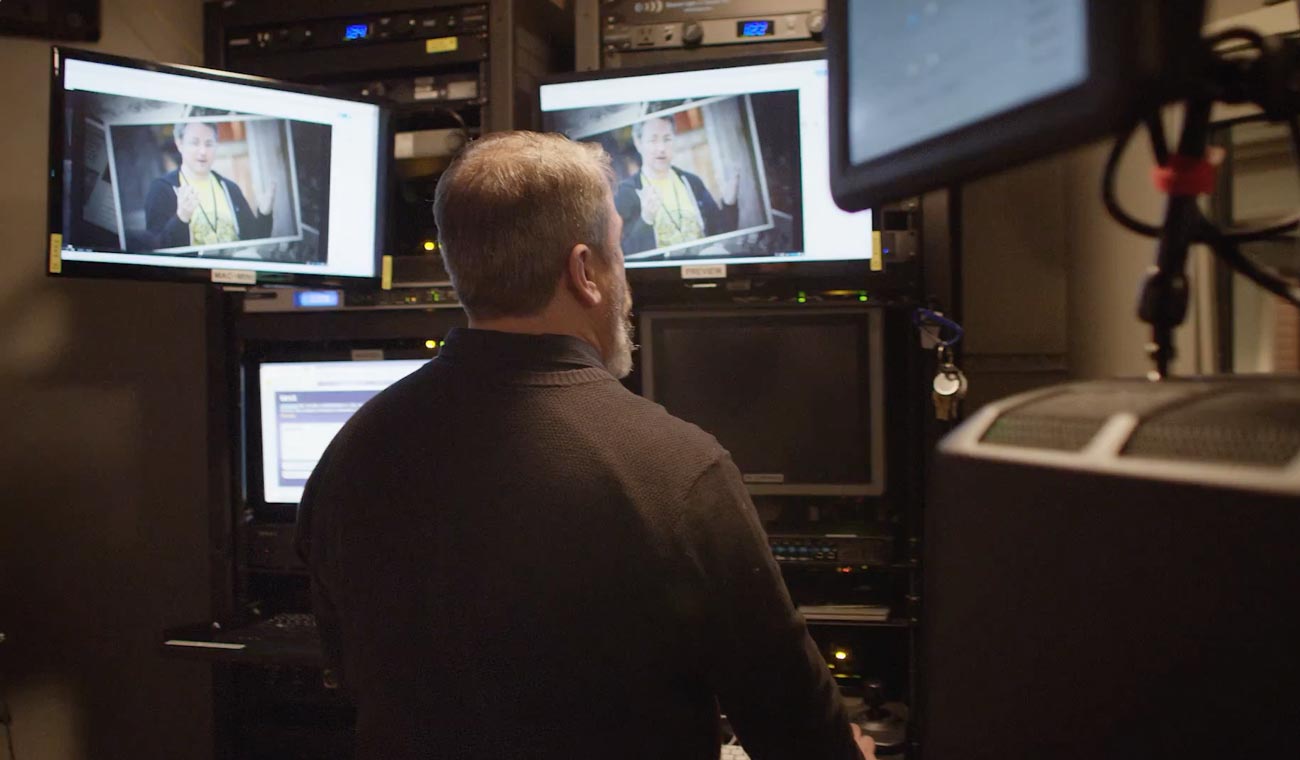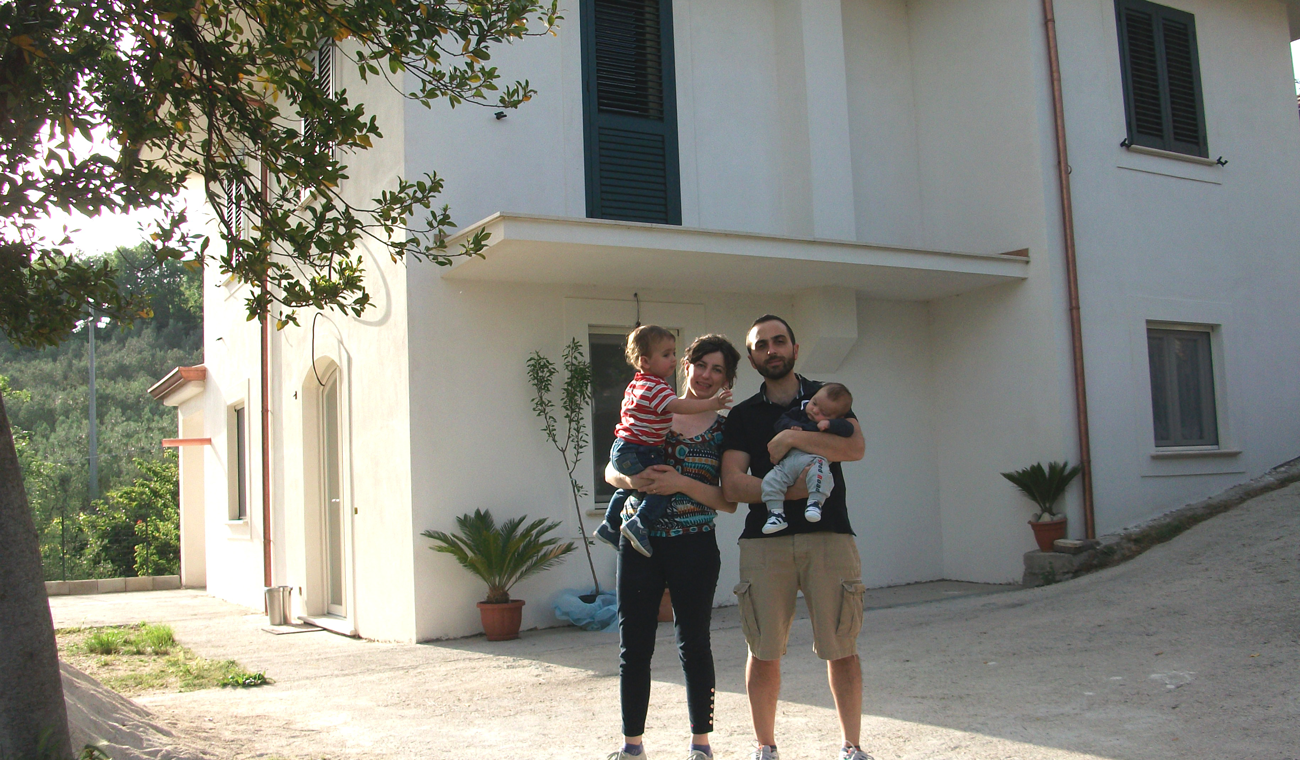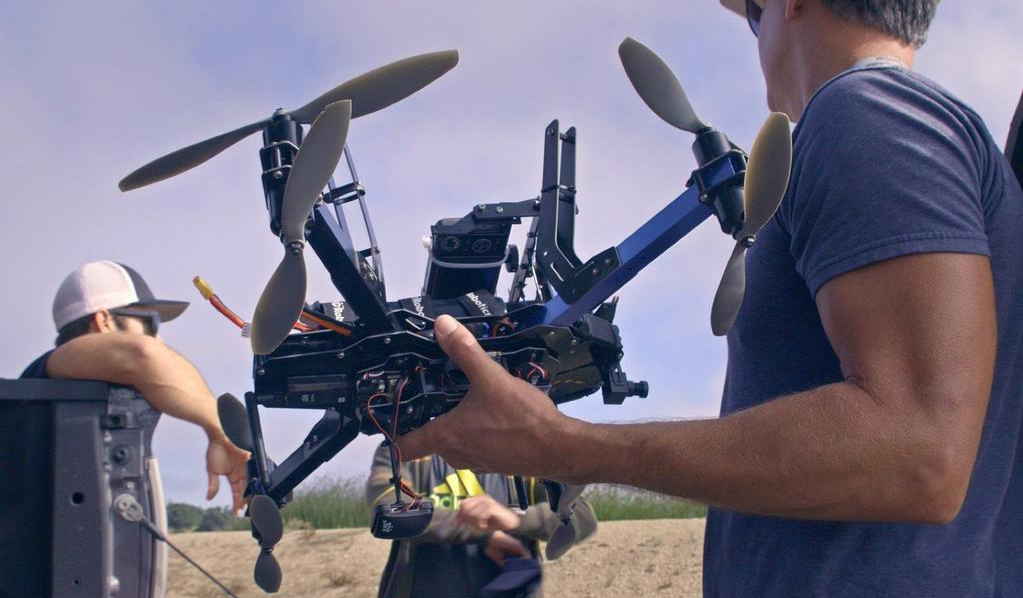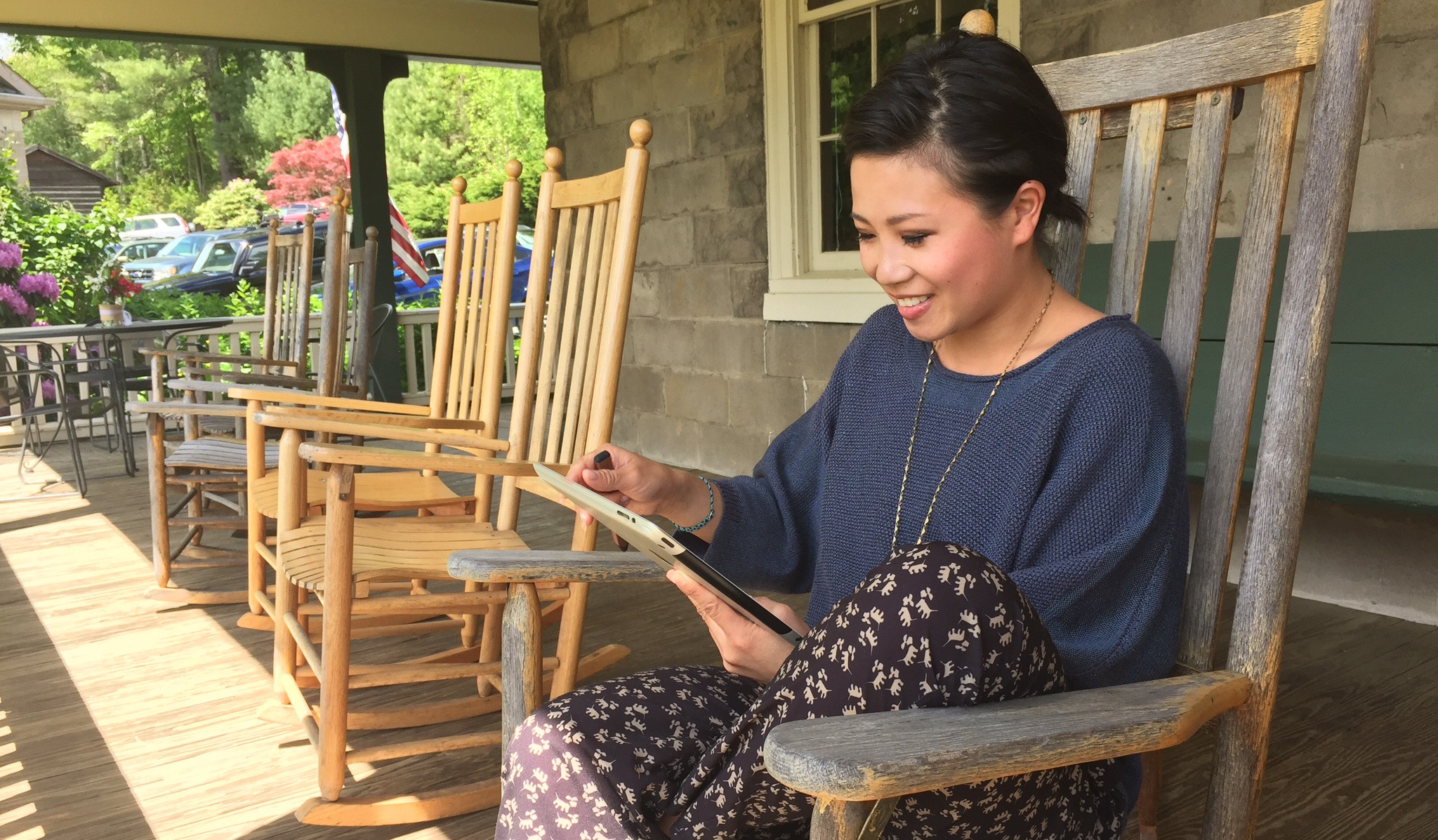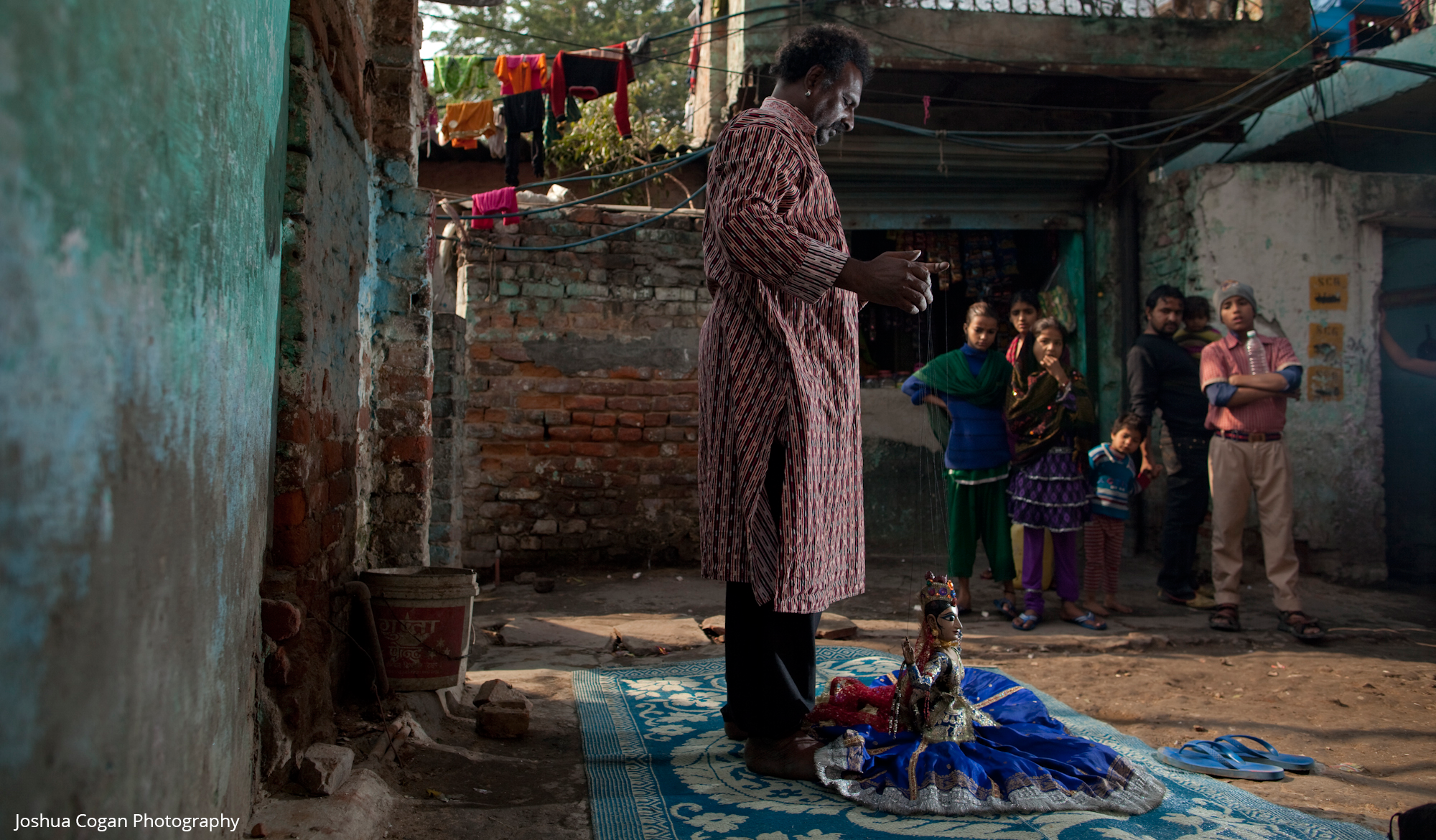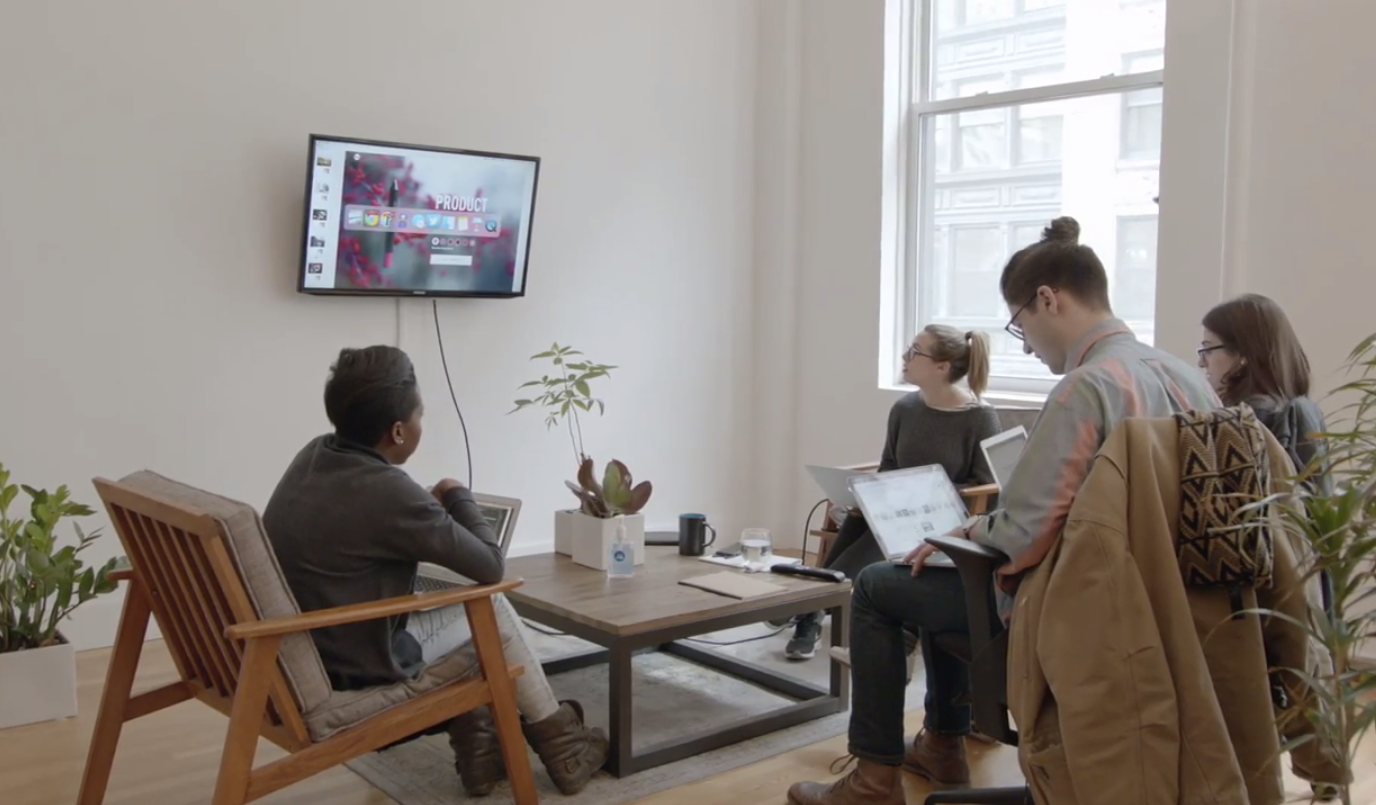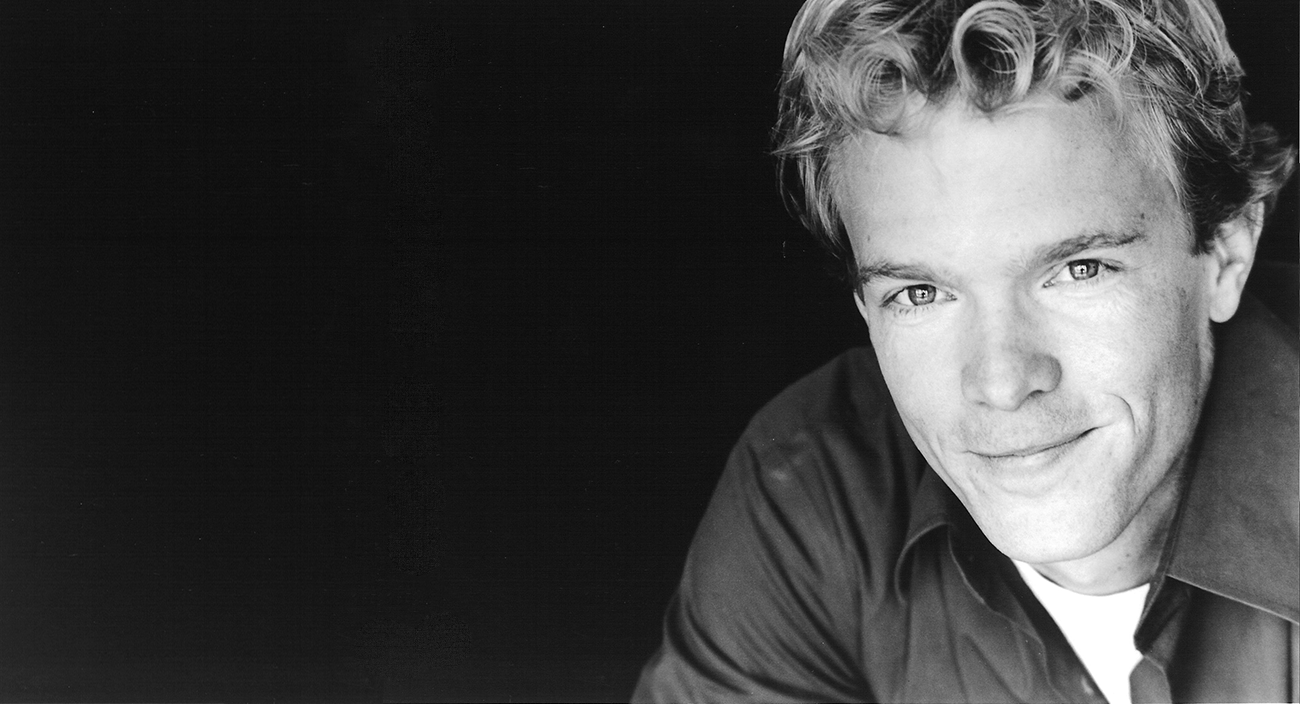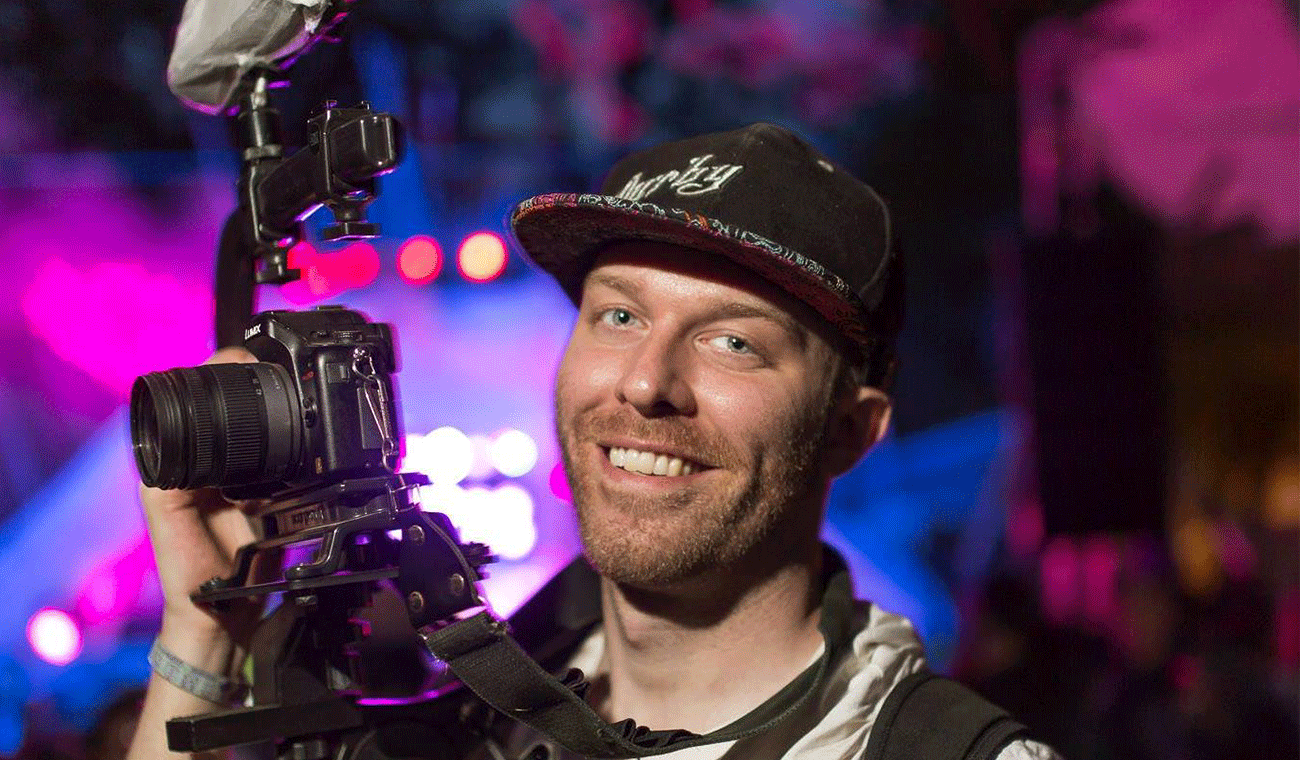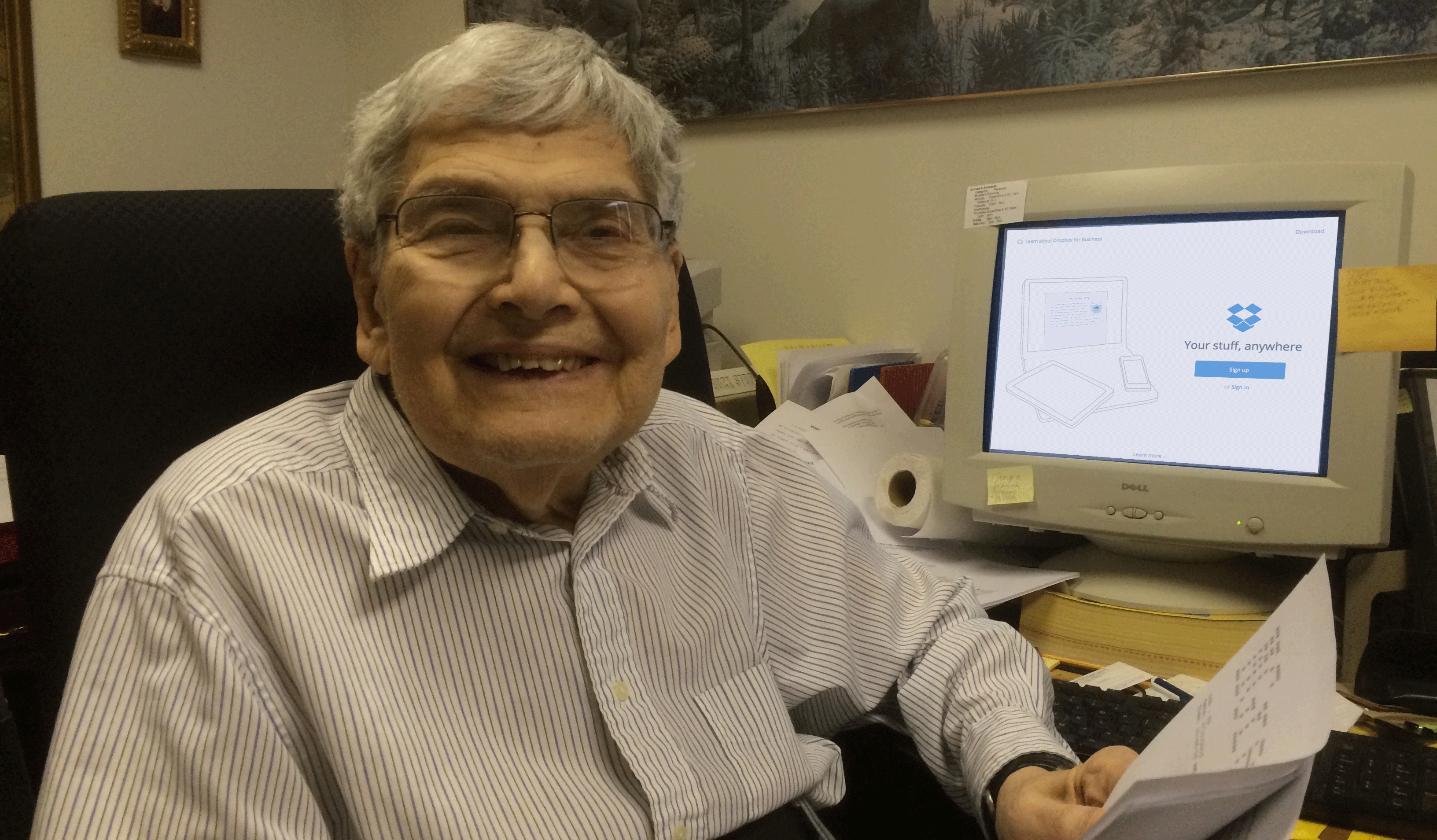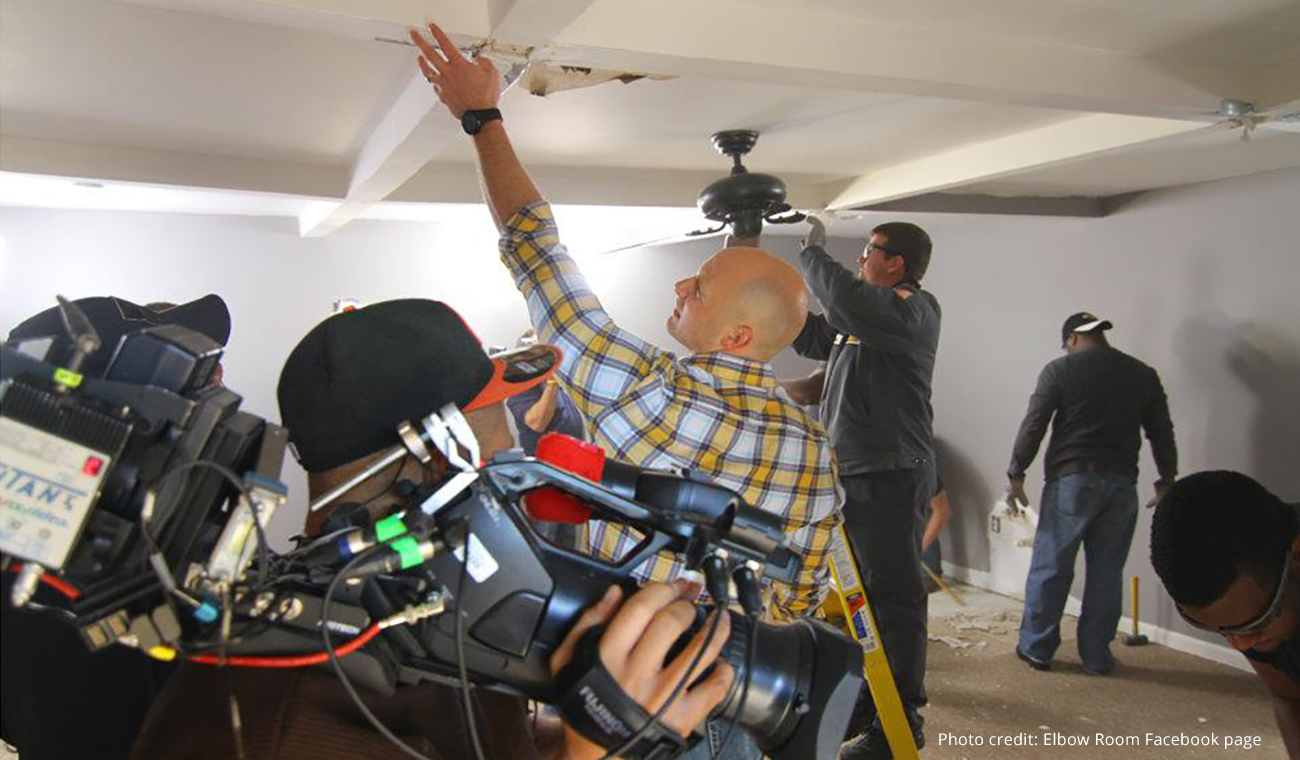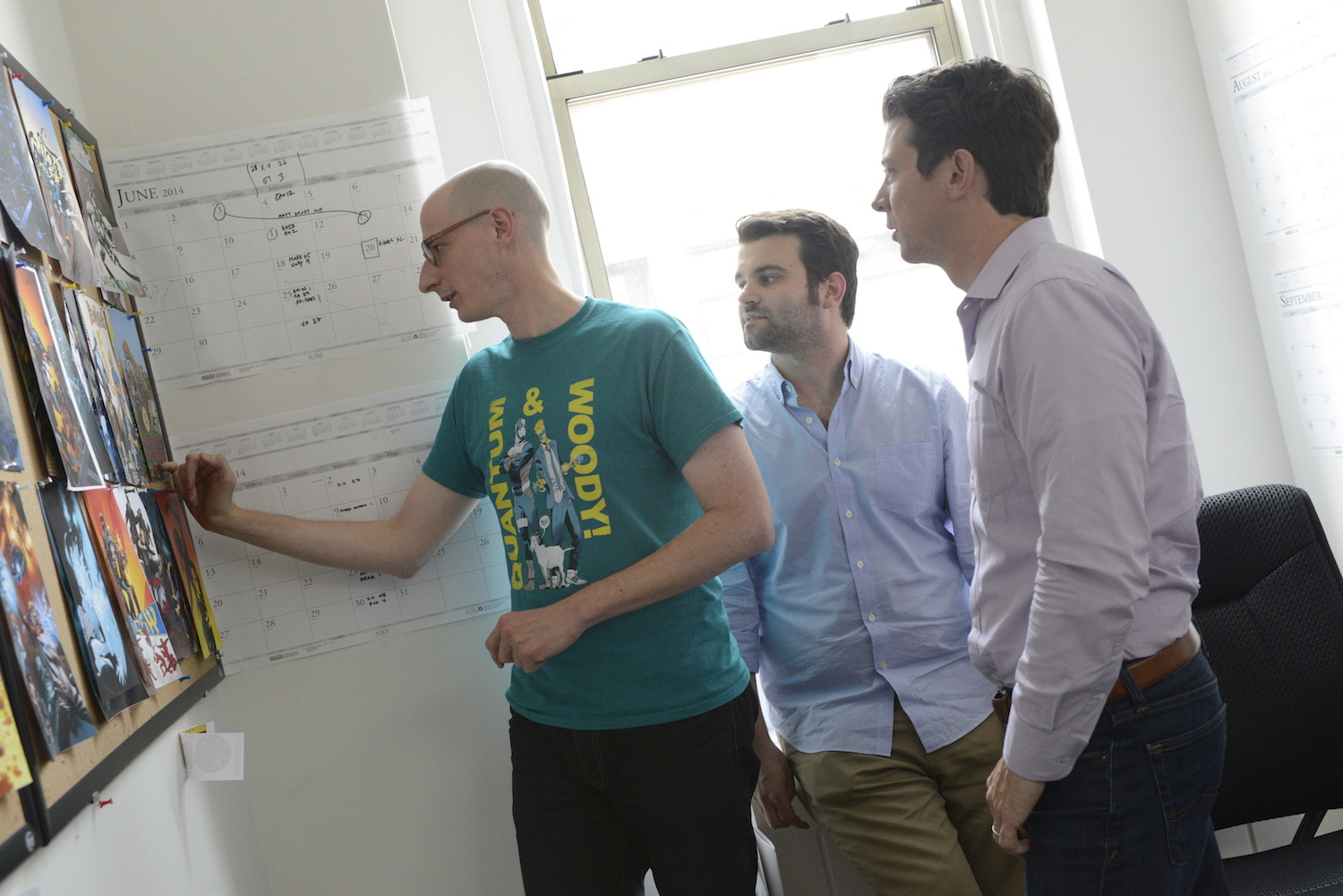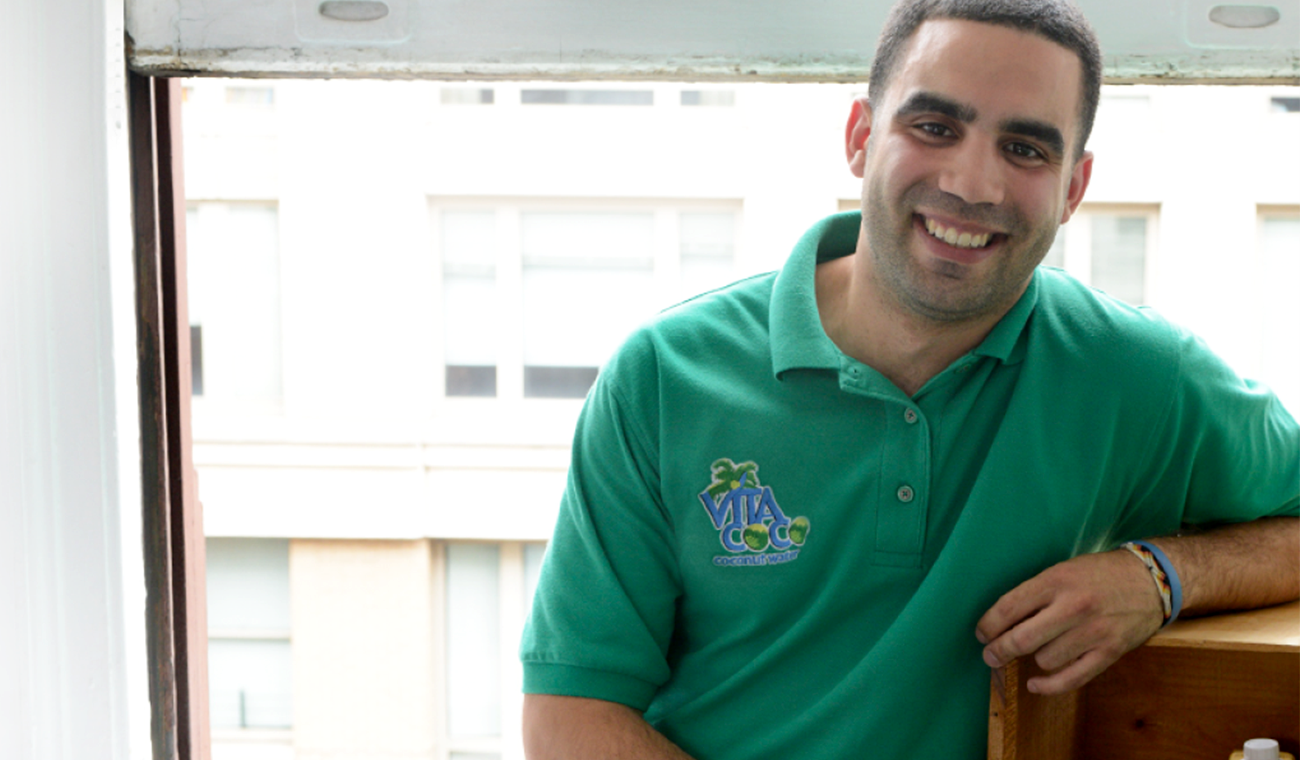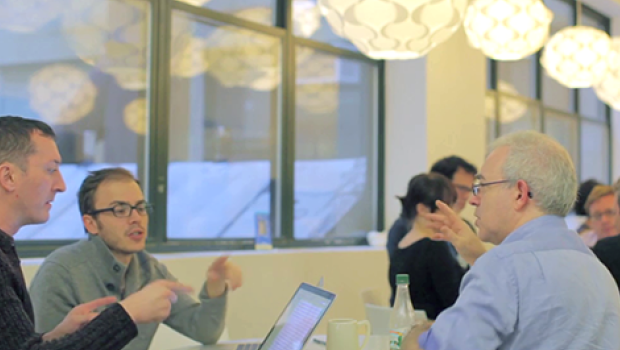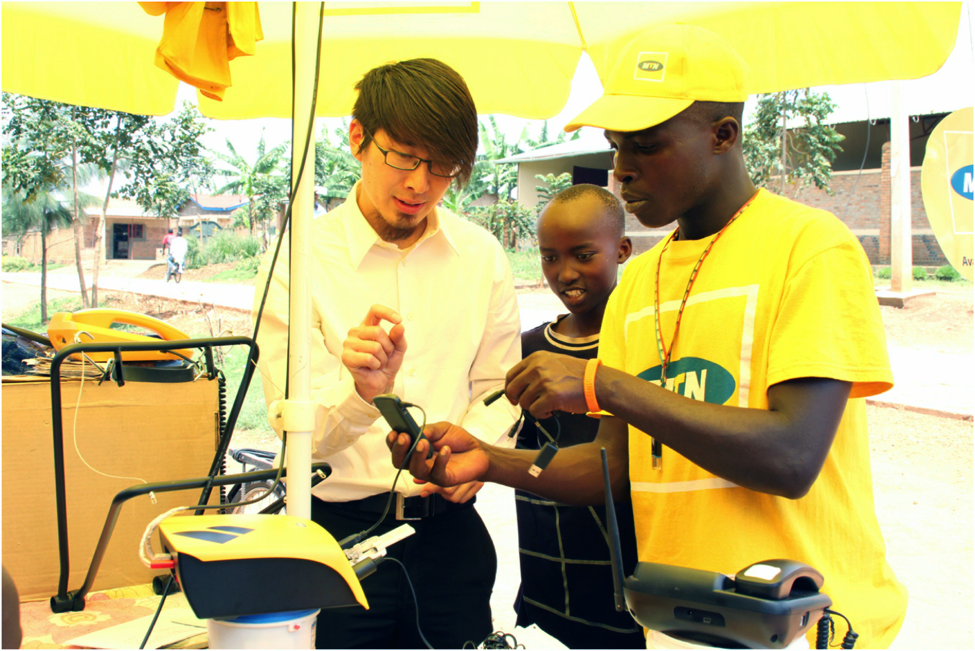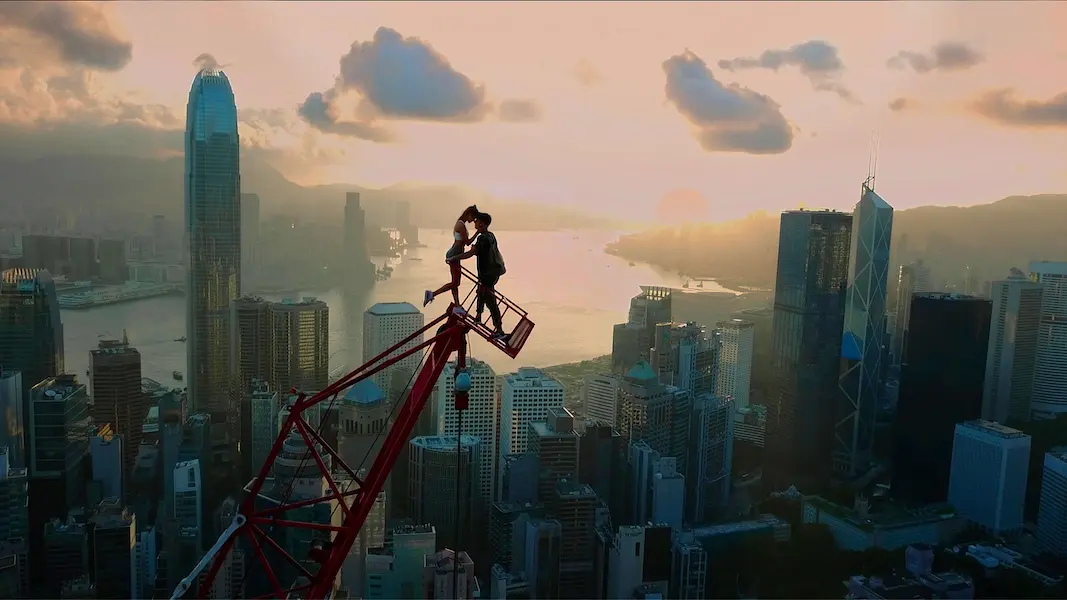
Overcoming the fear of falling in Skywalkers: A Love Story
Published on January 19, 2024
For Angela Nikolau and Ivan Beerkus, the couple featured in the new Sundance documentary, Skywalkers: A Love Story, the biggest risk of falling in love isn't just breaking your heart.
As daredevil rooftoppers—urban explorers who covertly climb the world’s tallest structures, creating breathtaking, death-defying imagery—they constantly put their lives in each other’s hands. Gravity isn’t their only adversary. Adding to the suspense, they also frequently evade security guards. First-person footage follows their heist as it happens, making it feel like you’re along for the ride.
We spoke with Emmy-winning filmmaker Jeff Zimbalist and co-director/producer Maria Bukhonina to learn how they navigated the obstacles involved in bringing this story to the screen—and how Dropbox helped keep their intercontinental collaborators on the same page throughout the production.
What made you decide this story was worth risking your life to capture?
Zimbalist: Every film is a risk of our life in one way or another, this one a little more perhaps more literal. I was an amateur rooftopper, an urban explorer from my teens through my 20s. When I learned there were others around the world trespassing onto the roofs of the highest buildings, doing stunts and photography, I started tracking the rise of this movement.
I was looking for a story I thought could support a feature length doc. I found Ivan and Angela and knew they were the story. The concept of using the life or death stakes of trusting someone else on a rooftop was an incredible metaphor for the trust we need to develop in romantic relationships.
“Using the life or death stakes of trusting someone on a rooftop was an incredible metaphor for the trust we need in romantic relationships.”—Jeff Zimbalist
We first filmed in 2017. Then Maria moved to Russia and ultimately to Asia to live with the Skywalkers. Six years later, here we are, with a story that took twists and turns I don't think any of us saw coming, climaxing in a real-life heist, a ninja mission with incredibly high stakes during the World Cup final last year. We do embrace the heist genre, but our North Star throughout the process was that this is a love story. We want to reach an audience outside of extreme sports and urban landscape fanatics and really touch on something universal.
How did you first hear about Angela and Ivan?
Zimbalist: I started following rooftoppers on social media, even before Instagram. Angela really exploded after she did her first China trip with Ivan in 2017. She got hundreds of thousands of followers on Instagram in one day. That was where I started to be curious about their story. There have been glimpses of other females doing this activity, but Angela really has become the first female of rooftopping. I had worked with Maria on a Netflix series called Heist. Maria grew up in Russia, so I thought she'd be a perfect partner on this. We started collaborating right before we got the financing for the project. And Maria dove in headfirst. For years, she lived and breathed this story.
Maria, had you been interested in rooftopping before this?
Bukhonina: Rooftopping was never my specific interest, but I think what's interesting is that they’re a couple in this sport. Our female character is a strong lead and the main protagonist, which you don't really see a lot in high-risk activities. The fact that they happen to be Russian and this a big international production for an American audience was interesting. I've done a lot of films with American characters for American audiences, but I haven't seen a lot of films here that are not political, but about somebody who happens to be Russian.
“We do embrace the heist genre, but our North Star throughout the process was that this is a love story.”
Compared to your previous docs like Momentum Generation, how much of your time was spent observing and researching versus interviewing?
Zimbalist: I would say this is a cinéma vérité film, first and foremost. Maria, how many hours of original footage did we shoot?
Bukhonina: I think roughly 200 hours of original footage.
Zimbalist: We did something like 80 days of production shoots. For the majority of the screen time, our cameras embedded with our characters, trying to bring the audience into that immersive experience. The first 25 minutes does lean a lot on archival. It tracks the rise of the phenomena and shows some of the other famous and daring rooftoppers. Then we fill in the gaps of our arc where our cameras weren't with footage that Ivan and Angela shot over the beginning years of their relationship.
As you were capturing the story, were there any unexpected twists that shifted your direction?
Zimbalist: Yeah, many. Certain things happened along the way that we were sure were going to be a part of the film, but because so much happened, they didn't even end up in the film. So that's sort of a vérité filmmakers dream, that the story advances before your eyes and you have a lot to work with on the plot side.
We really wanted this to reach a wide audience, as did the two lead characters, Ivan and Angela. So the more activity during the time we were filming, the better. We were all on the same page. They're very active anyway—traveling the world, taking on enormous risks, and facing their fears. So we were pretty confident this would develop fast.
We were embedded with them pretty much full time. Their relationship took every twist and turn you can imagine—doubting each other, not wanting to continue with the mission, one of them taking lead and being the encourager and the cheerleader, while the other one’s bailing, then flipping that and vice versa. And they were financially strapped during that time because their social media had been blocked. They lost their sponsors and some followers when the war broke out.
So the stakes were really high. And it was the craziest climb they've ever done. So we were lucky to have a lot of material to work with. And even luckier that they made it out, that they're okay and weren't arrested.
“We were lucky to have a lot of material to work with. And even luckier that they made it out.”
How did you use Dropbox in the making of the film?
Zimbalist: We've always used Dropbox on archival and all our projects, really. It’s primarily helpful in the remote workflow for post. Being able to have our archival producer go get full-res from a variety of vendors, have it organized, and available for quick upload and download—to anybody who's working on the project from story producers, to editors, producers and myself—has always been a primary part of the process. The ability to share with that kind of speed is really helpful.
What would you like the audience to feel after seeing Skywalkers?
Zimbalist: I mean, I'm gonna wax poetic on this one. For many years now, I’ve made a lot of antihero projects, series and docs, where the messages of the story are often to be cautious around other humans, that we live in trying times full of deceit and betrayal and abandonment. And while I'm really proud of the complexity that those stories exist in, the more narratives the world hears reinforcing those fears, the less we're likely to lean into and open up to others.
I think what the world needs more than anything are these leaps of faith where we unite across our differences and come together with our cultural and class counterparts. So I hope Skywalkers encourages us to trust others again, and especially when it feels like the riskiest thing to do. What we need most is to come together. I think ultimately, overcoming the fear of trusting others is at the heart of this movie.
Bukhonina: I think awe is a good word. I’d like people to walk away with inspiration to follow their dreams and be ambitious. Because they’re nothing if not super ambitious about their artistic vision and what they want to achieve. I think that's inspirational for all of us.
Skywalkers: A Love Story premieres at the 2024 Sundance Film Festival January 18 in-person and January 25 online. For details, visit festival.sundance.org
This interview has been edited and condensed for clarity.
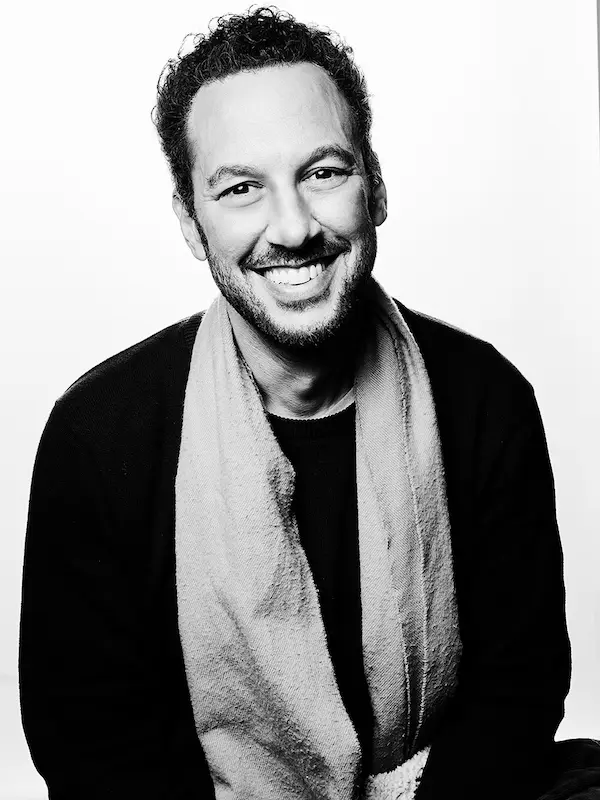

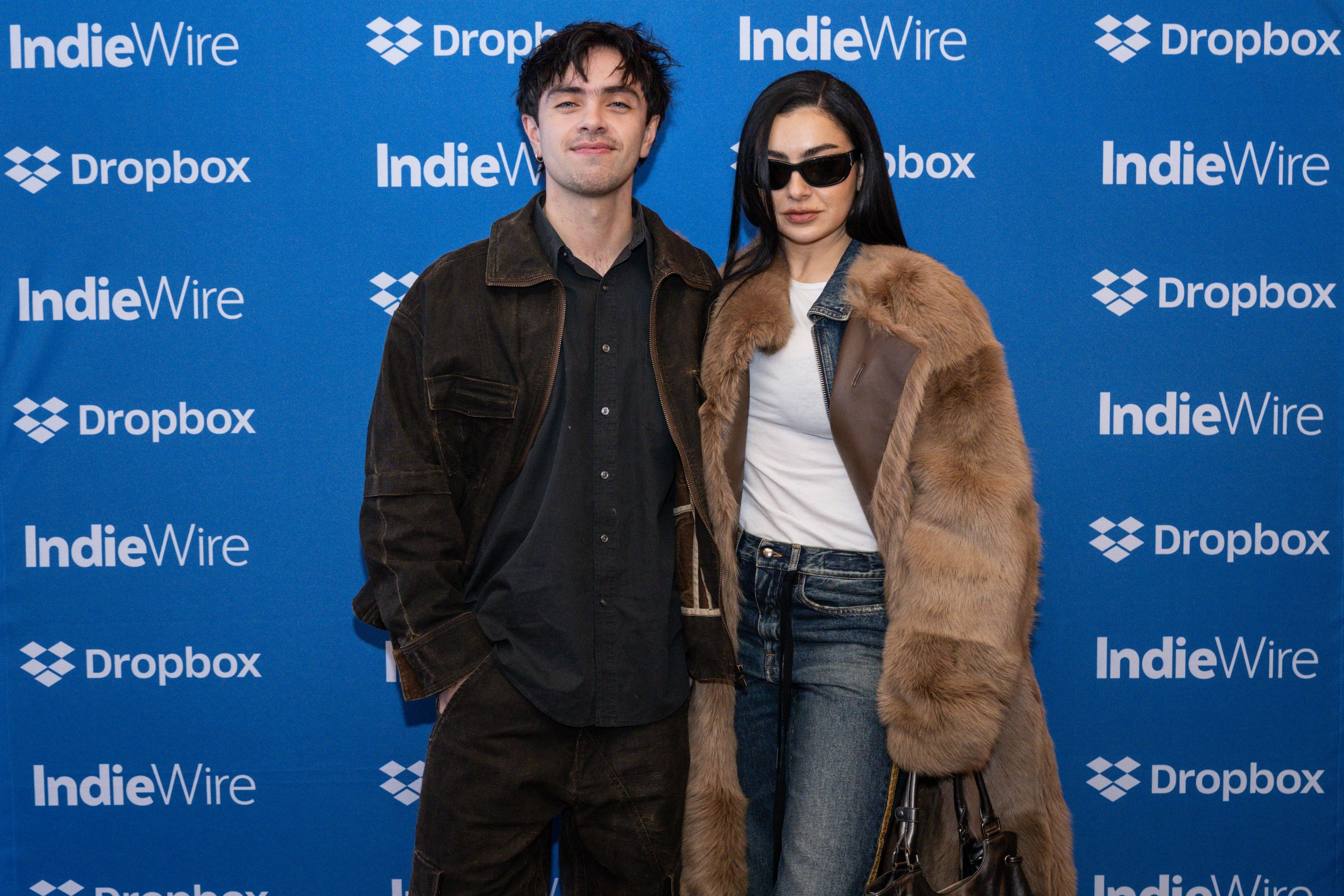
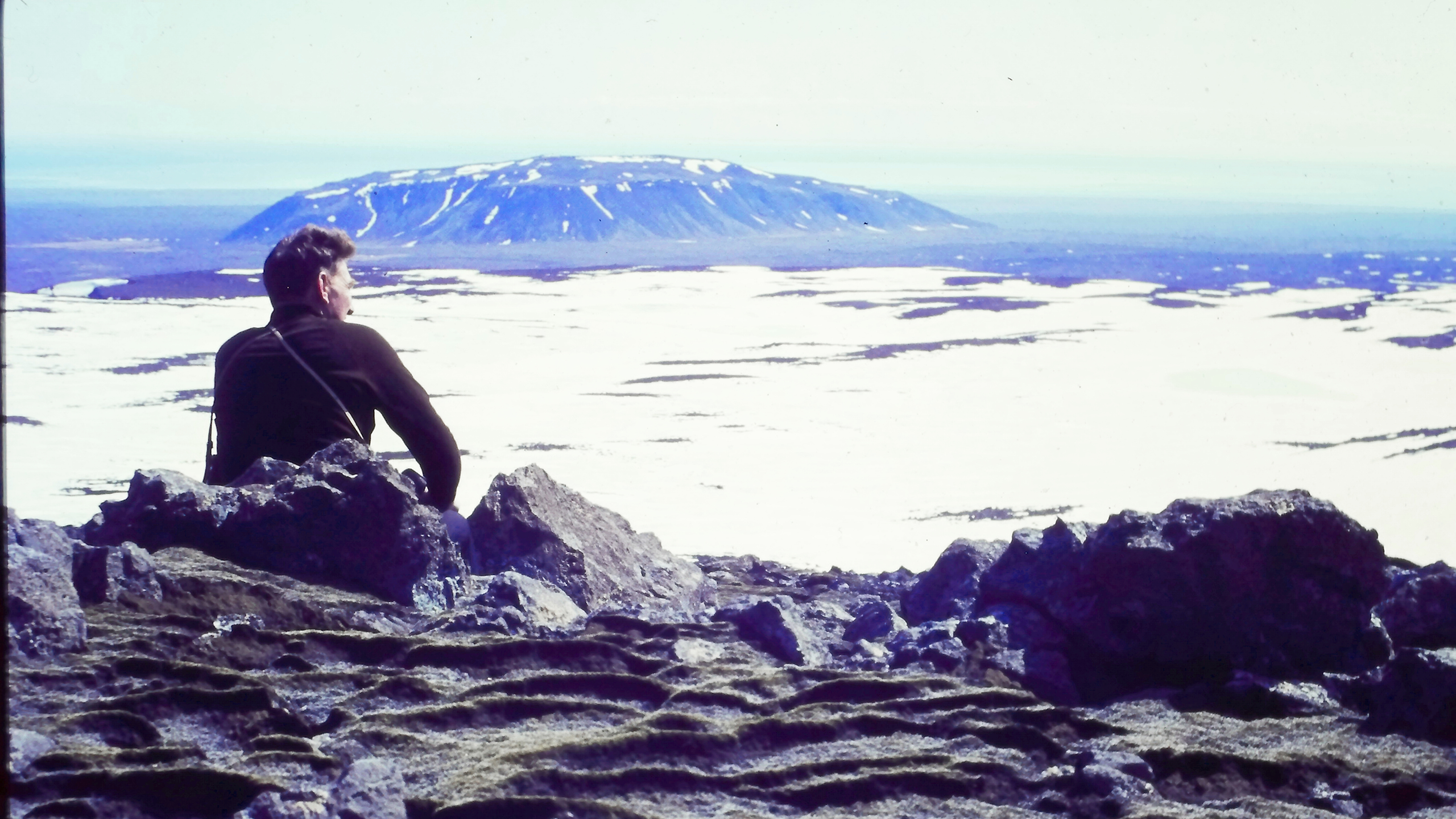
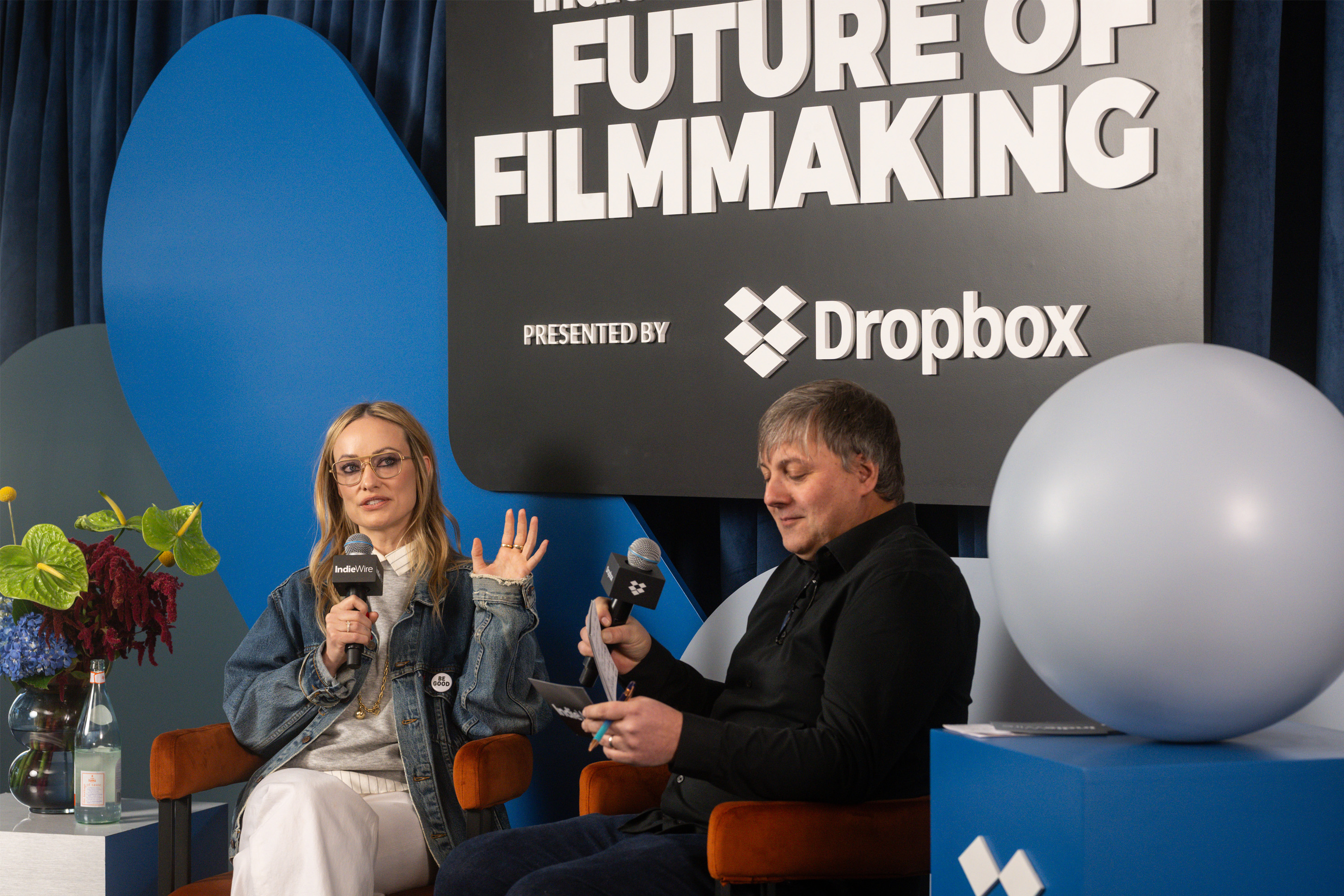
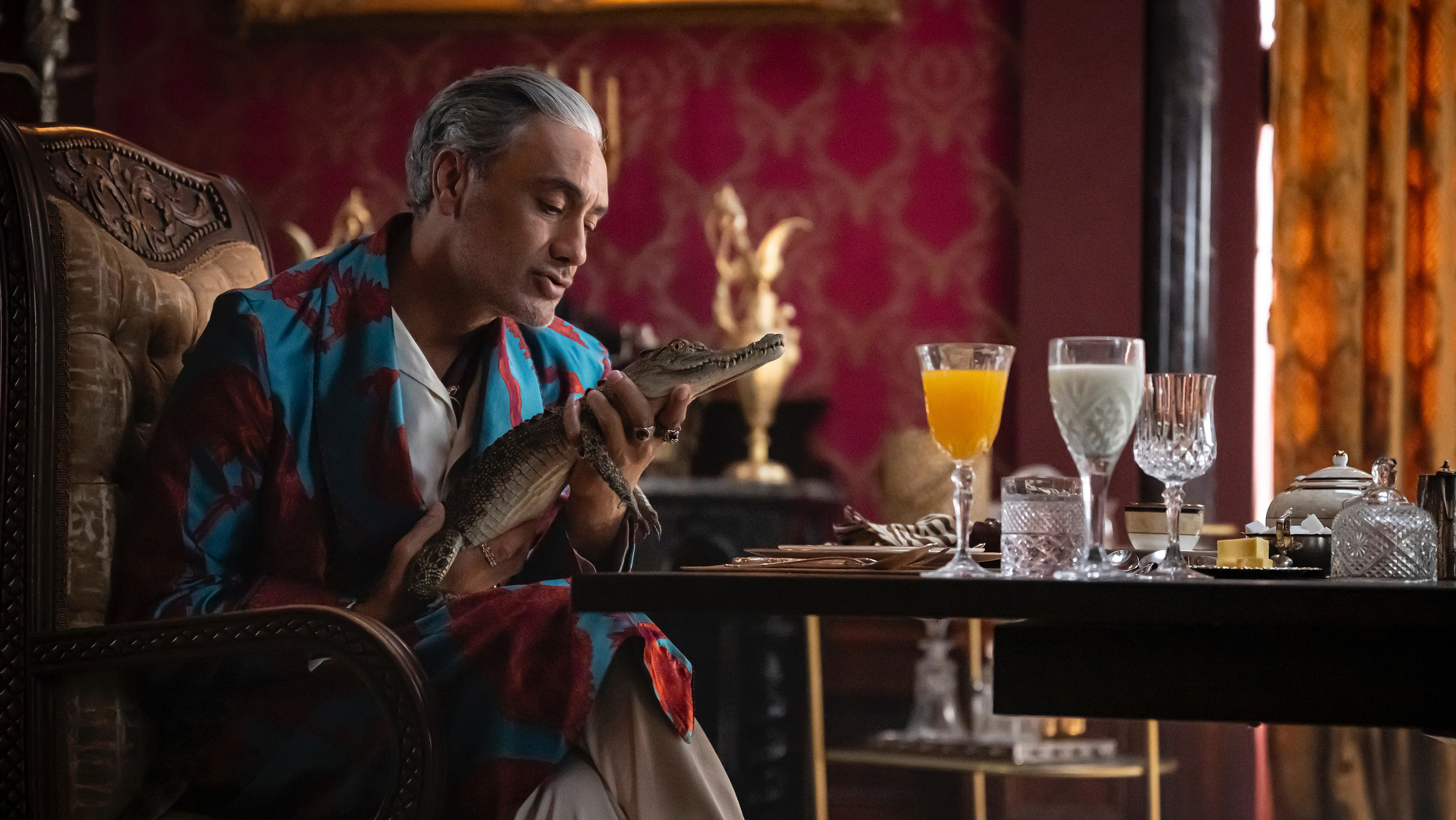

.png/_jcr_content/renditions/hero_square%20(2).webp)







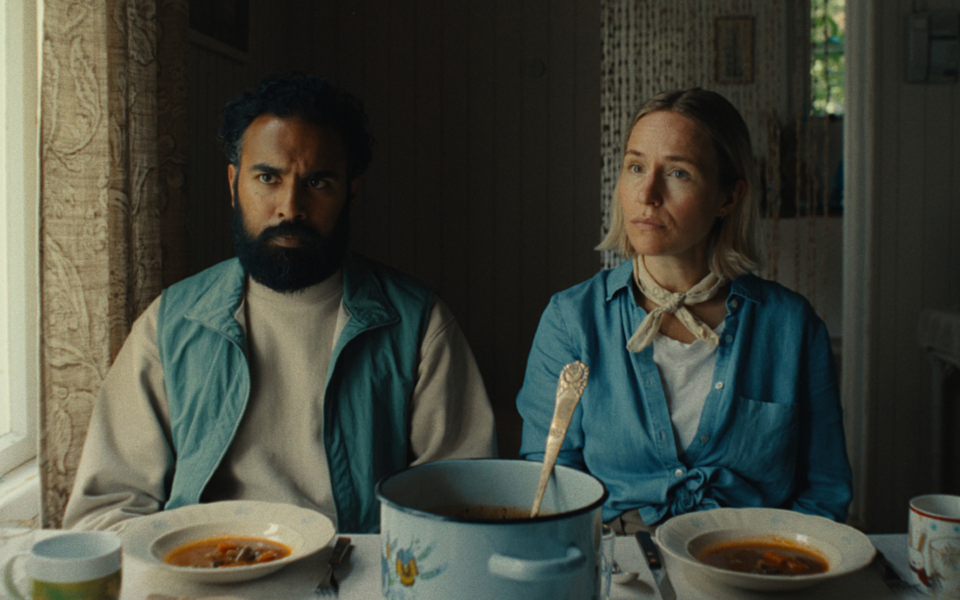
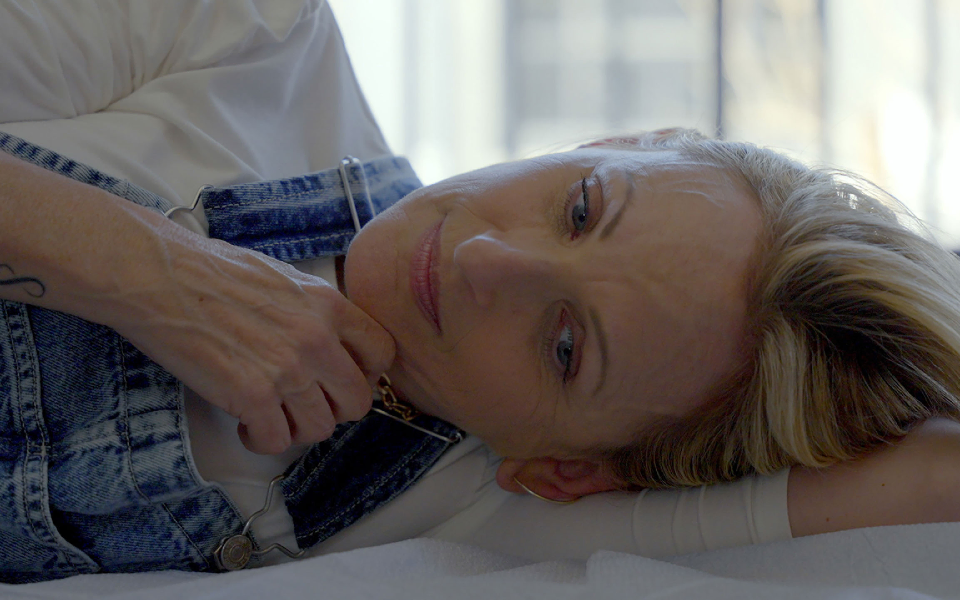





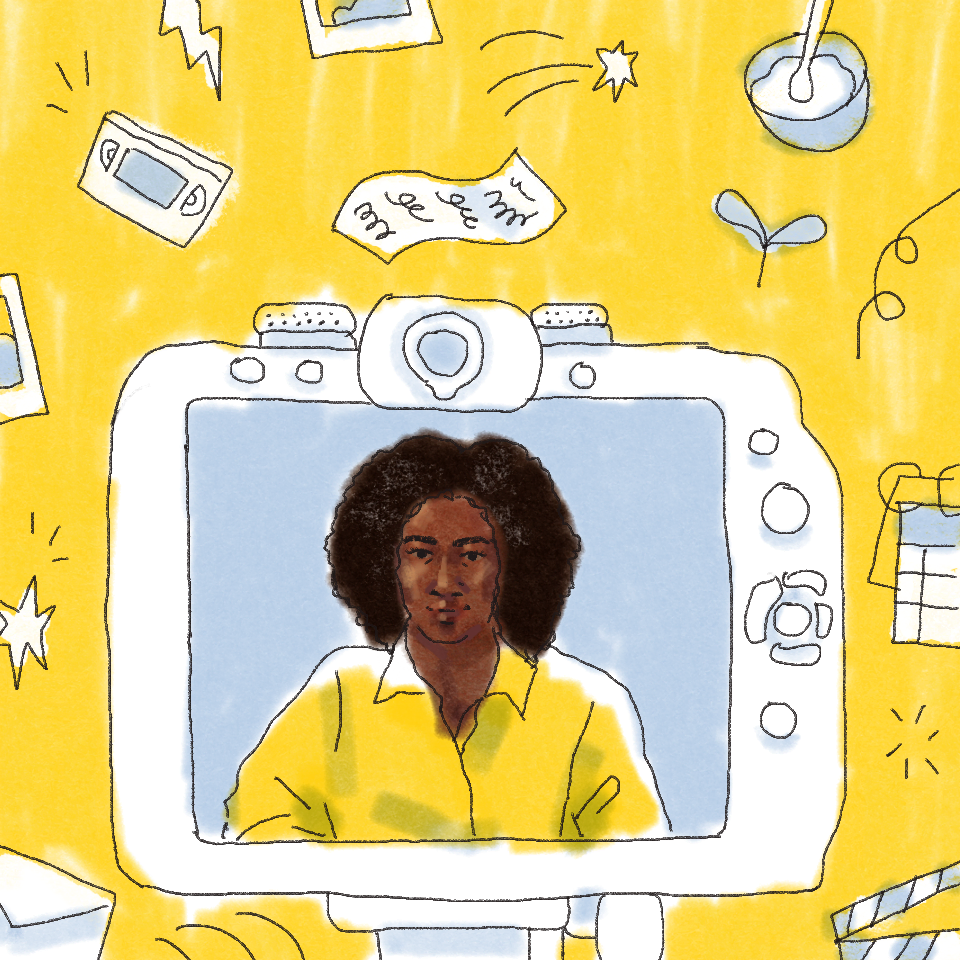
.jpg/_jcr_content/renditions/1200x628%20(5).webp)


